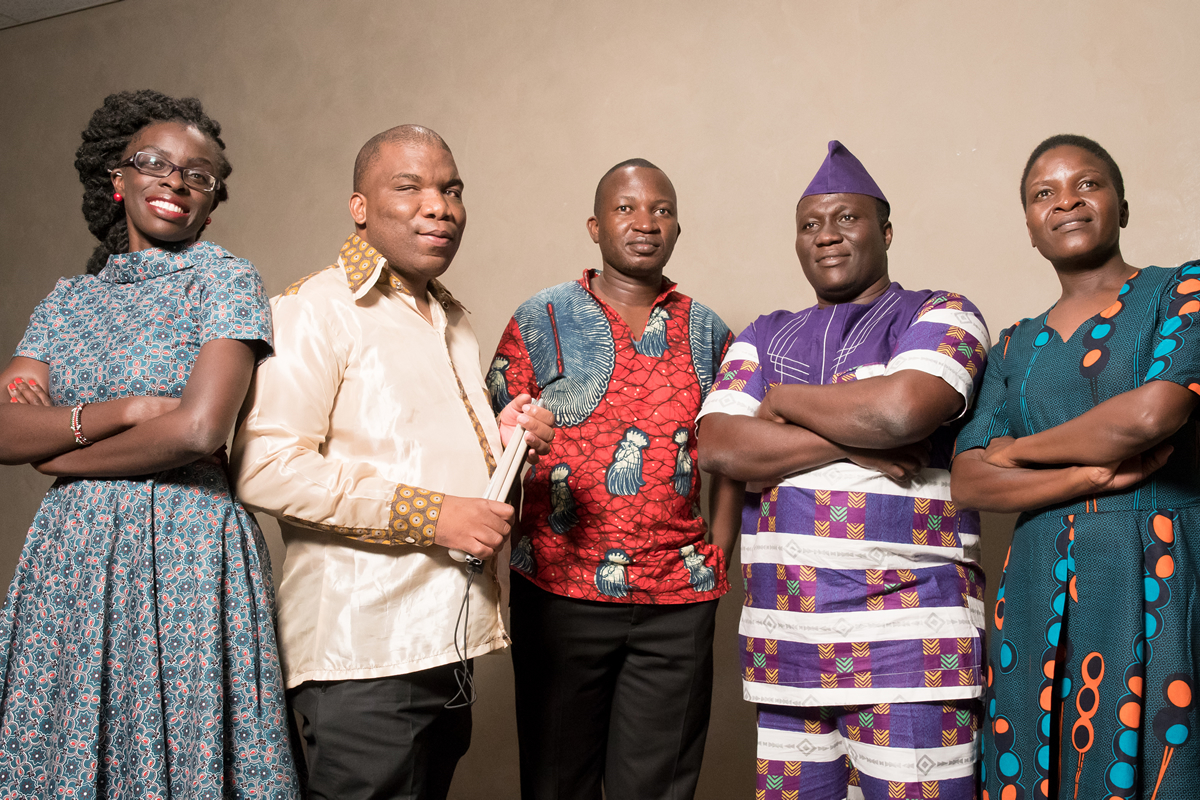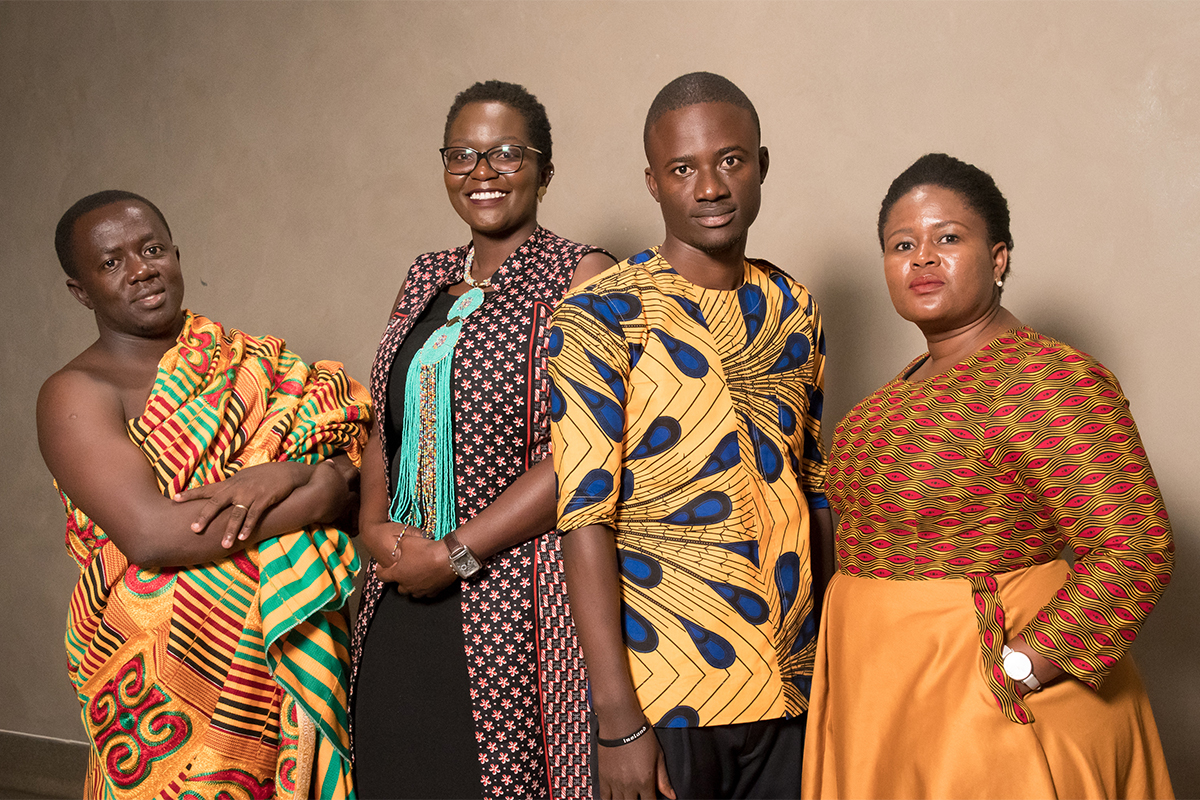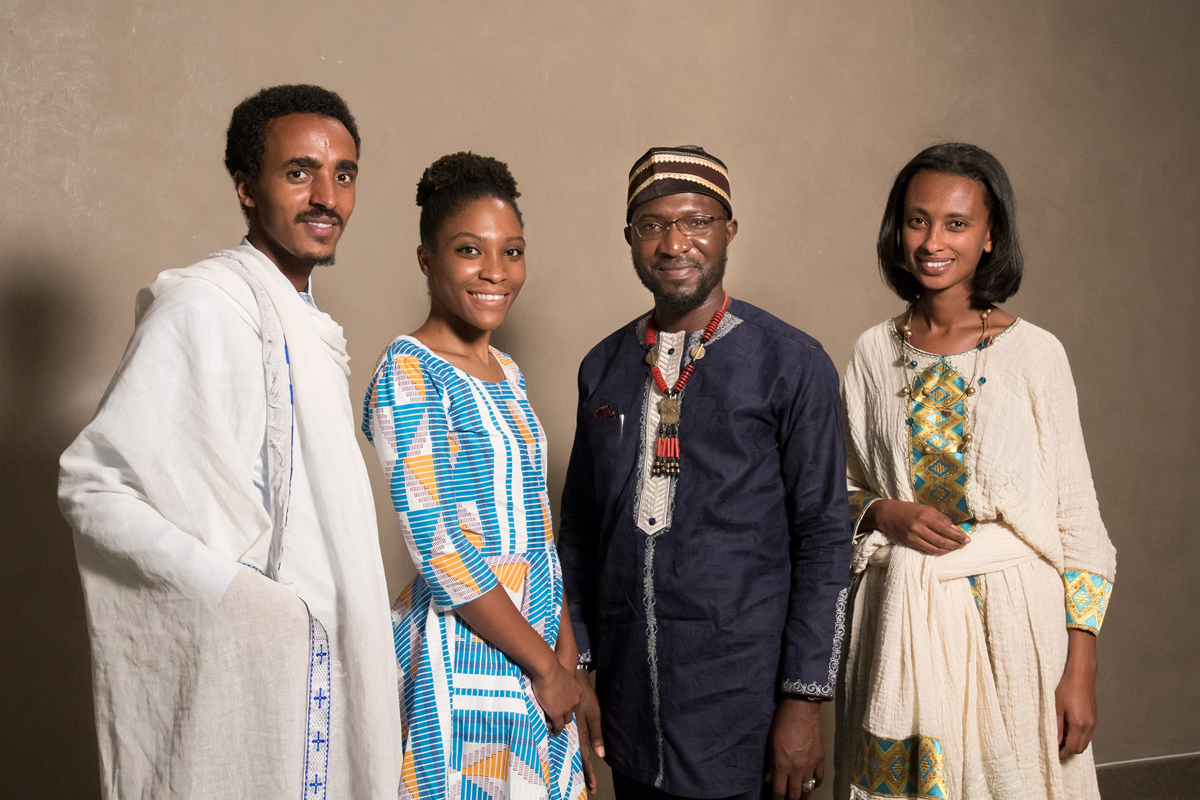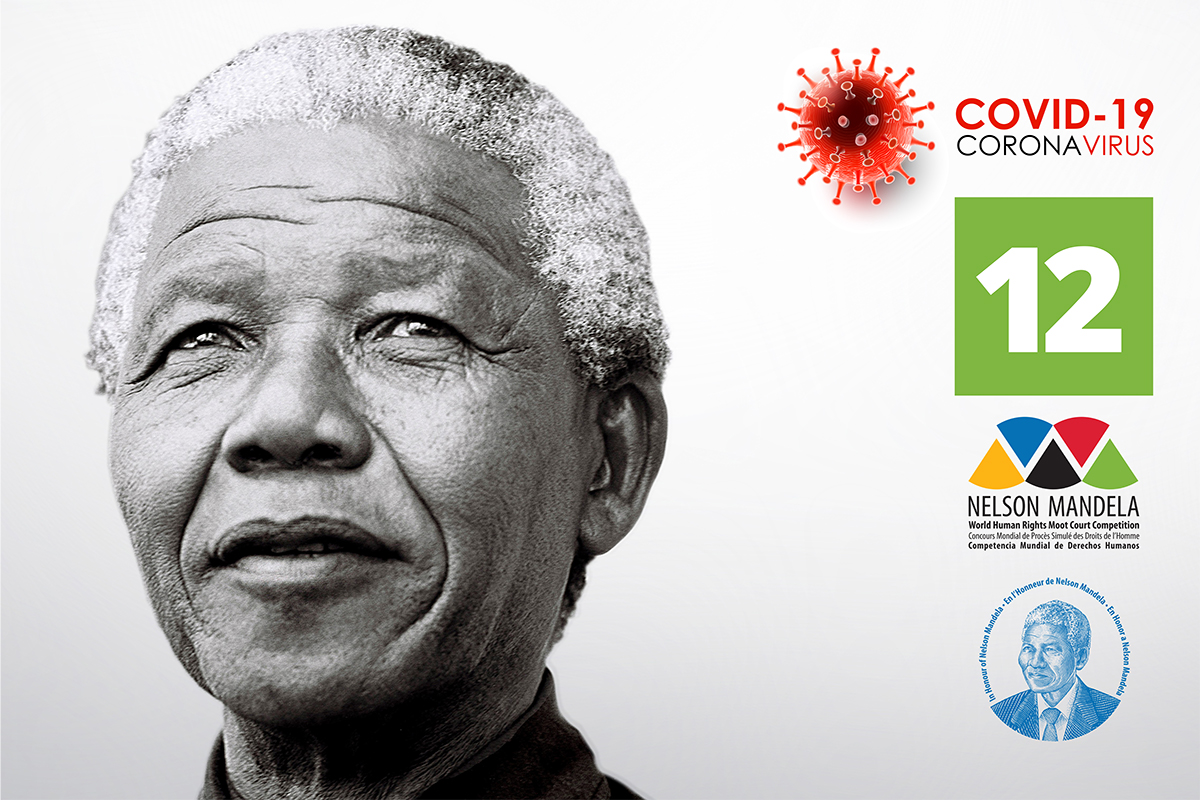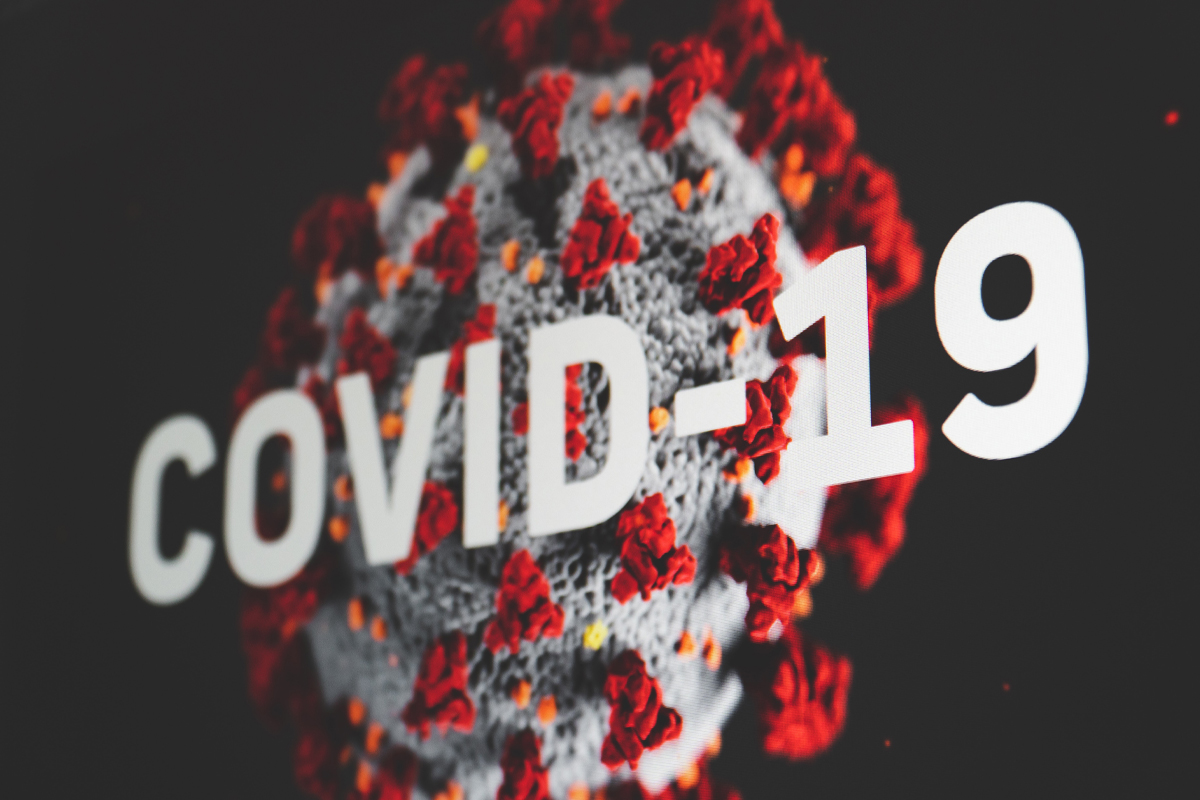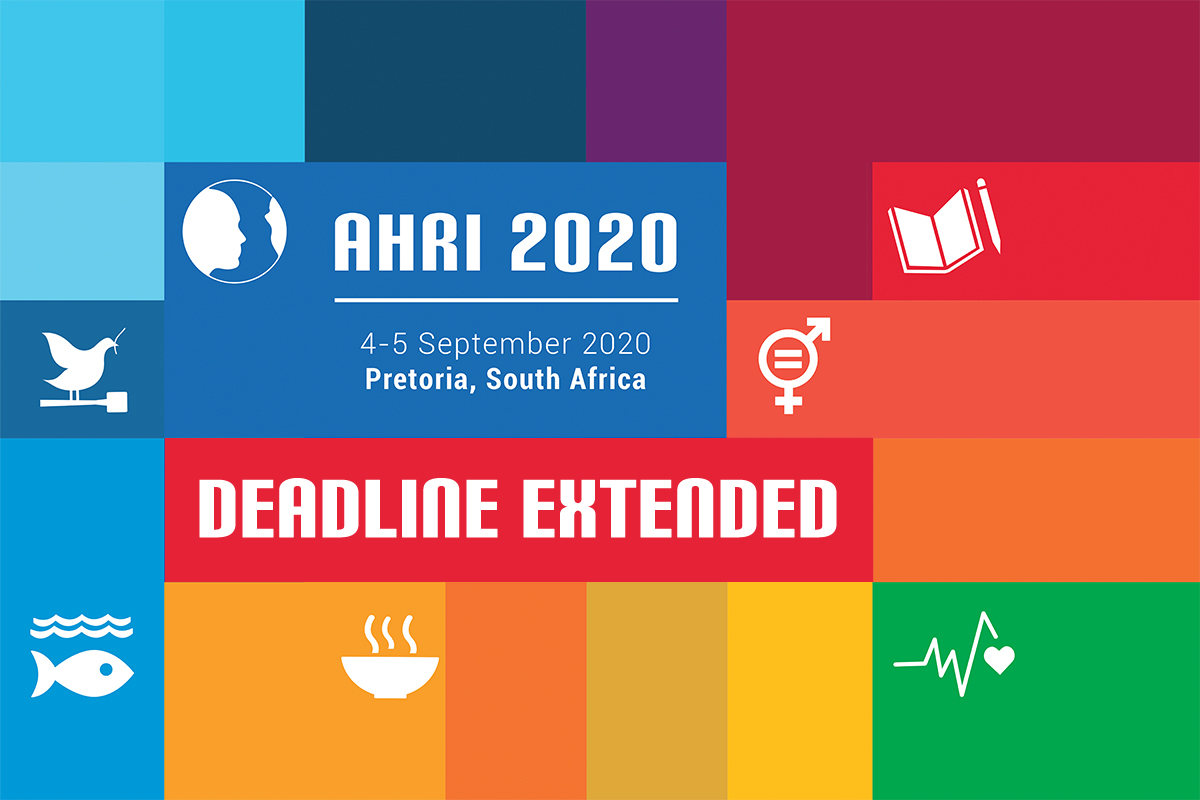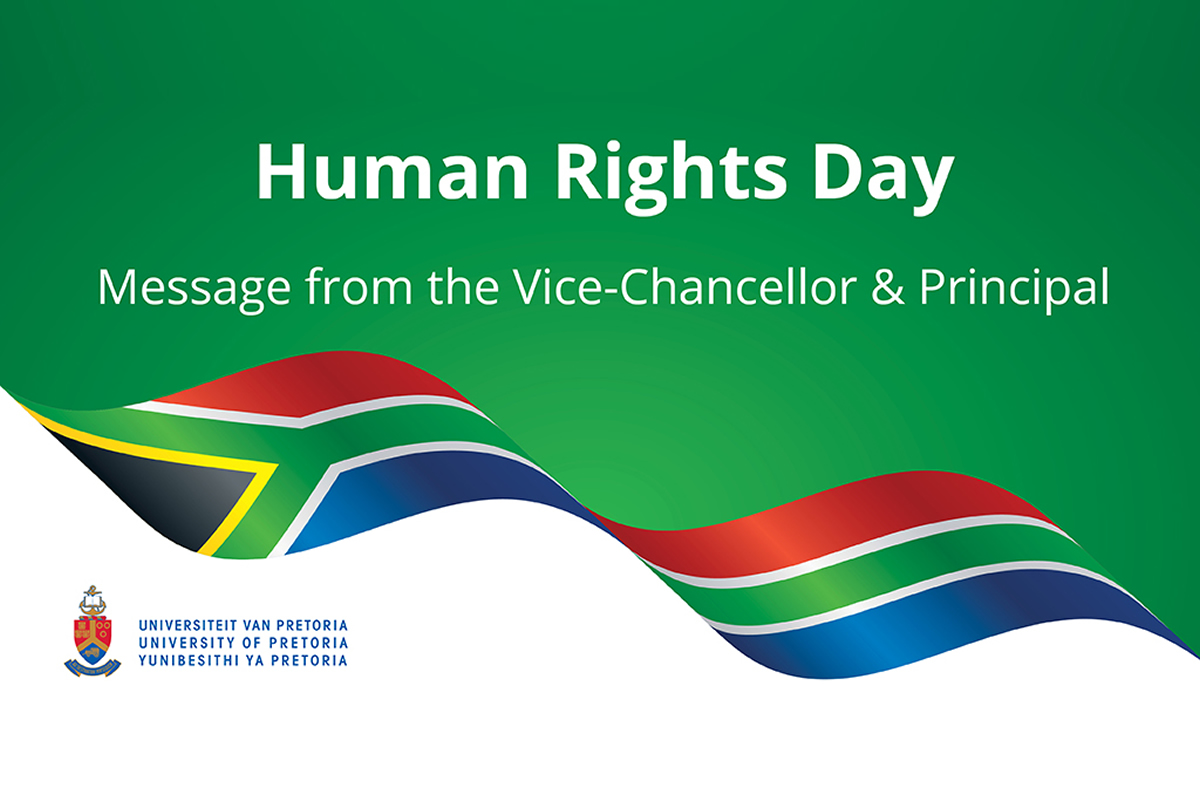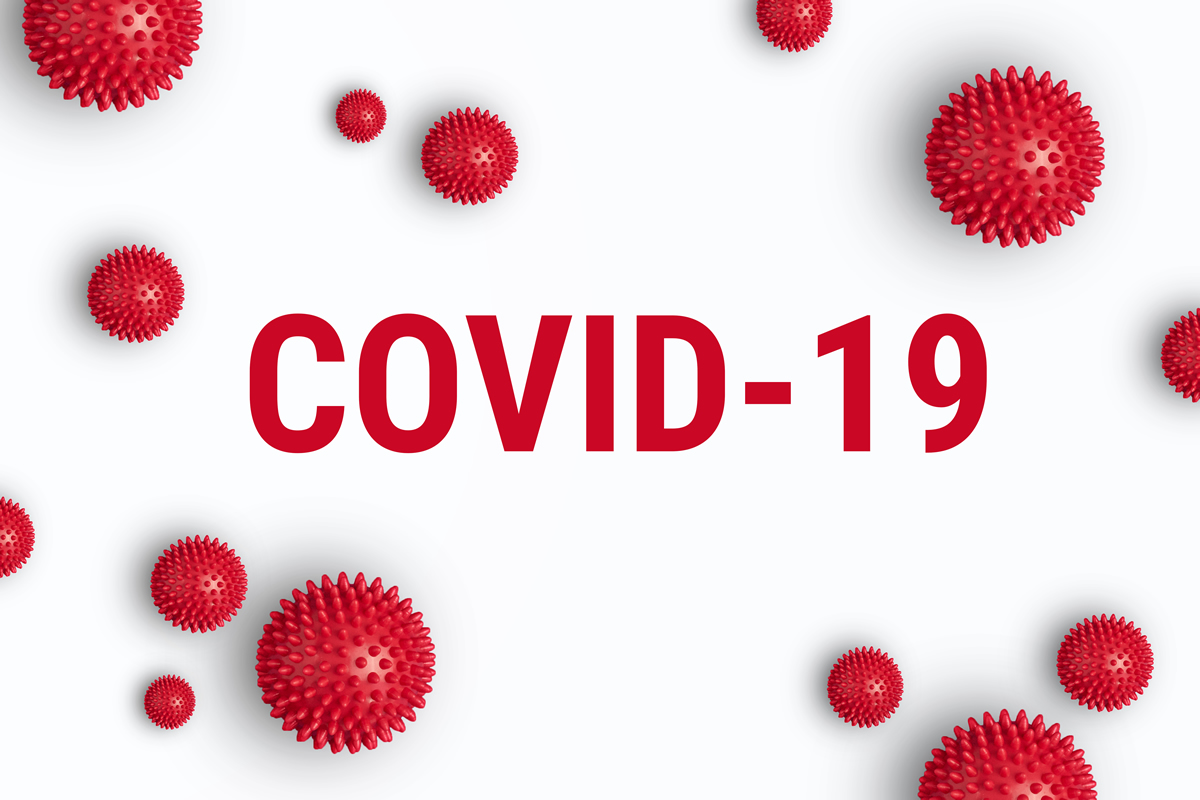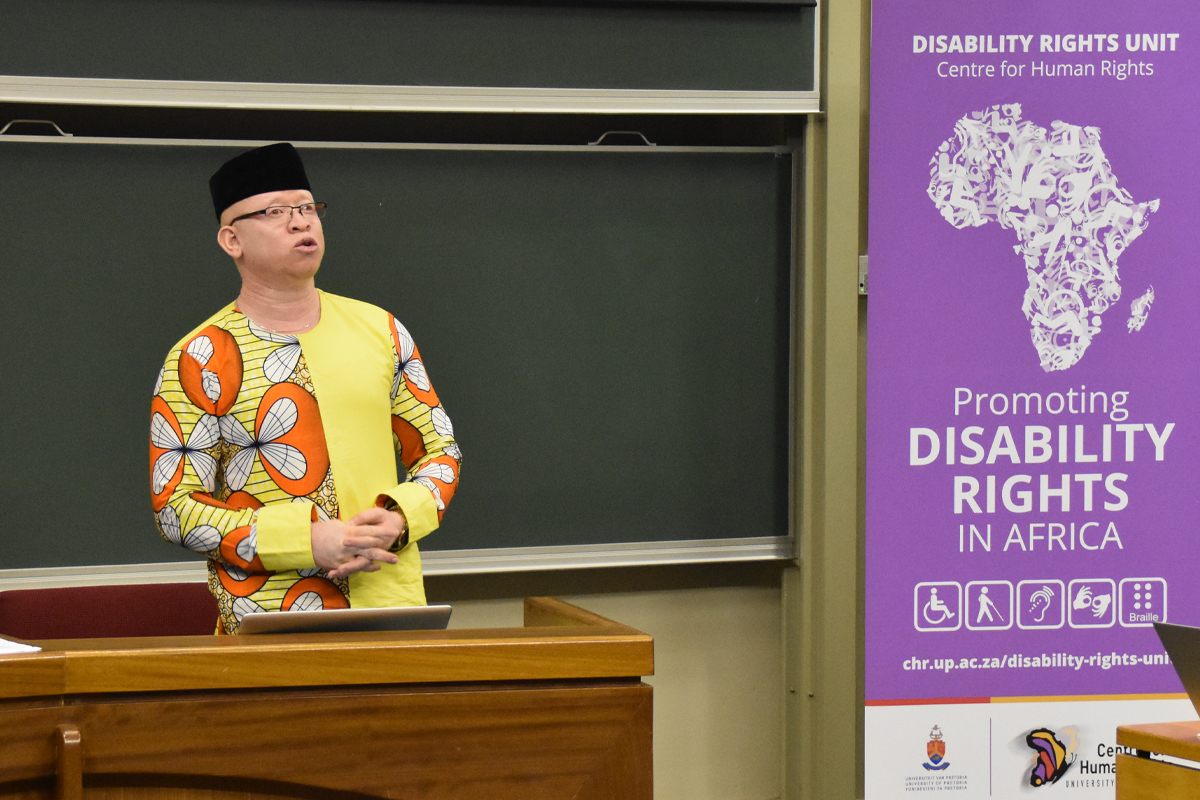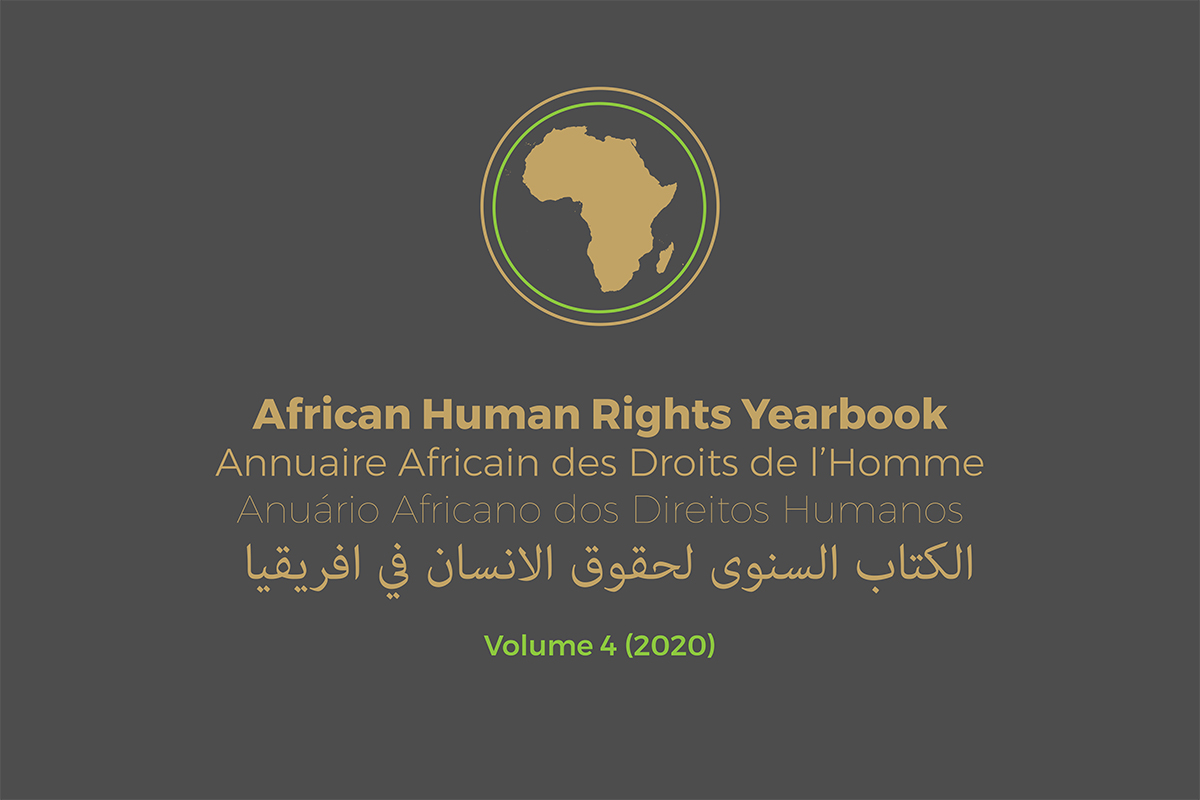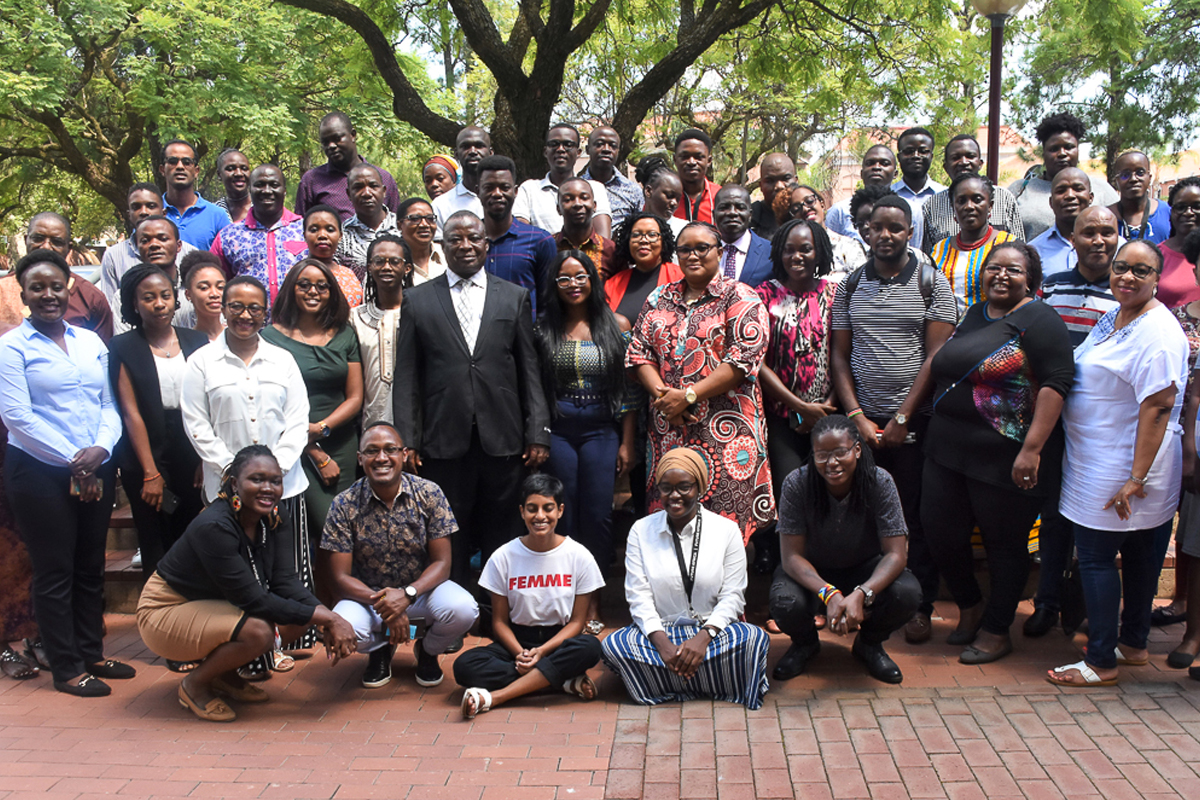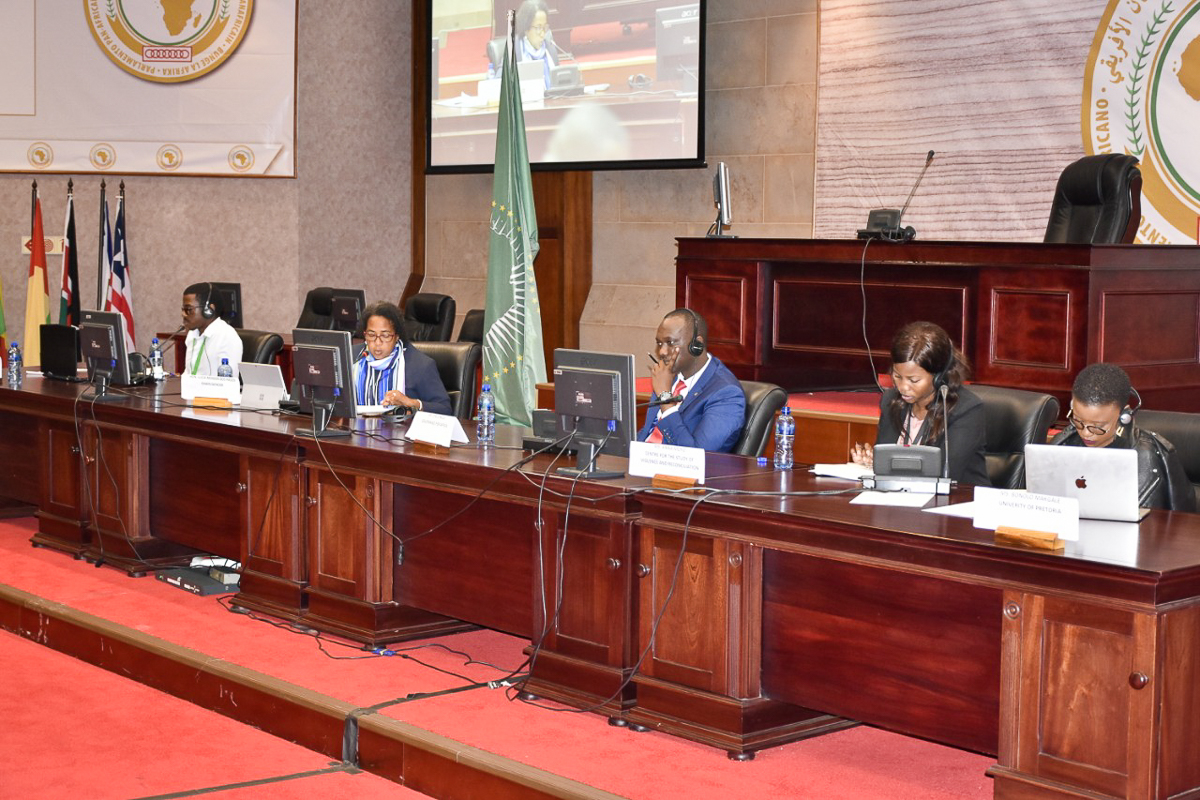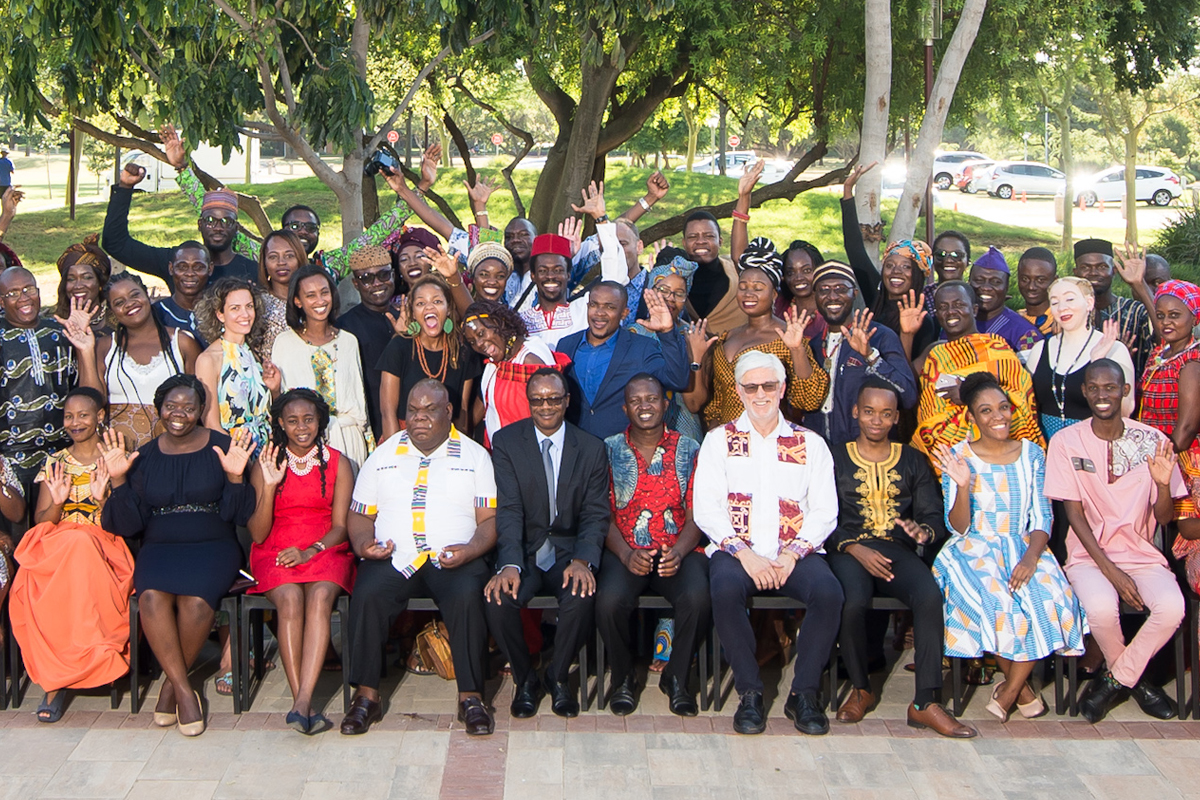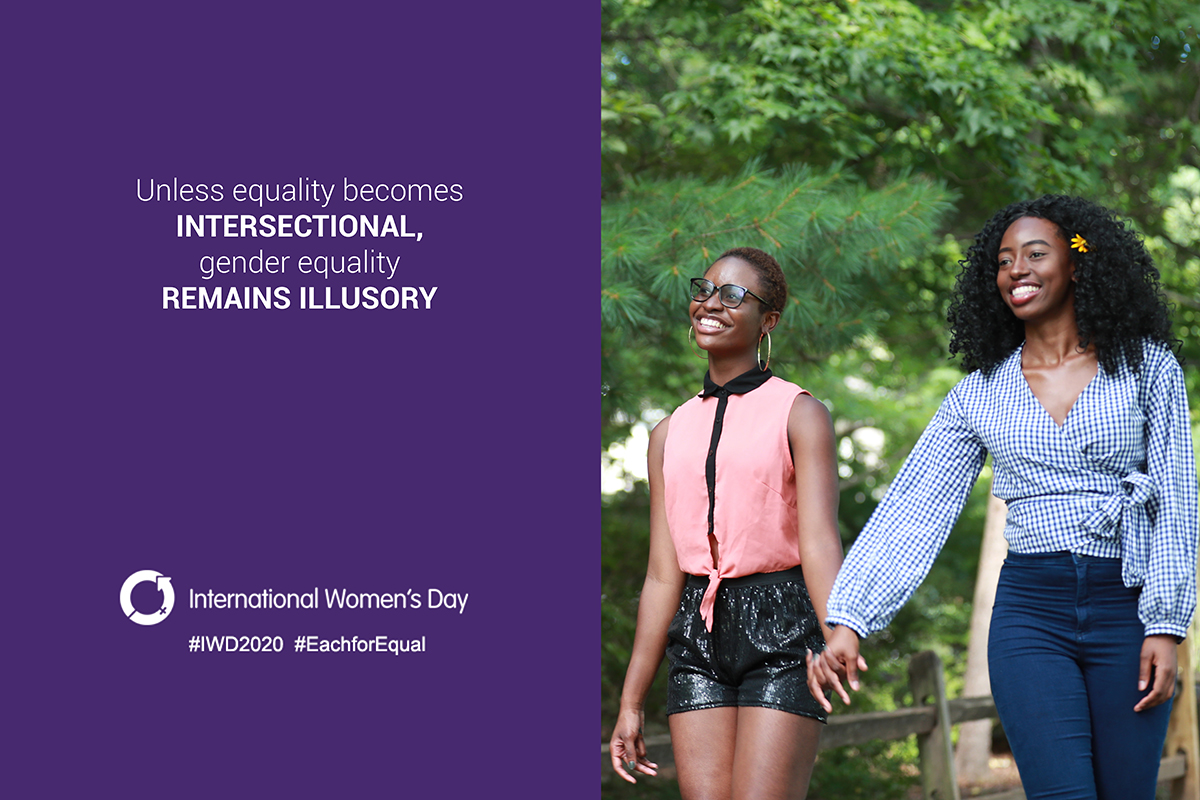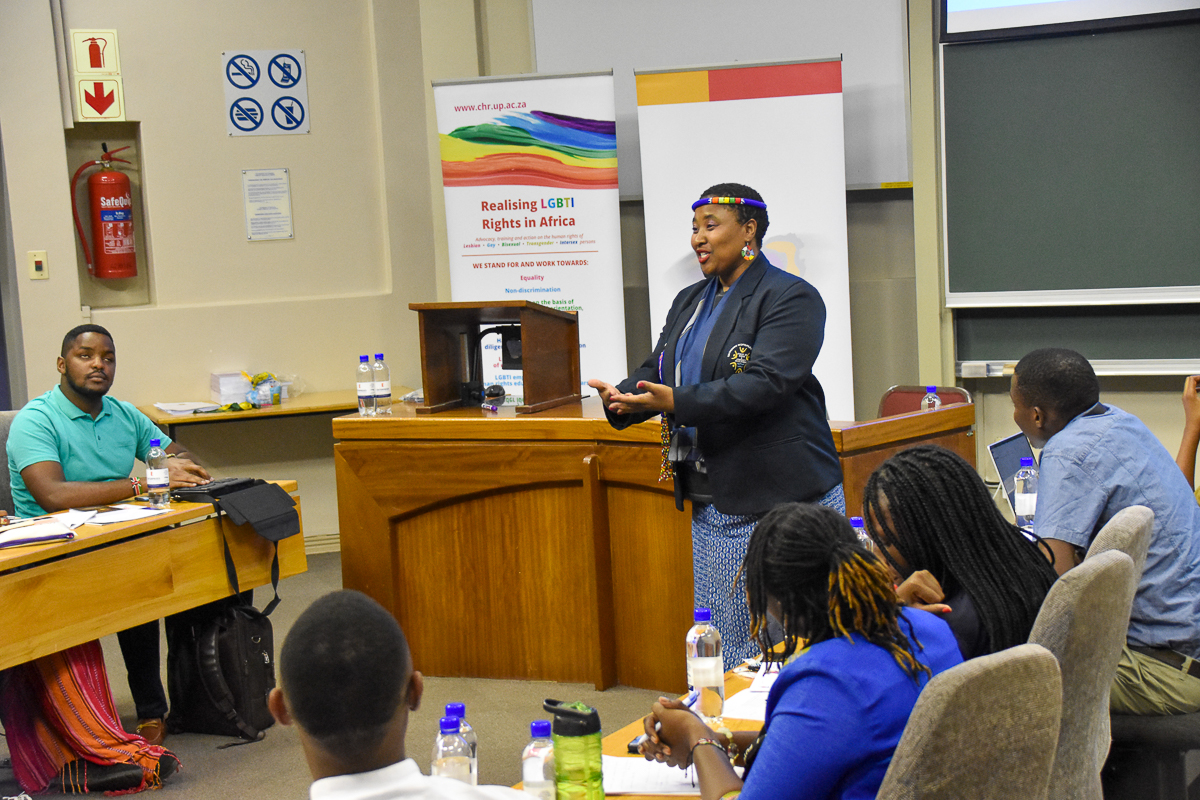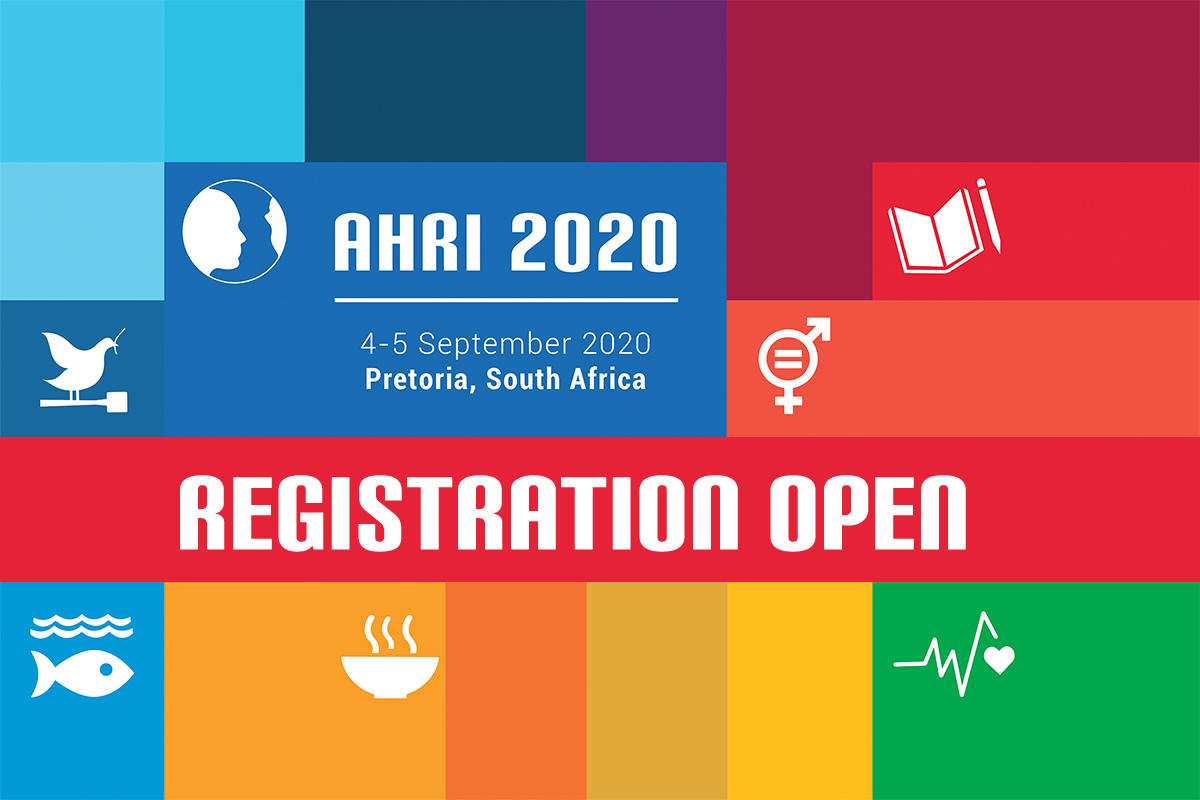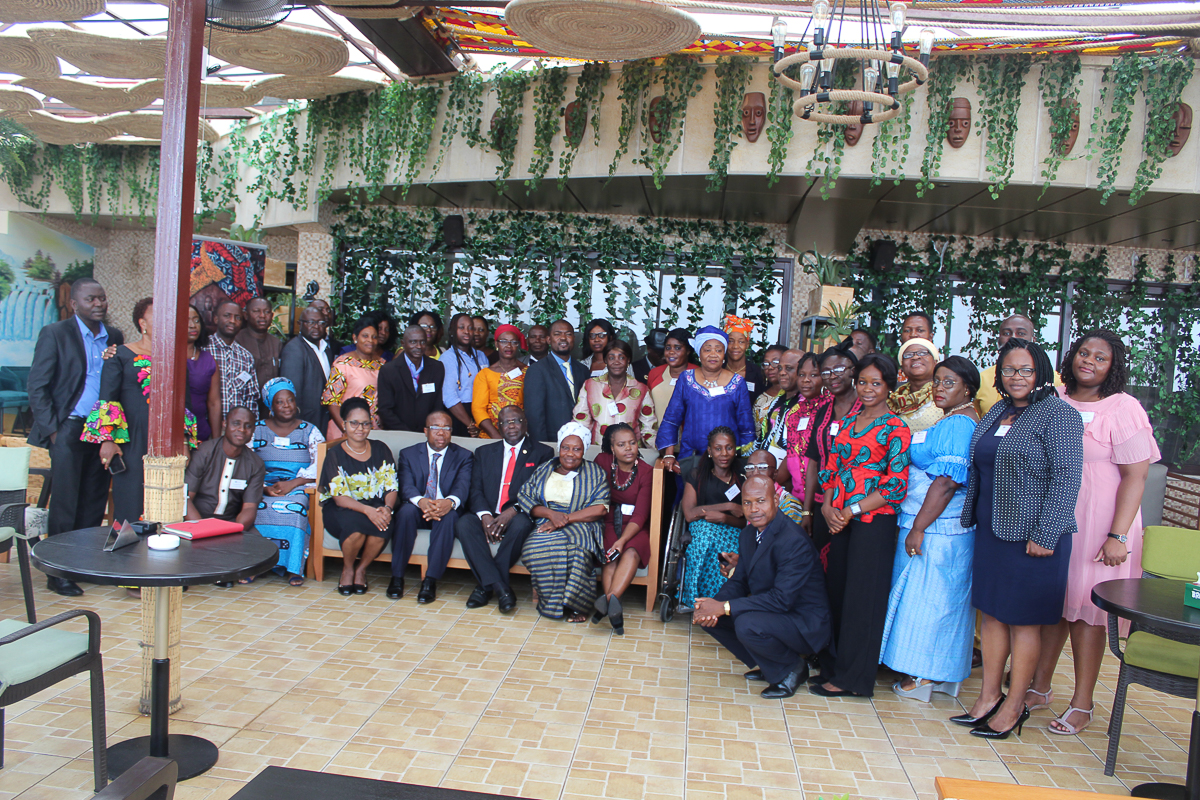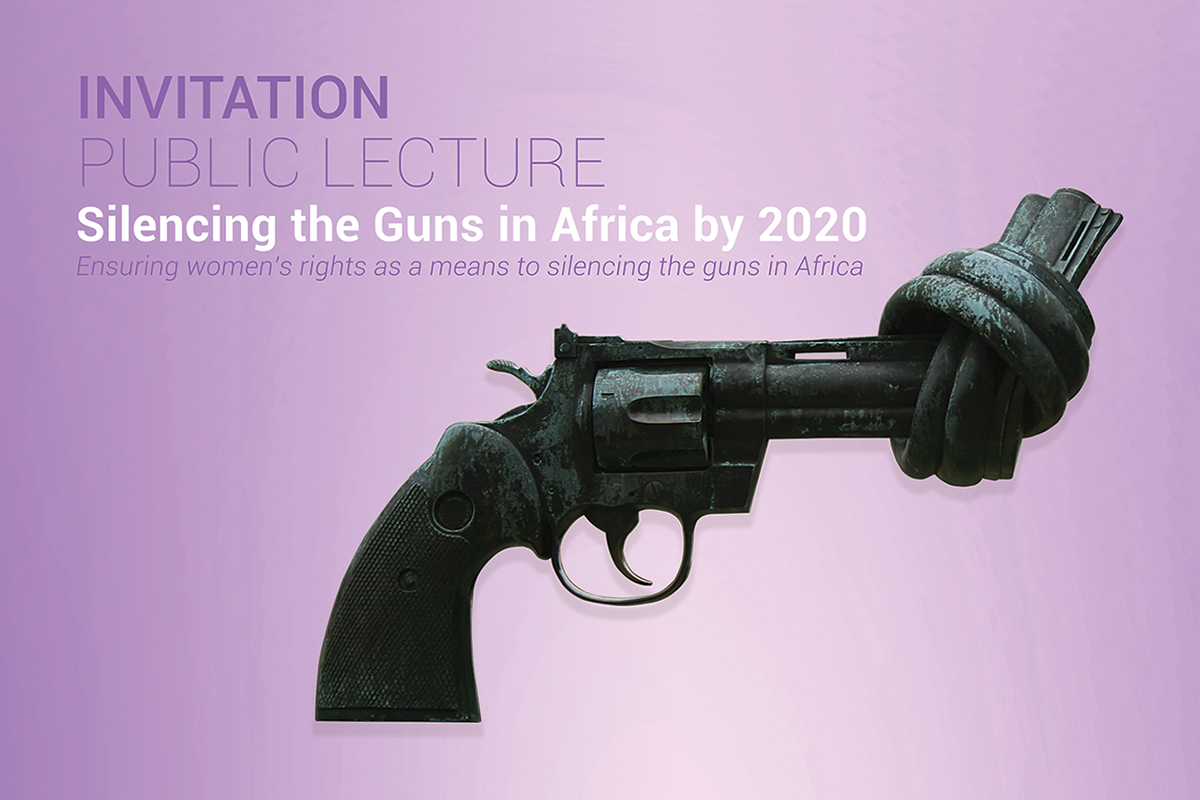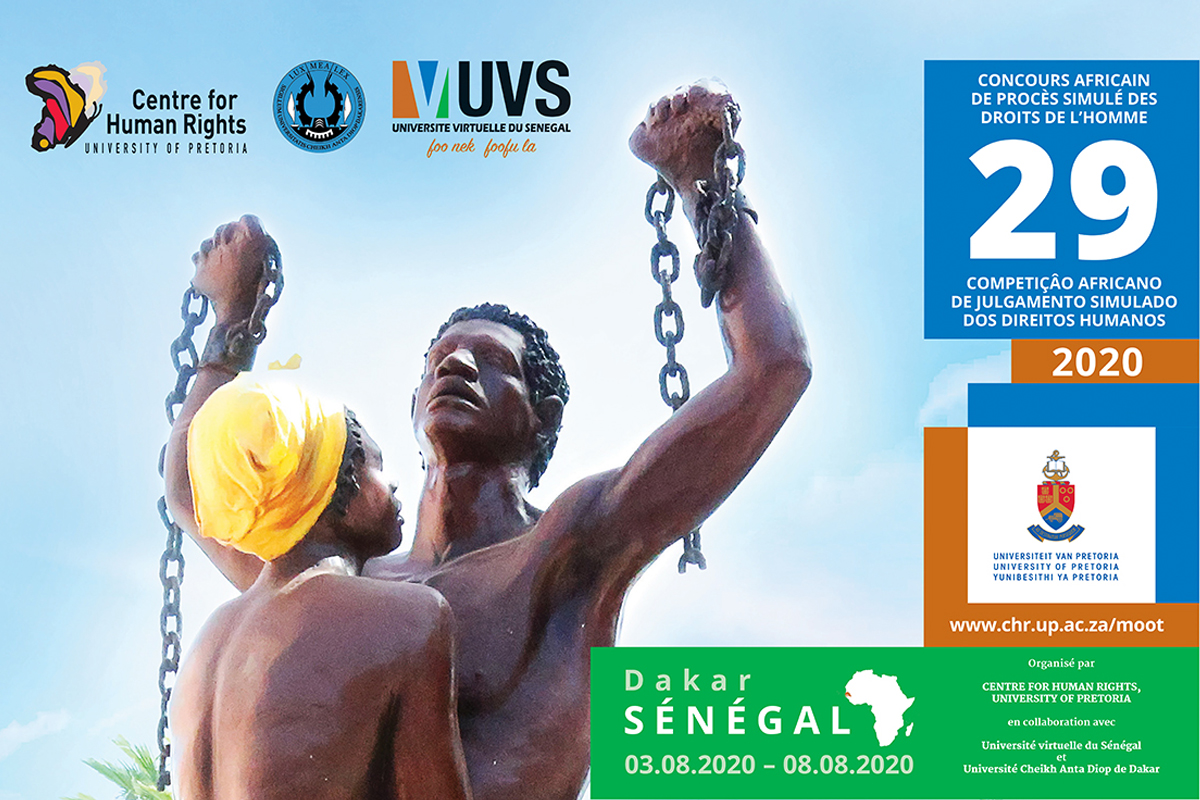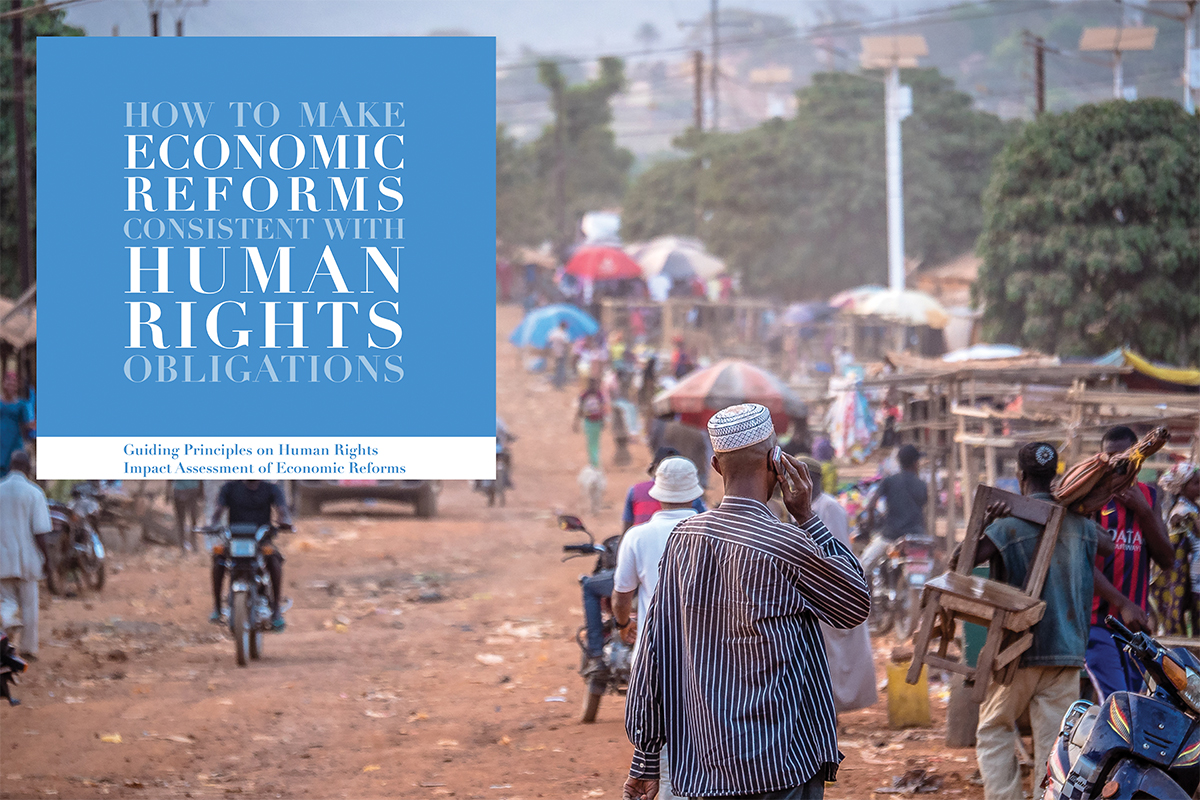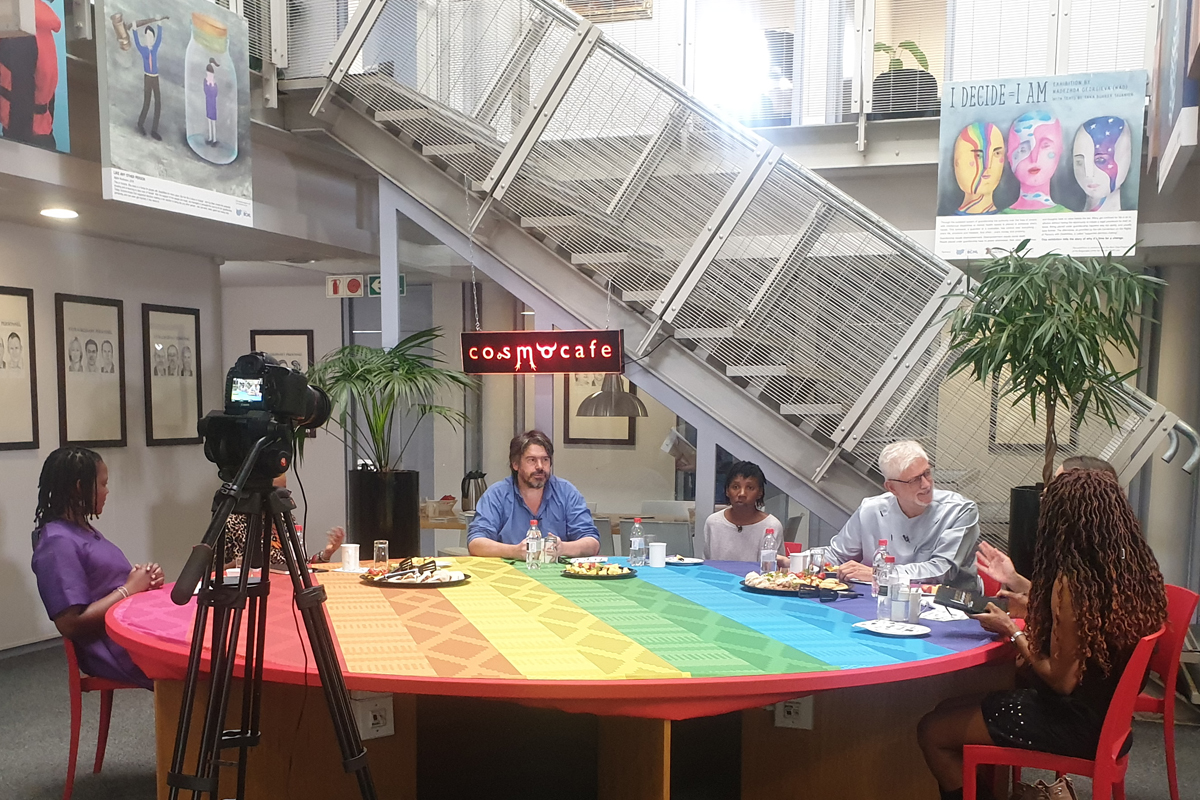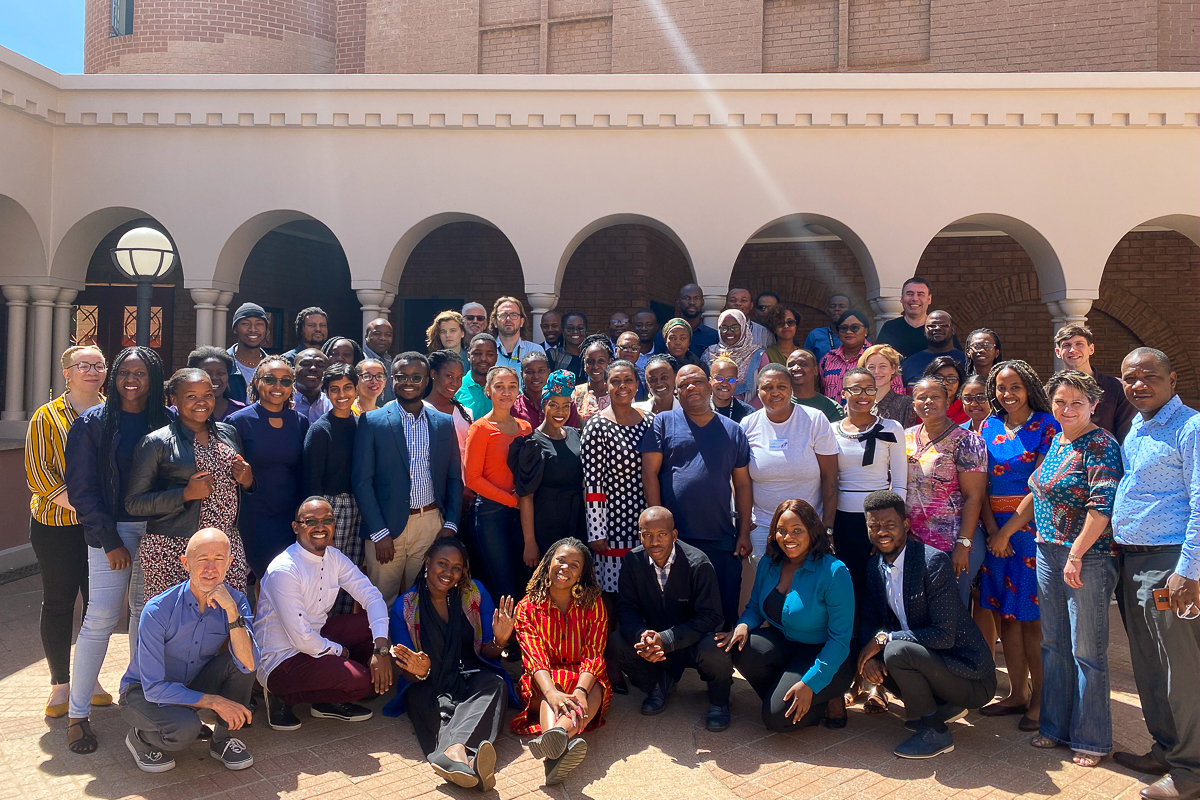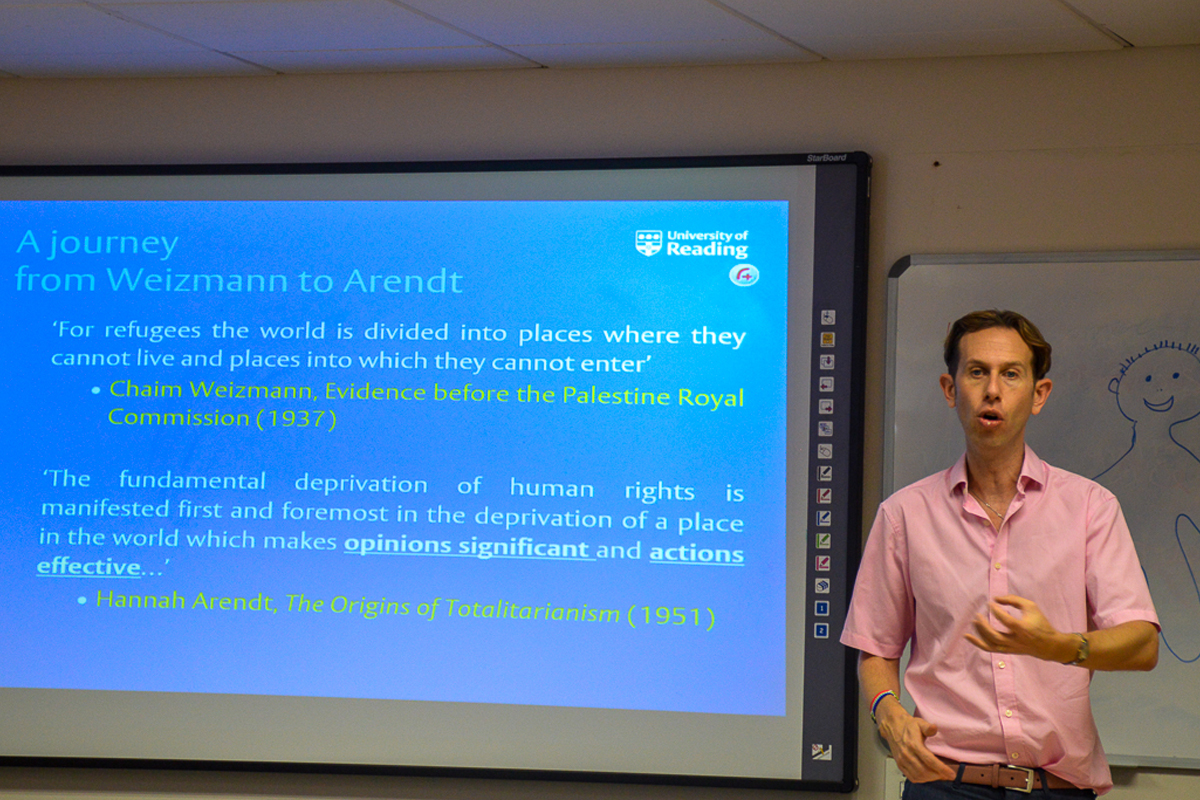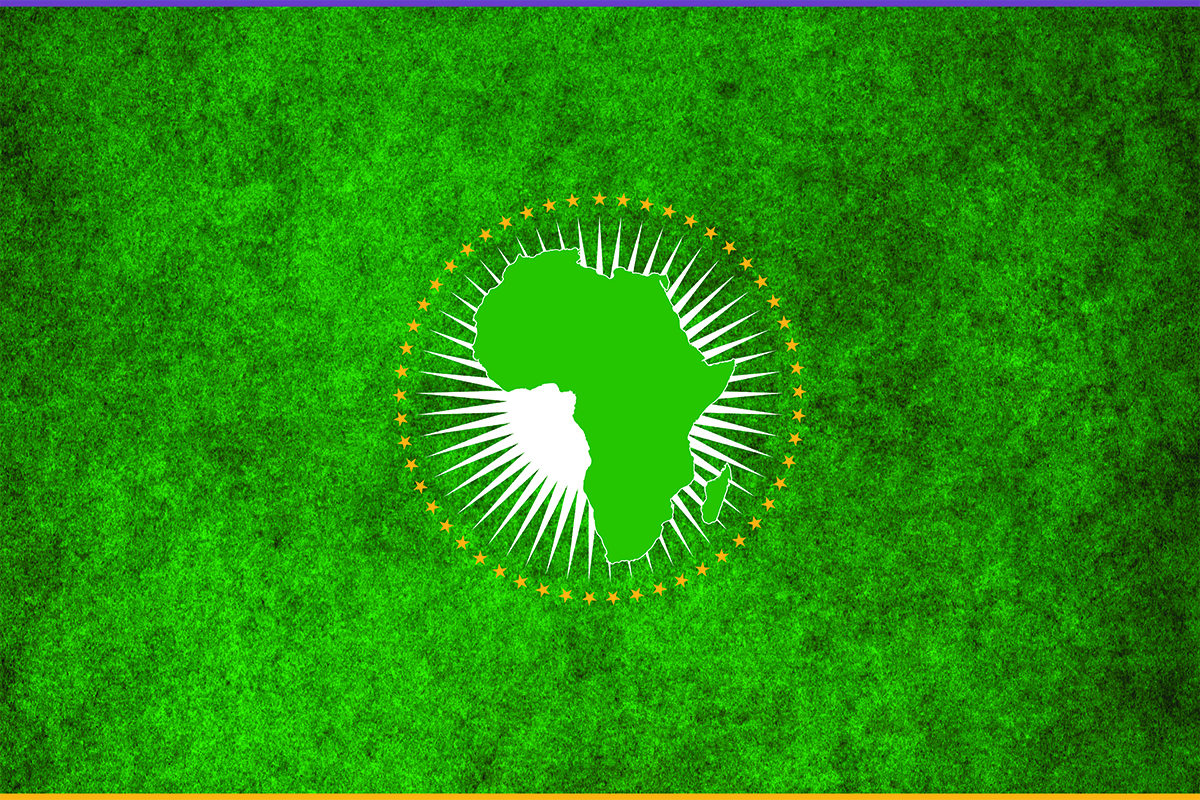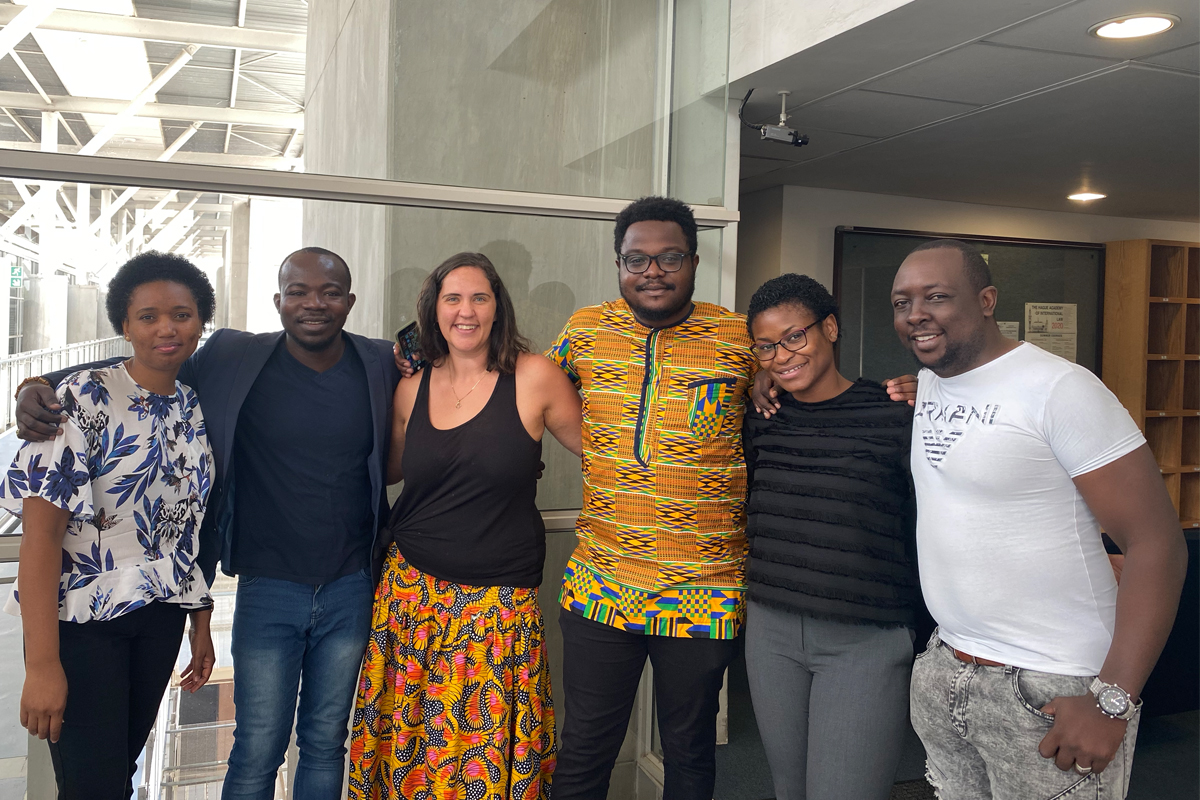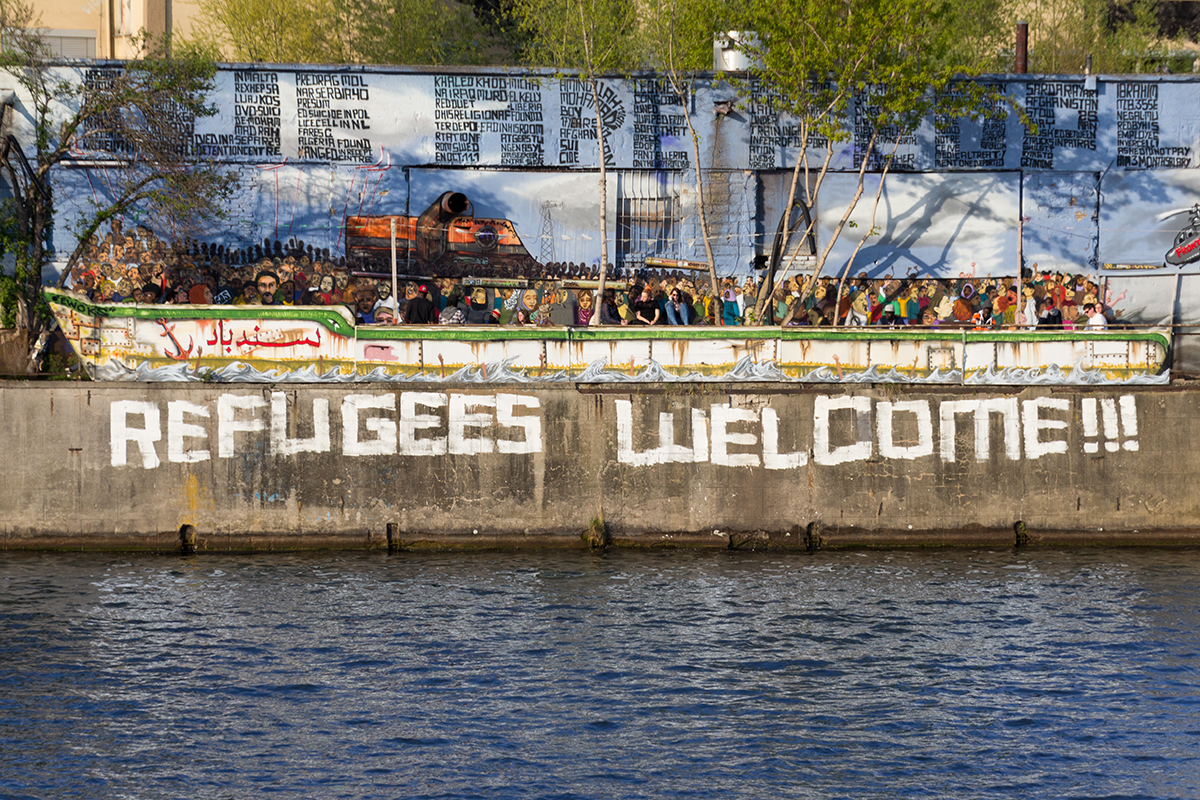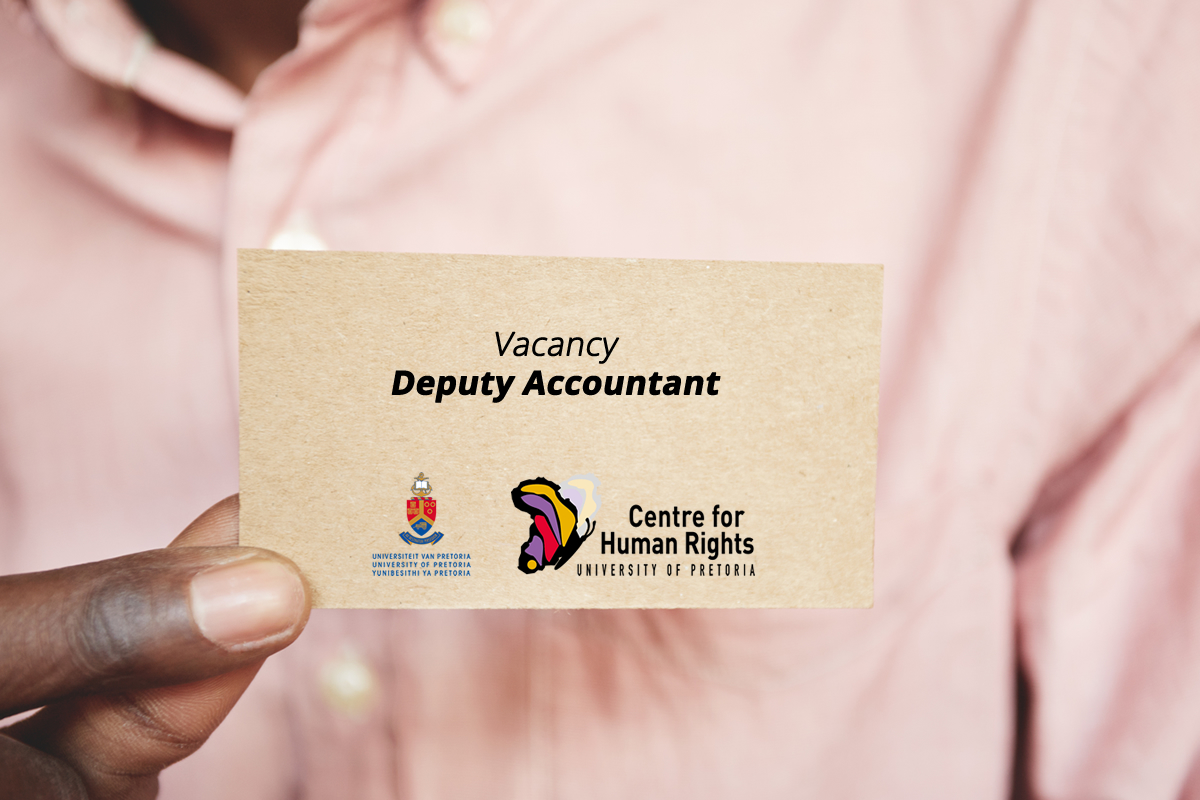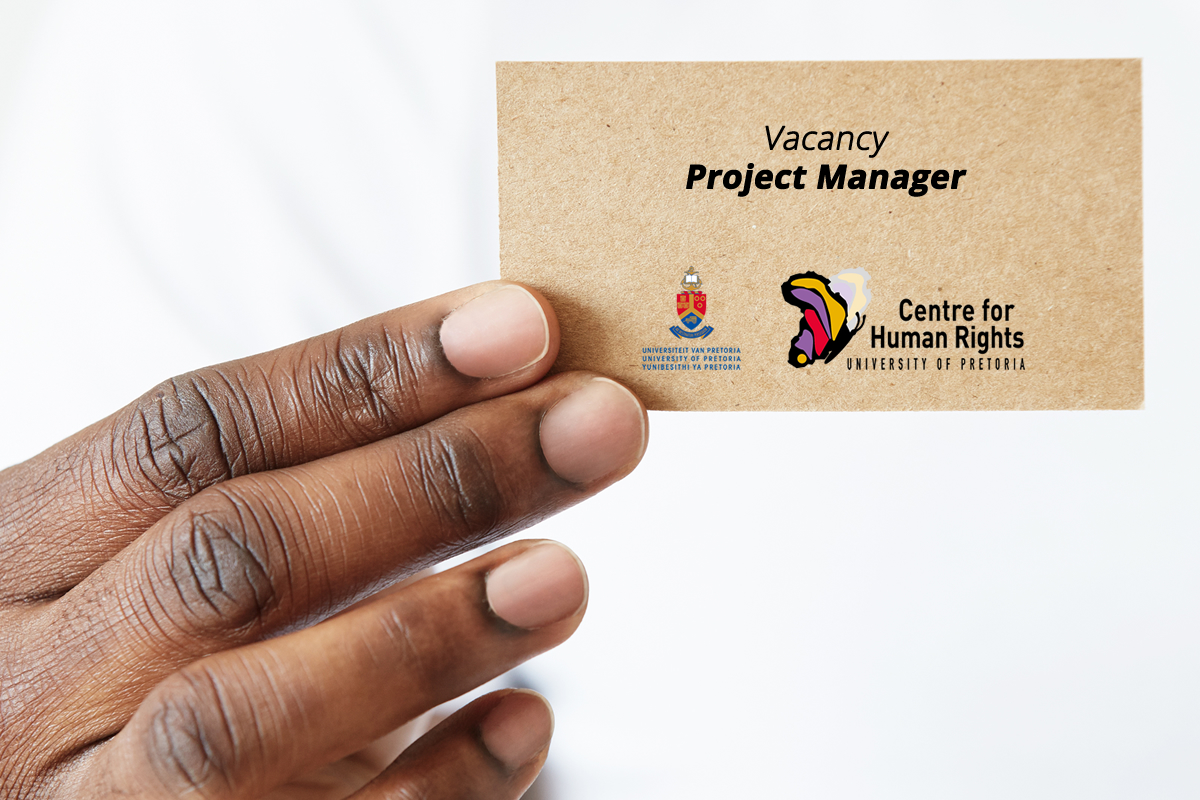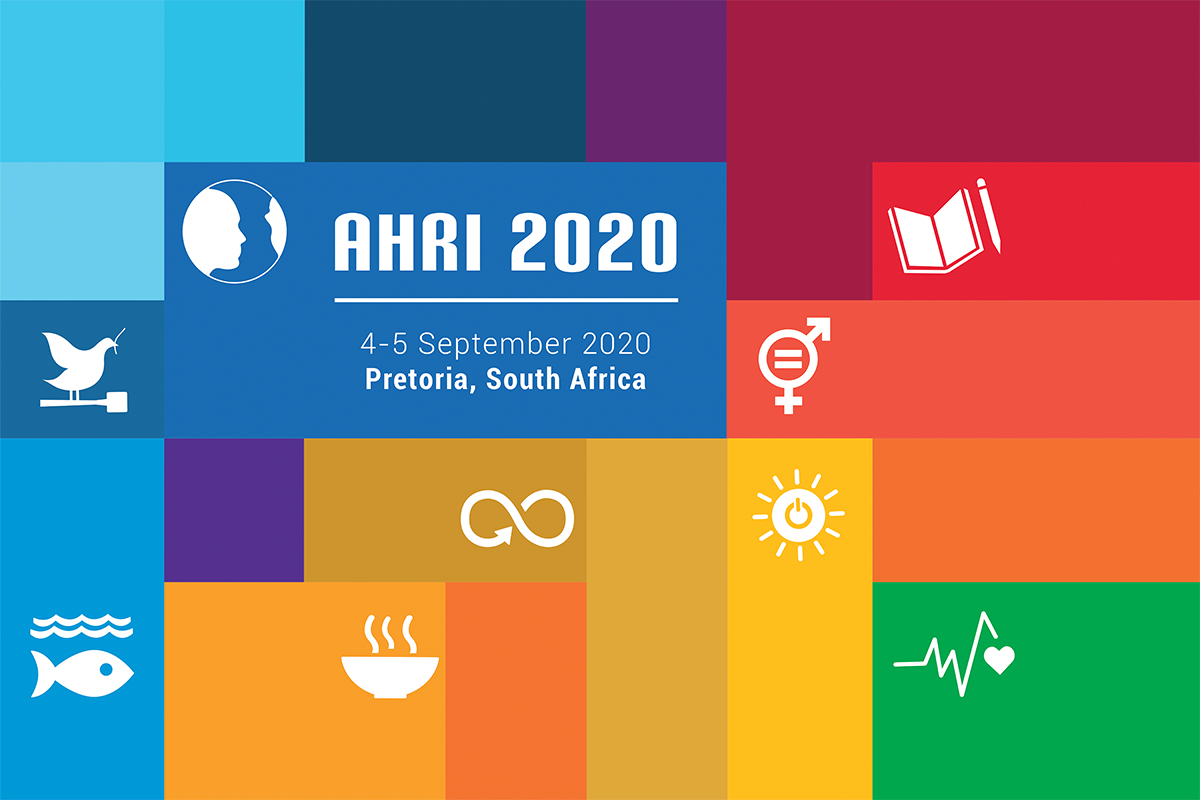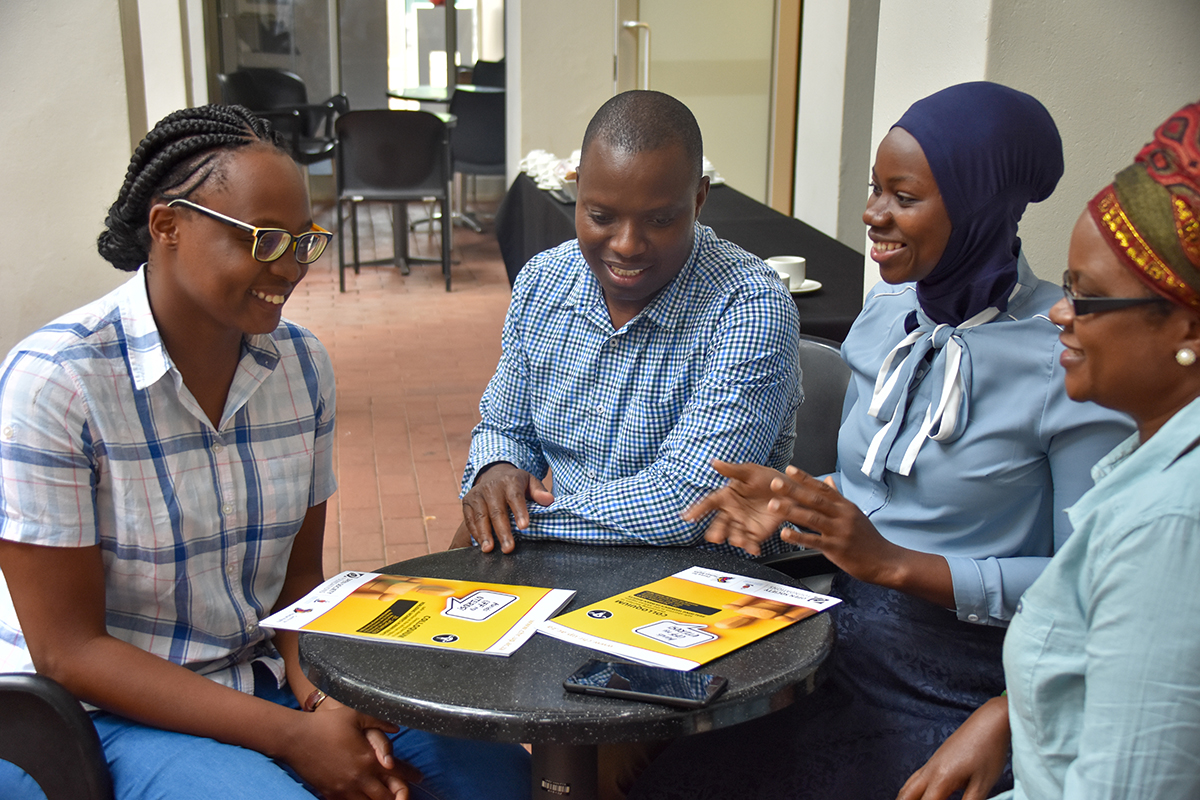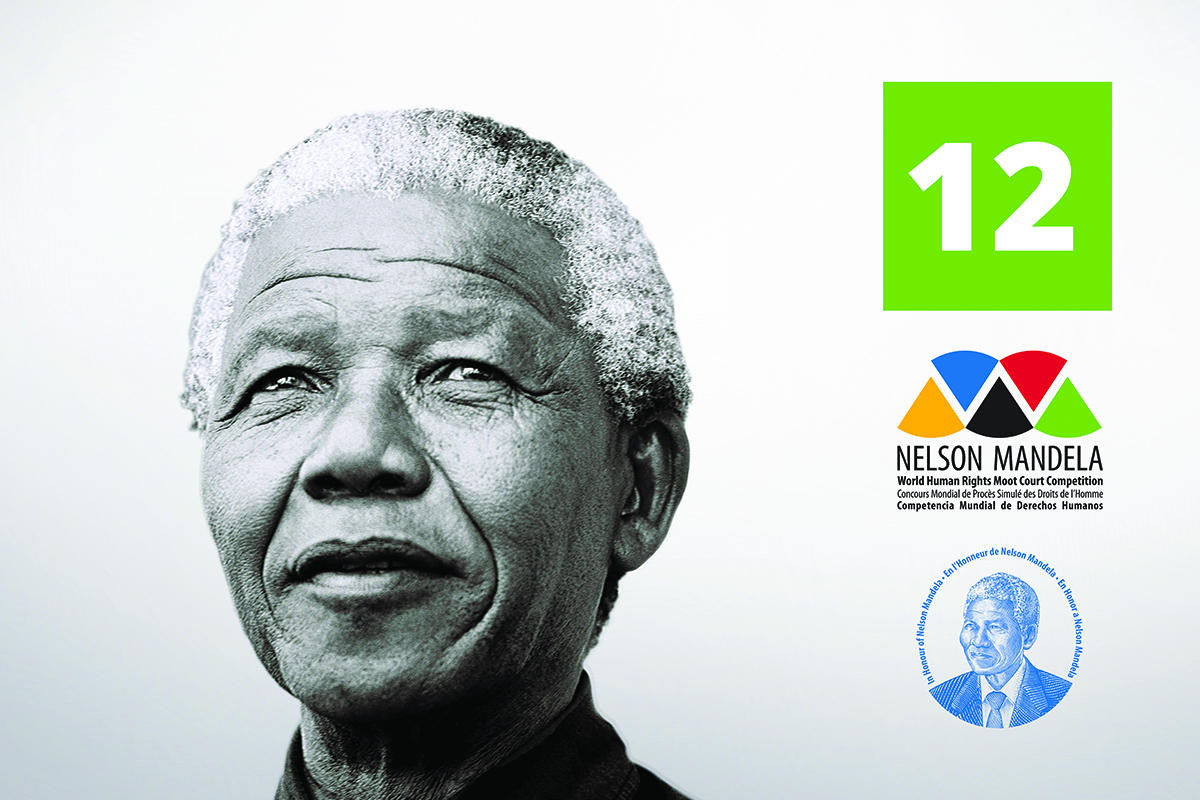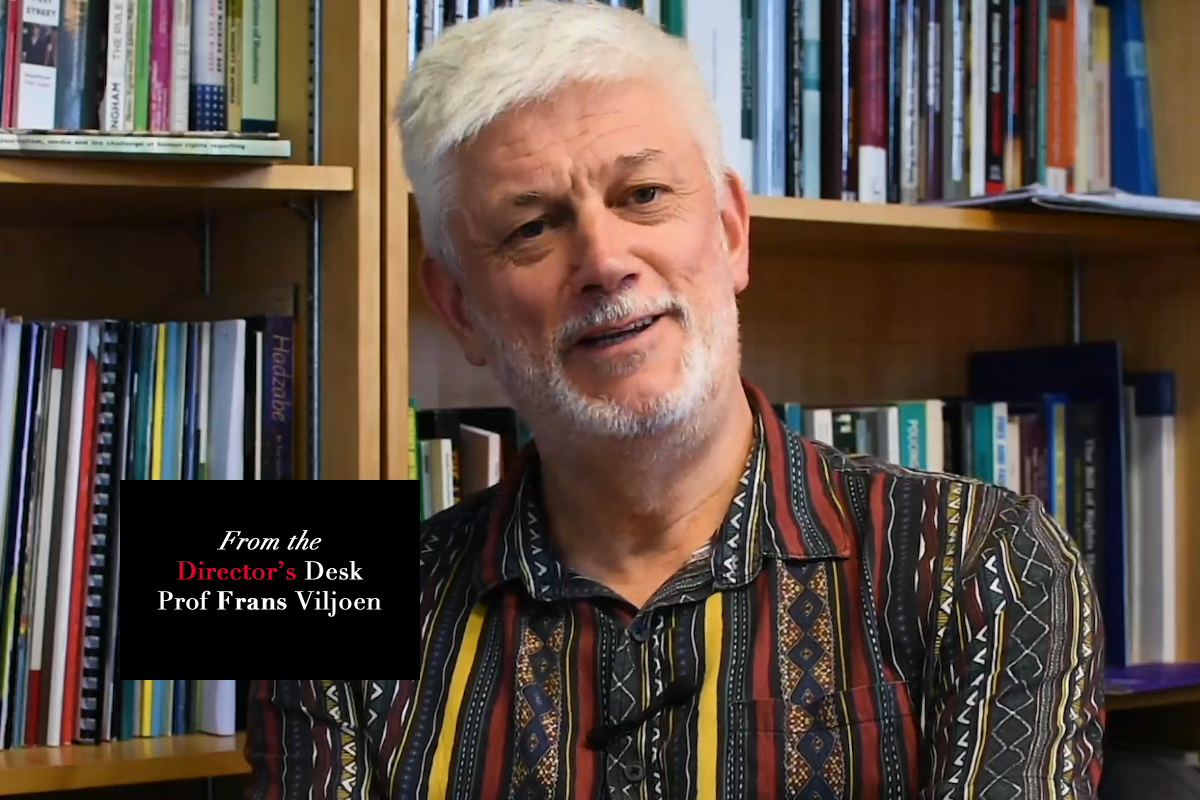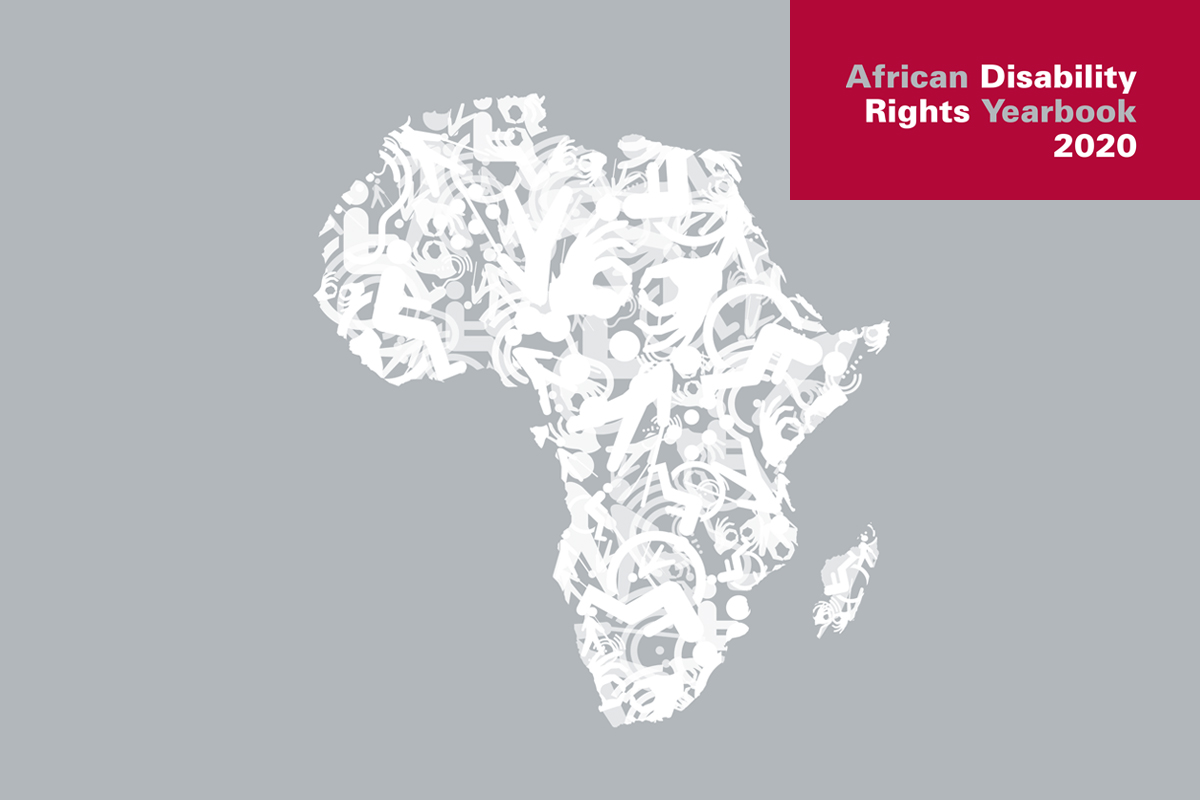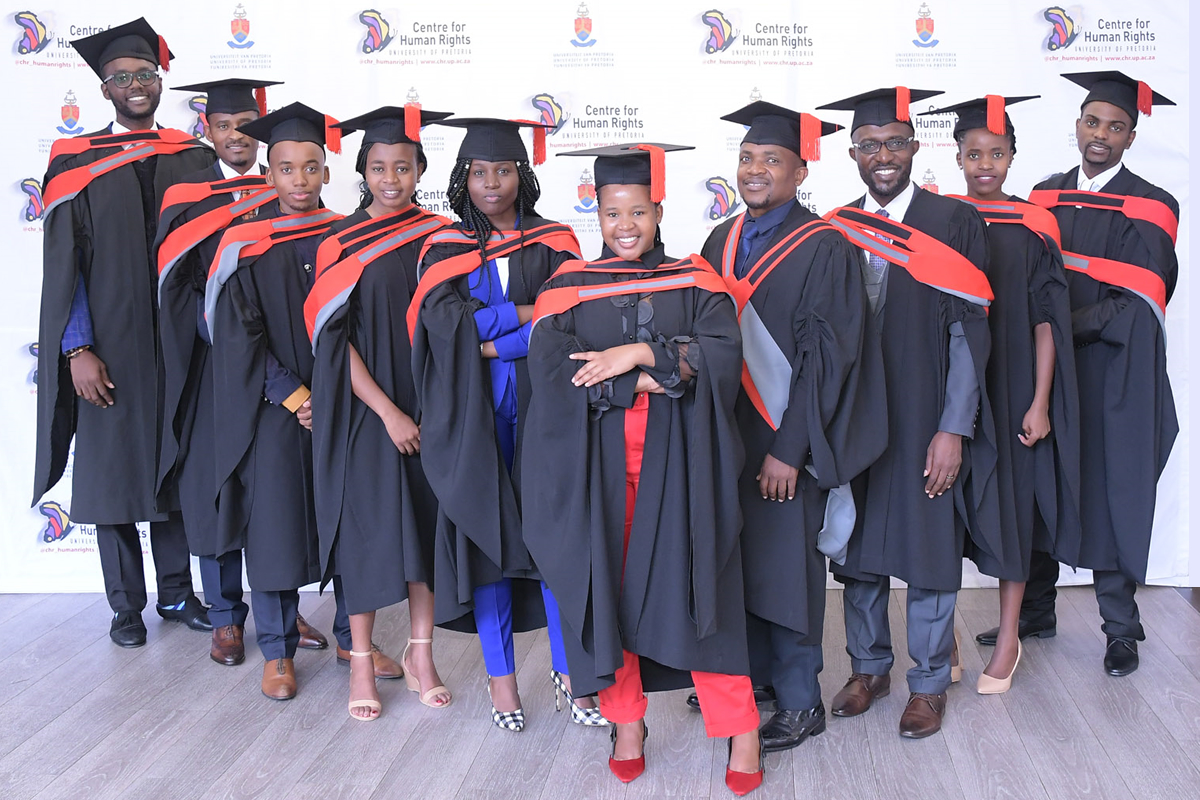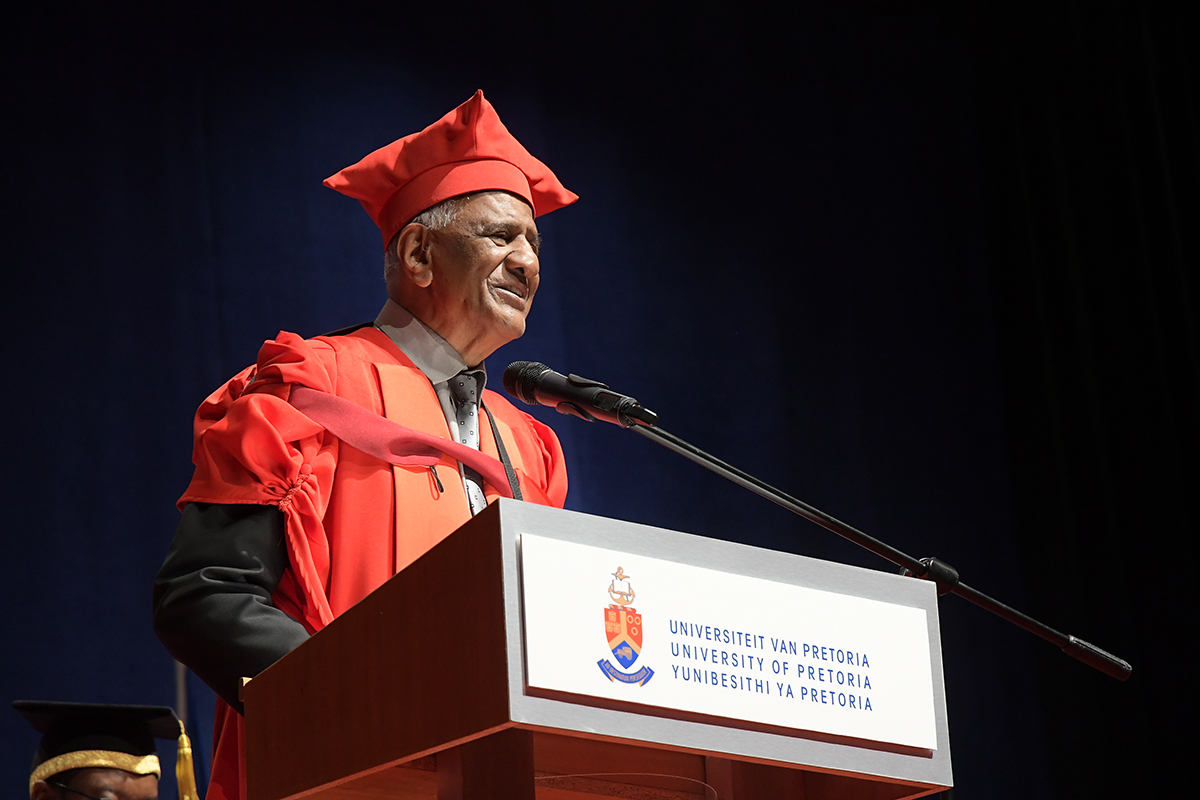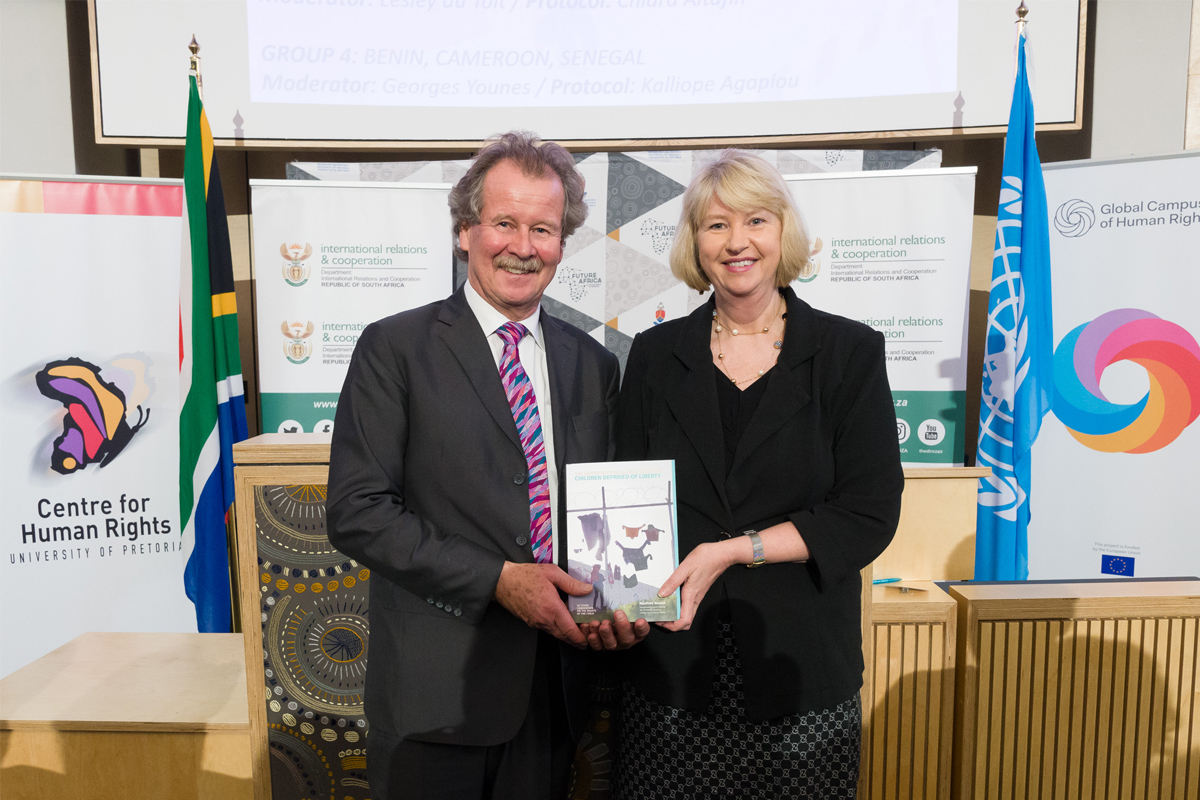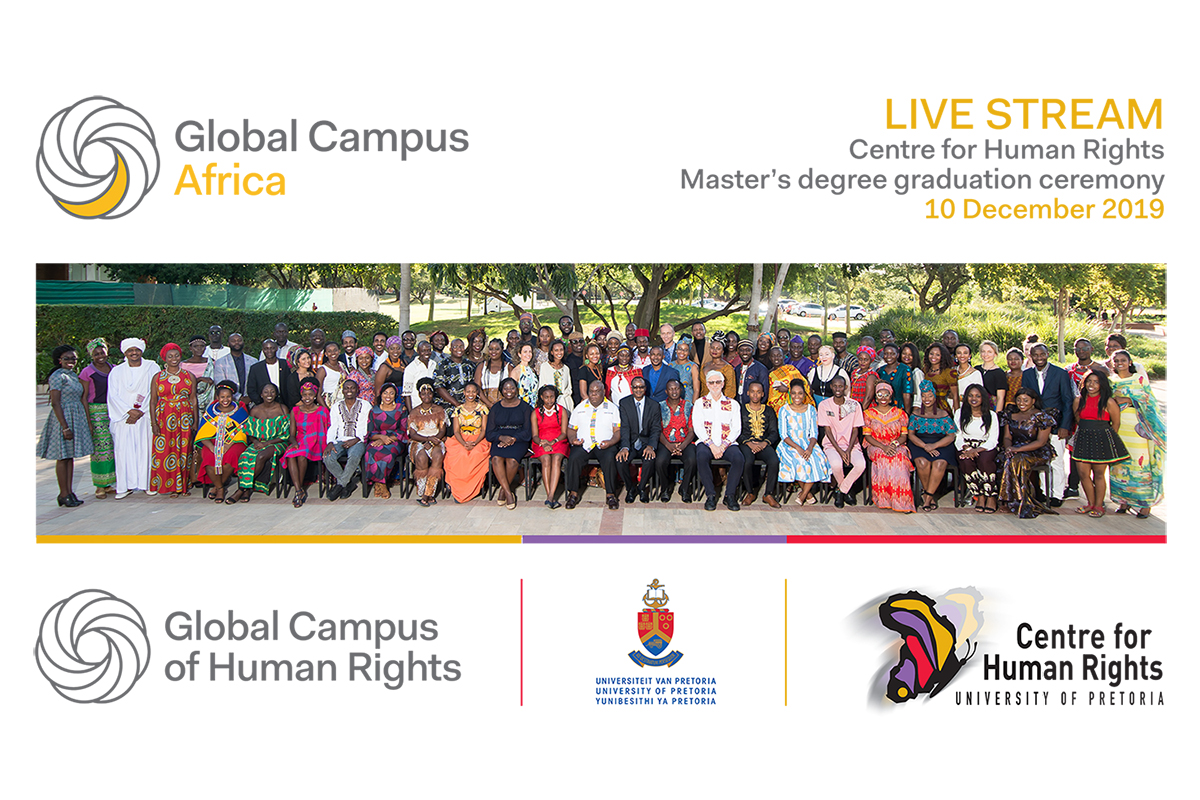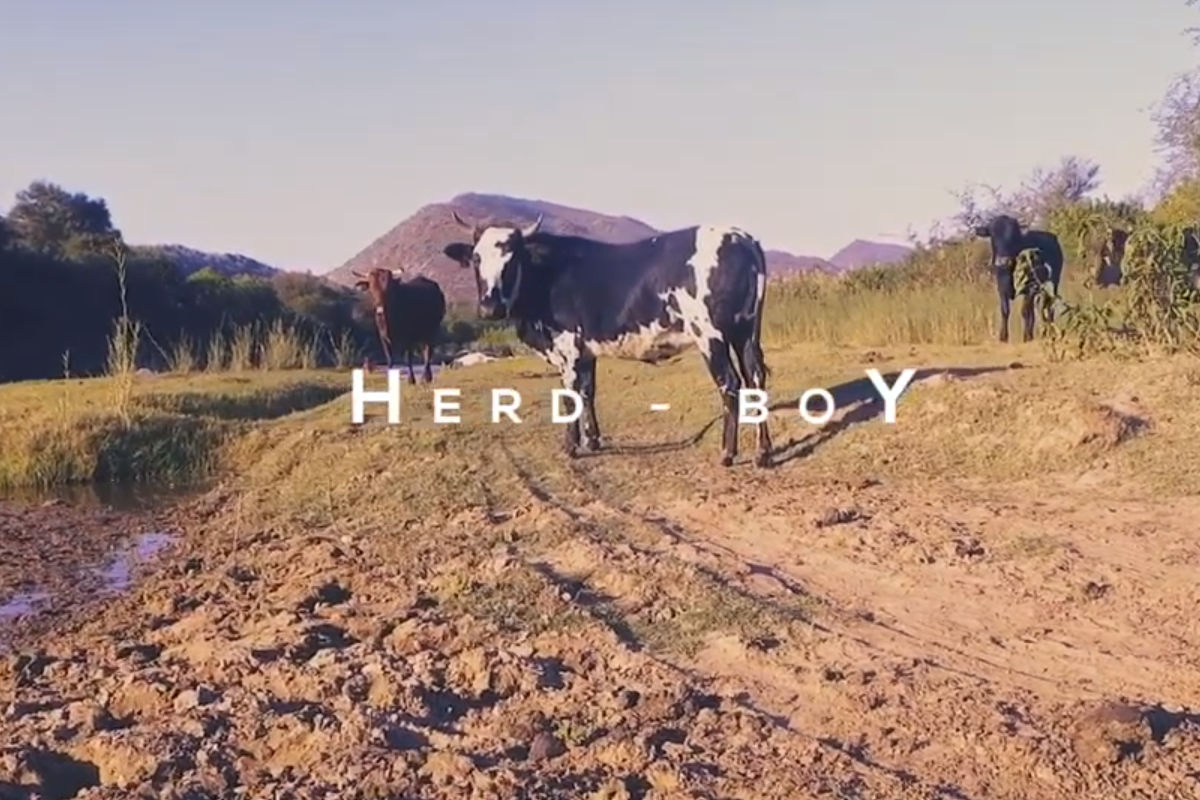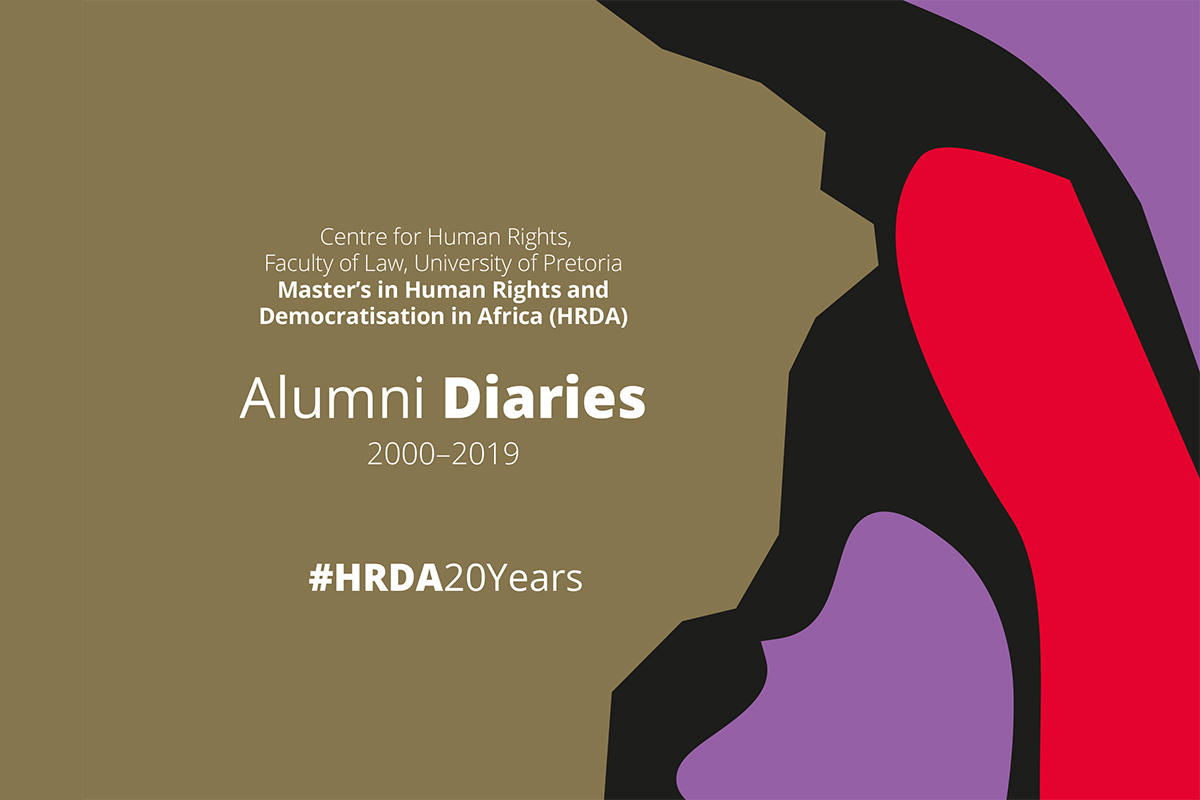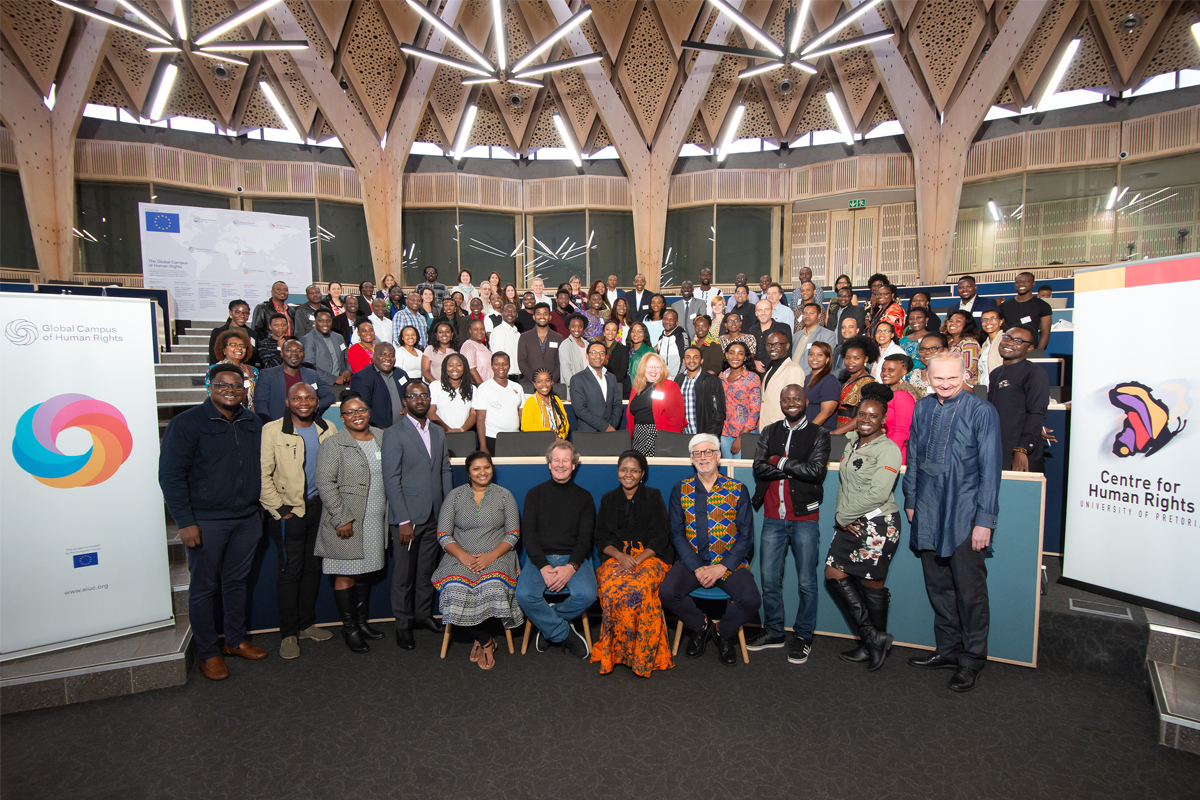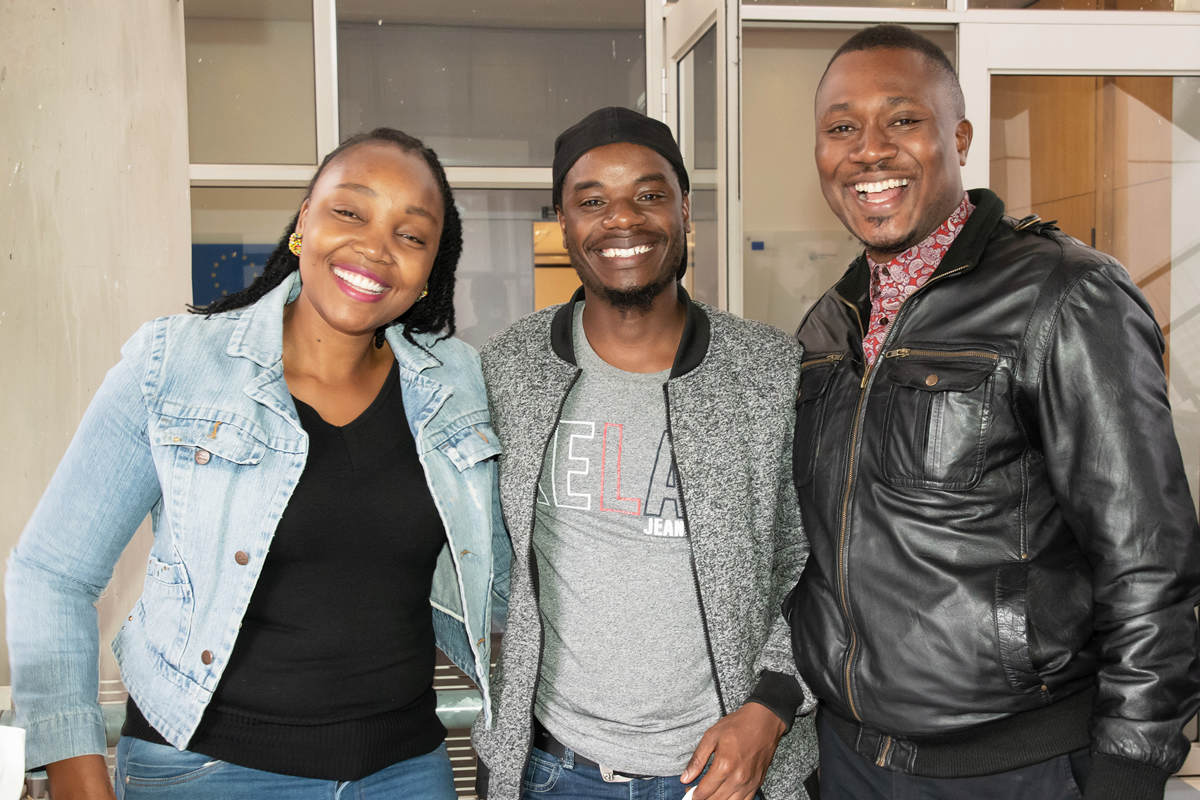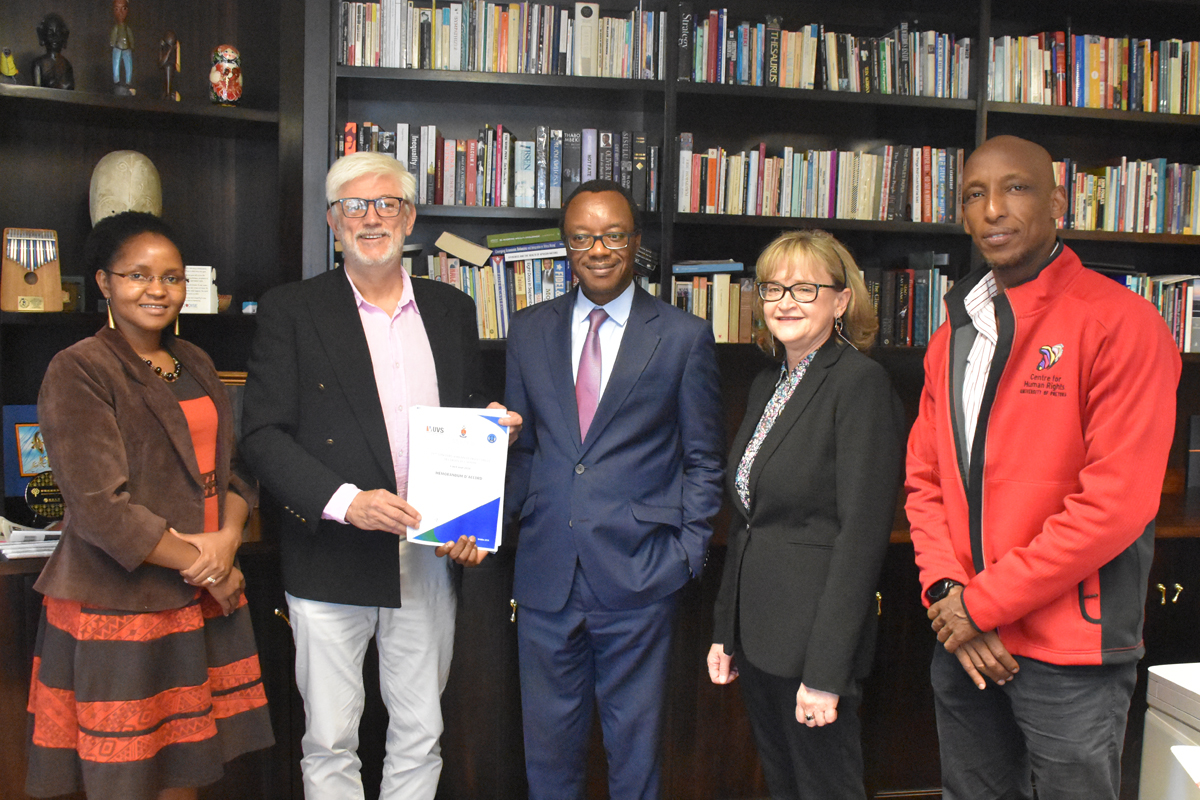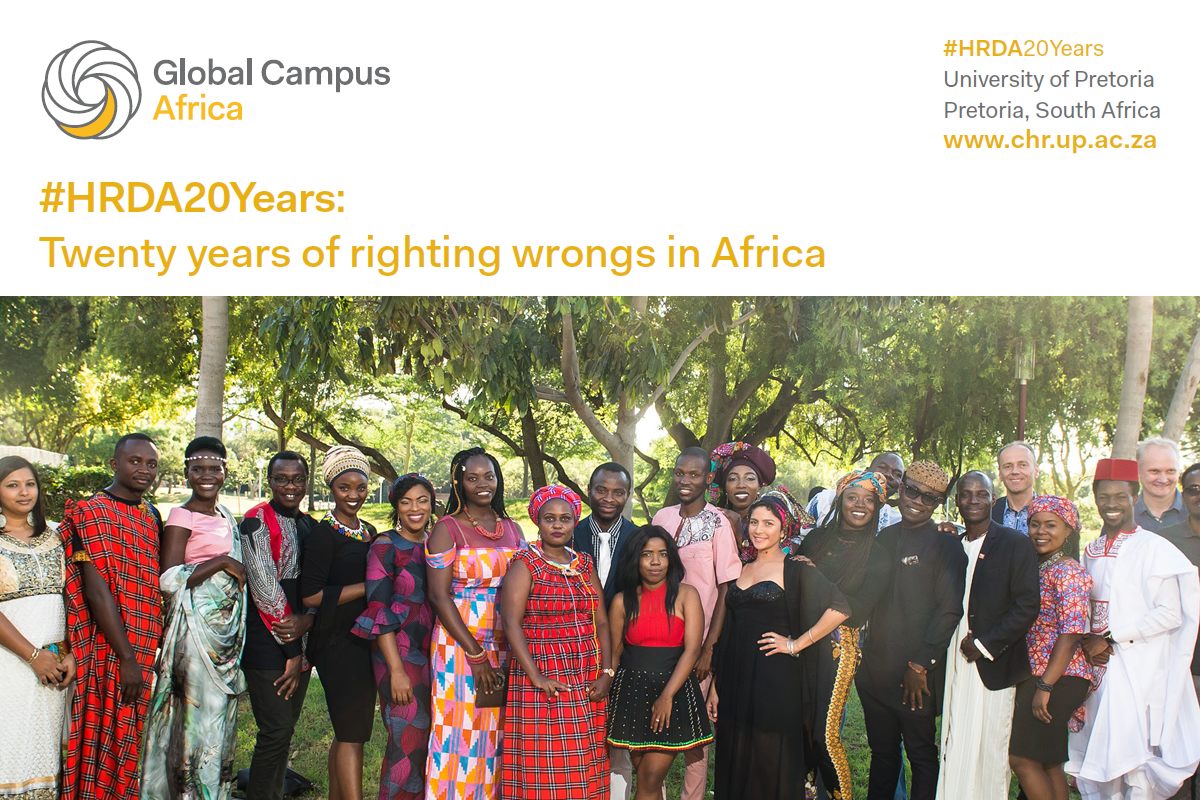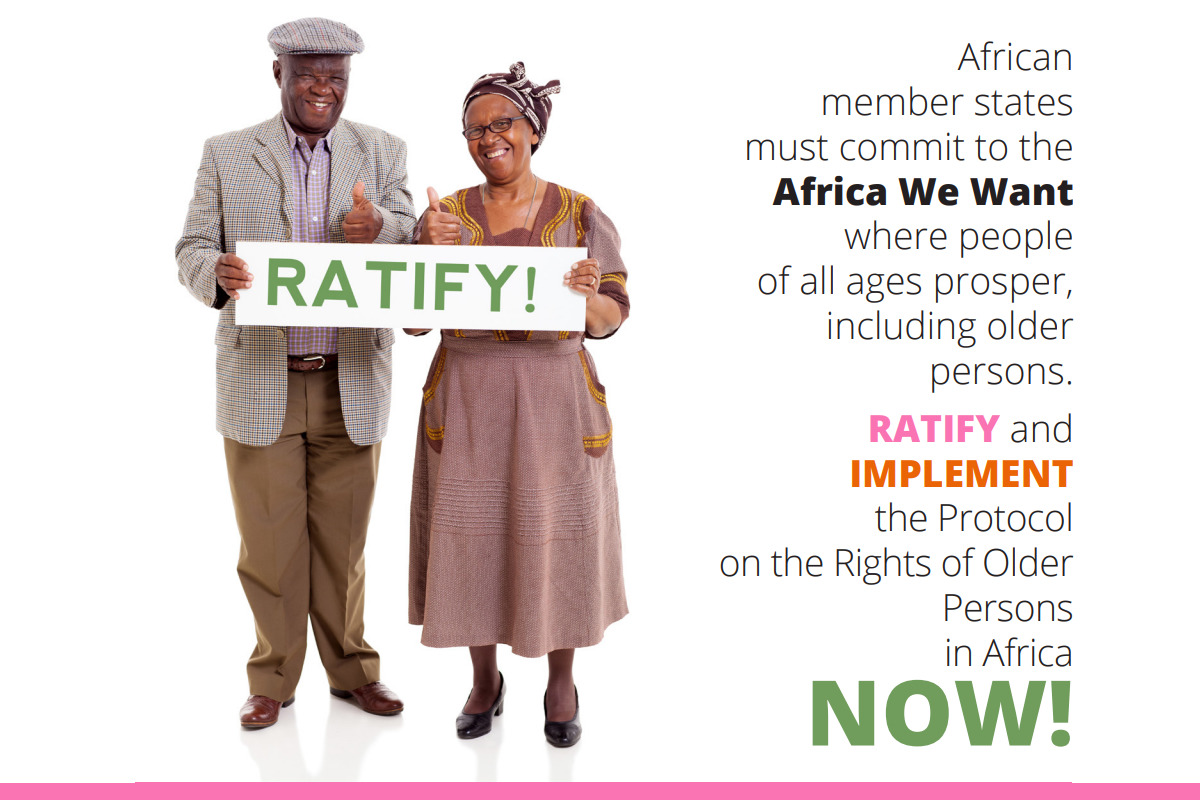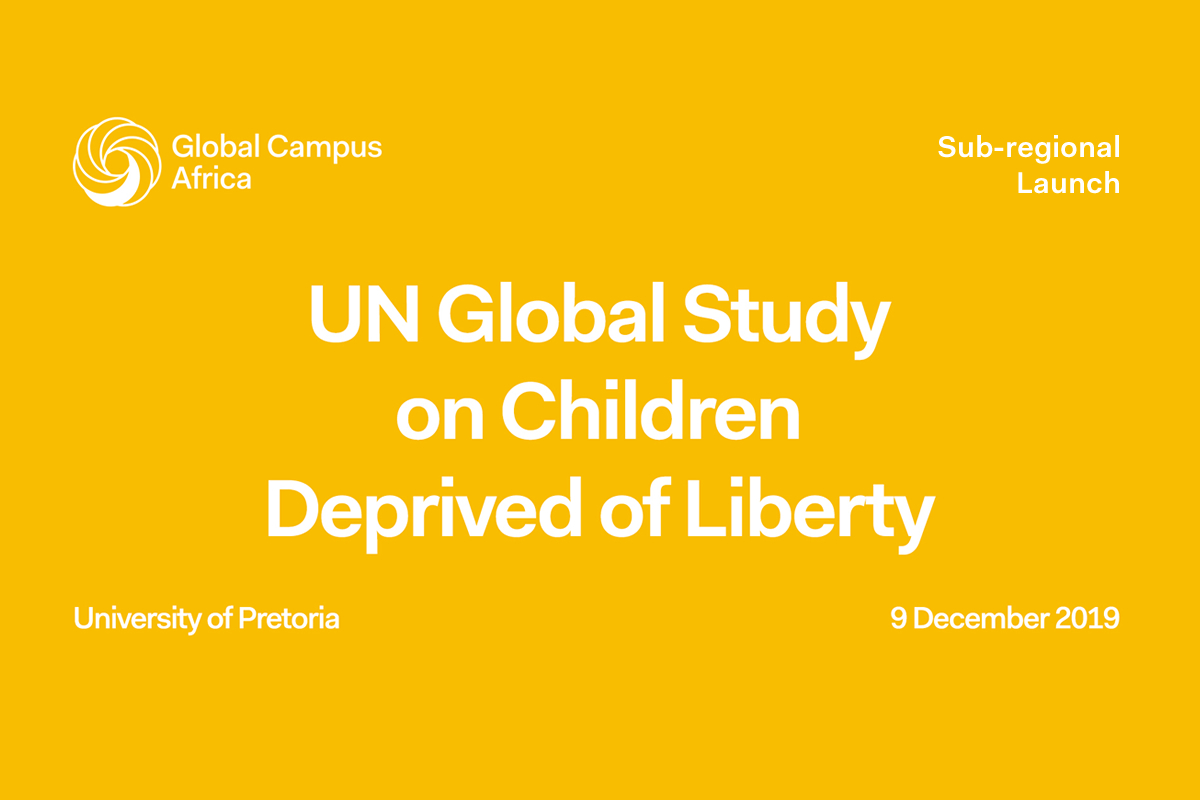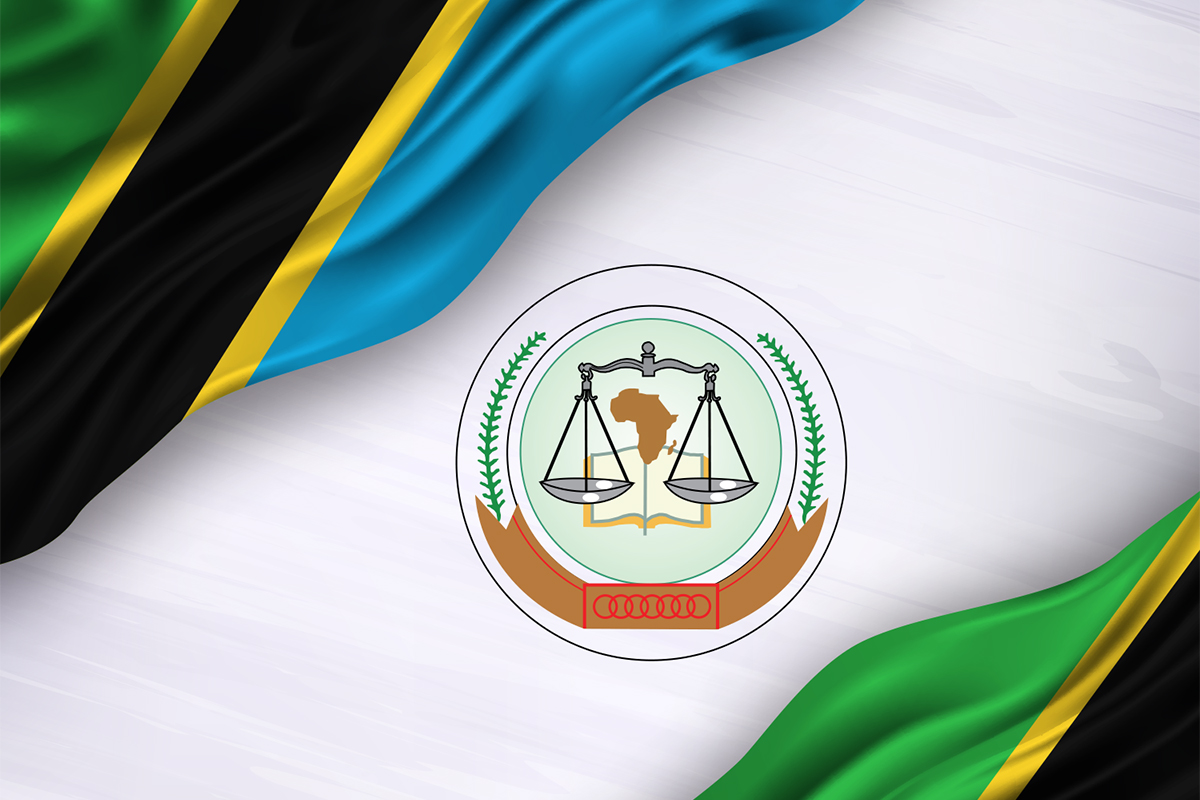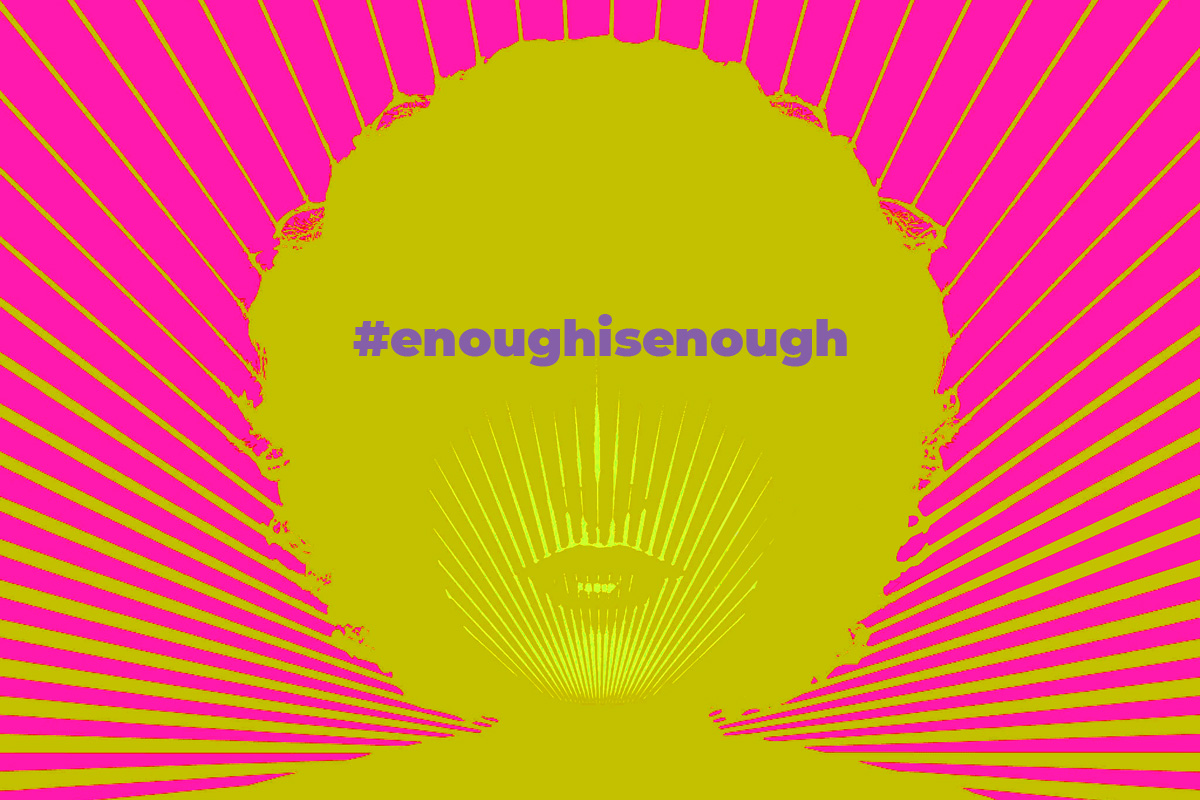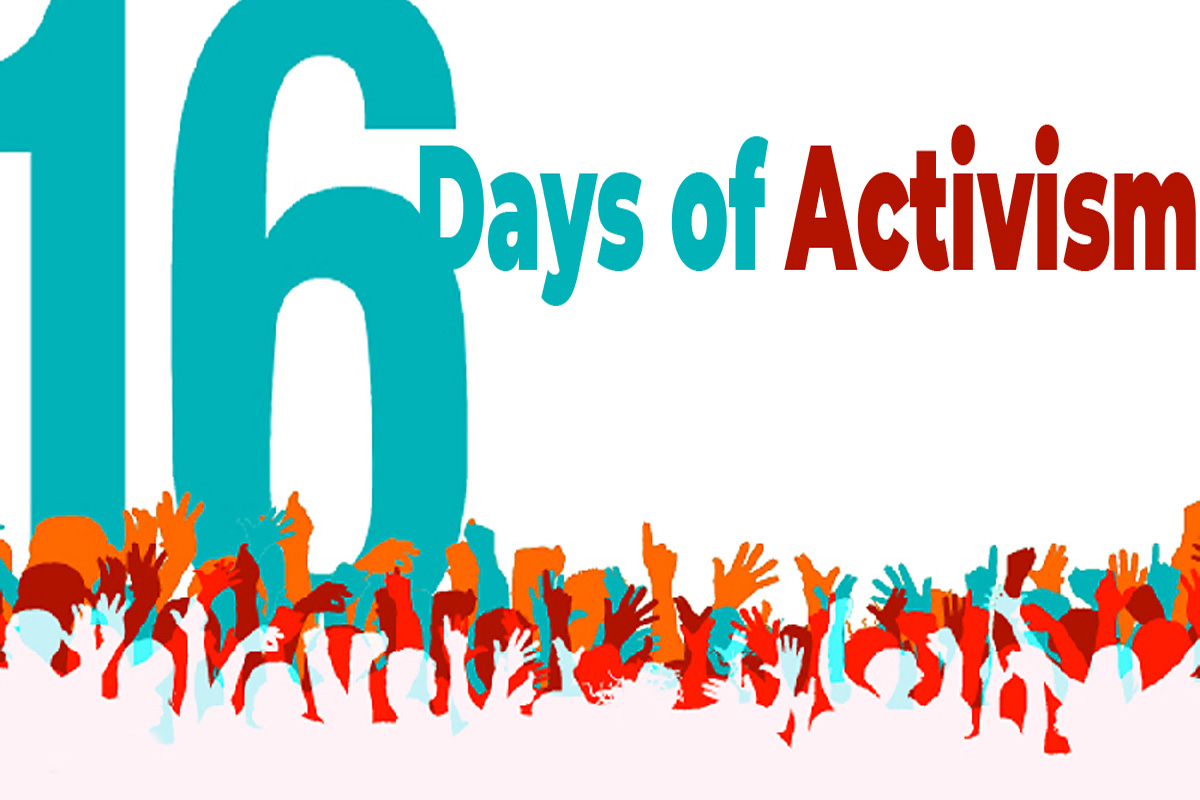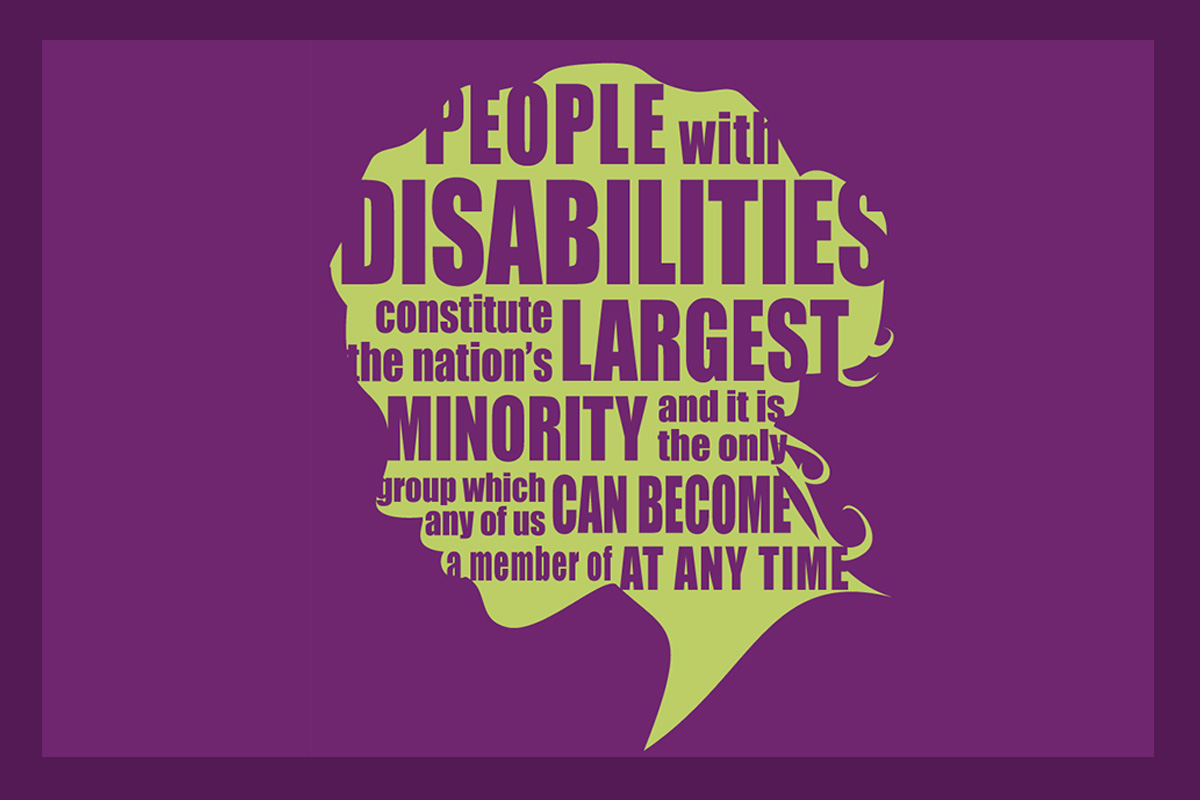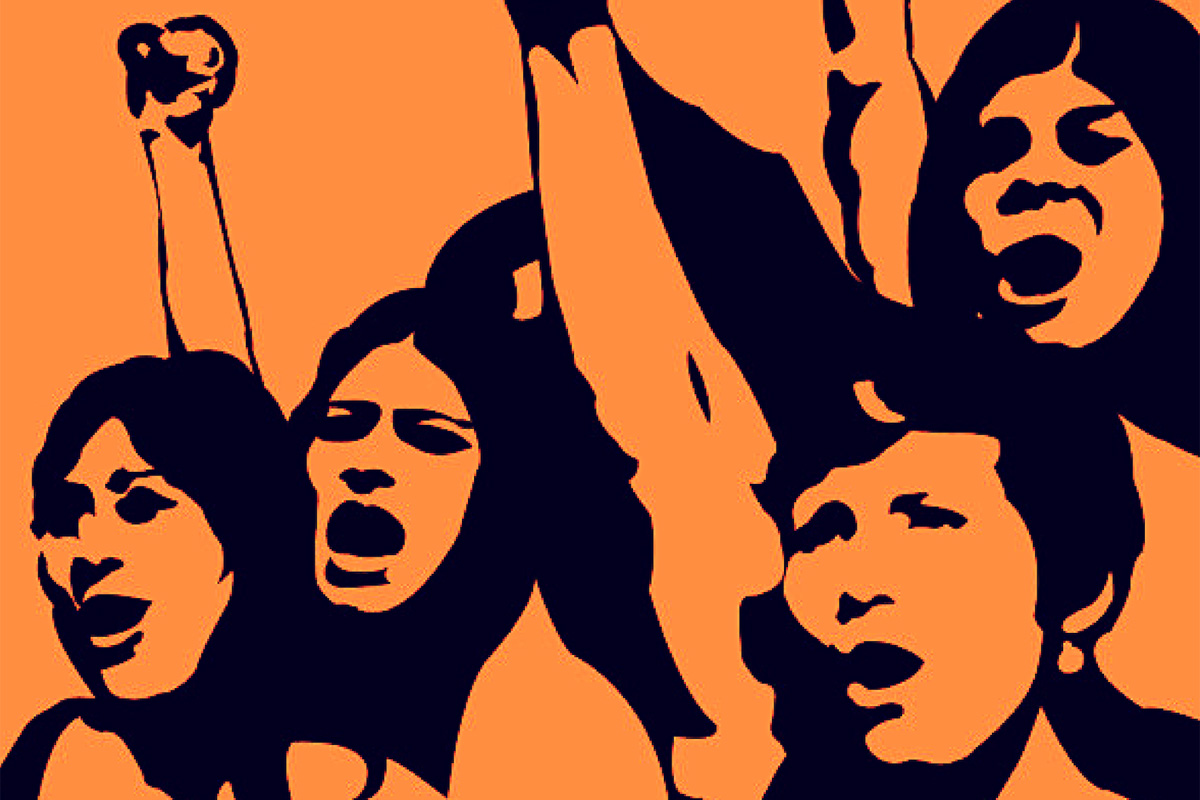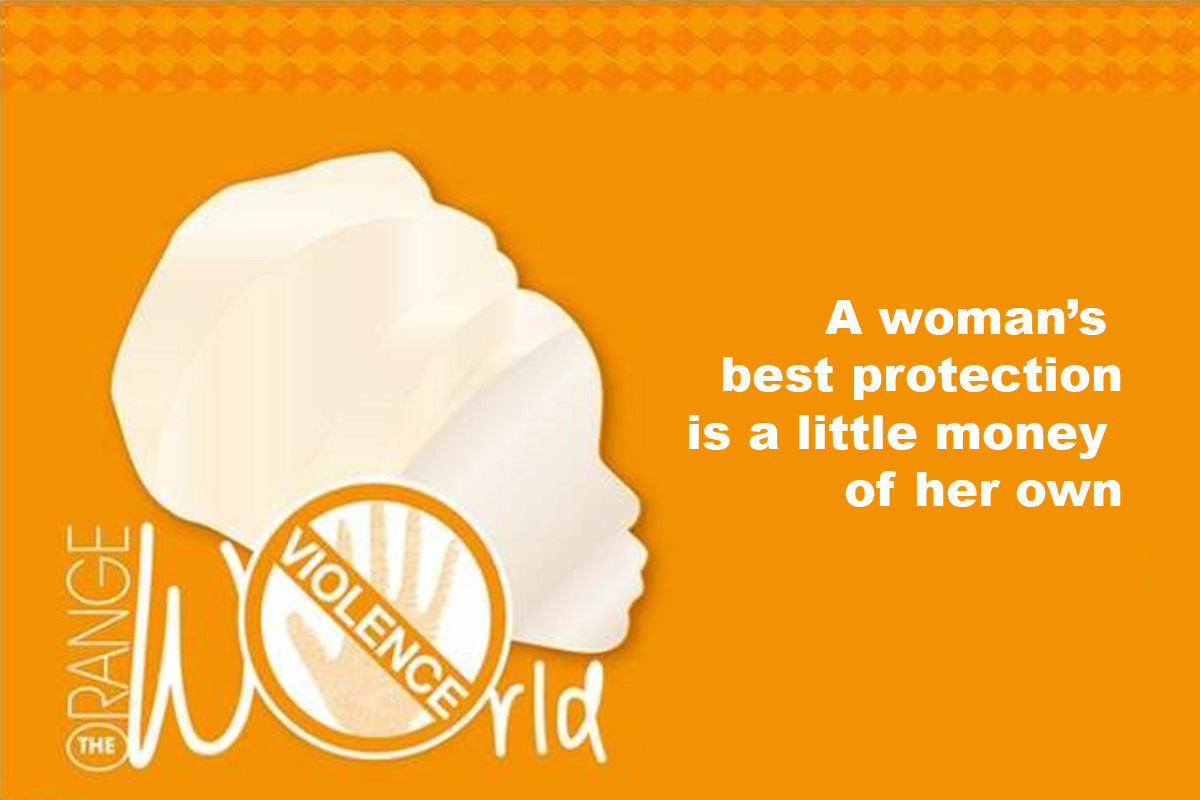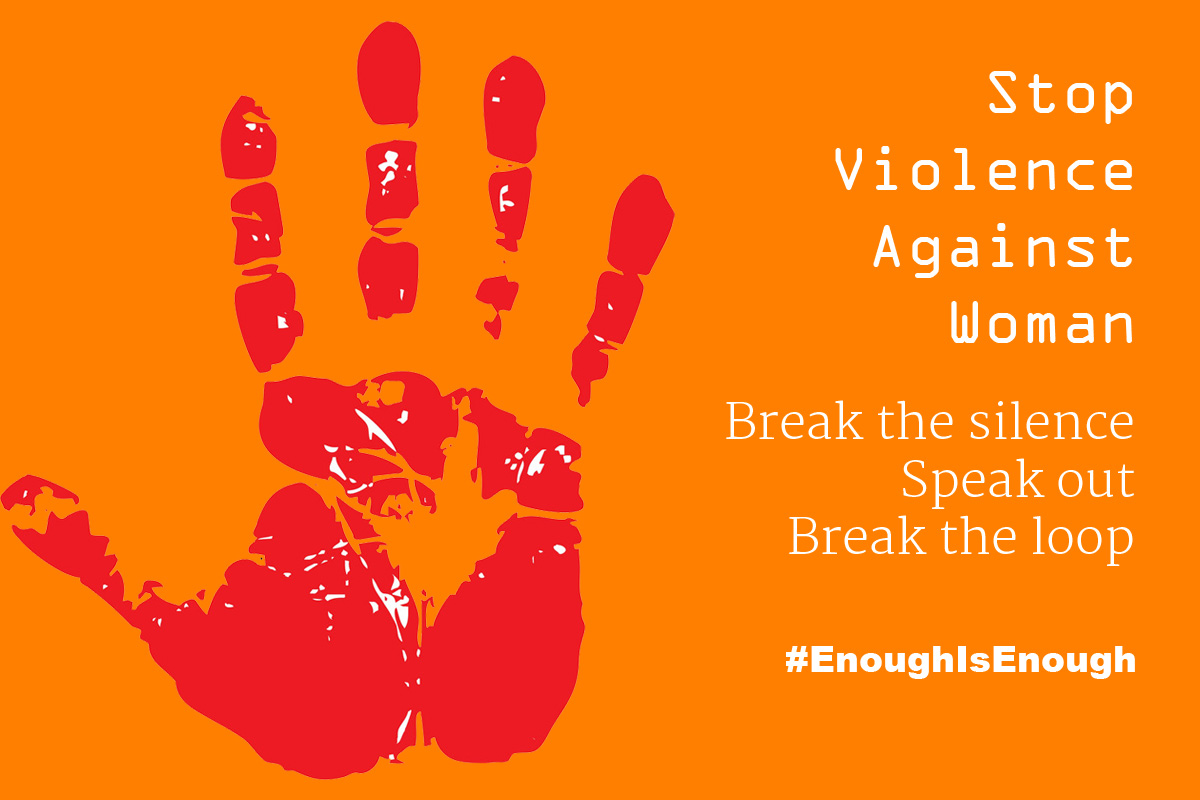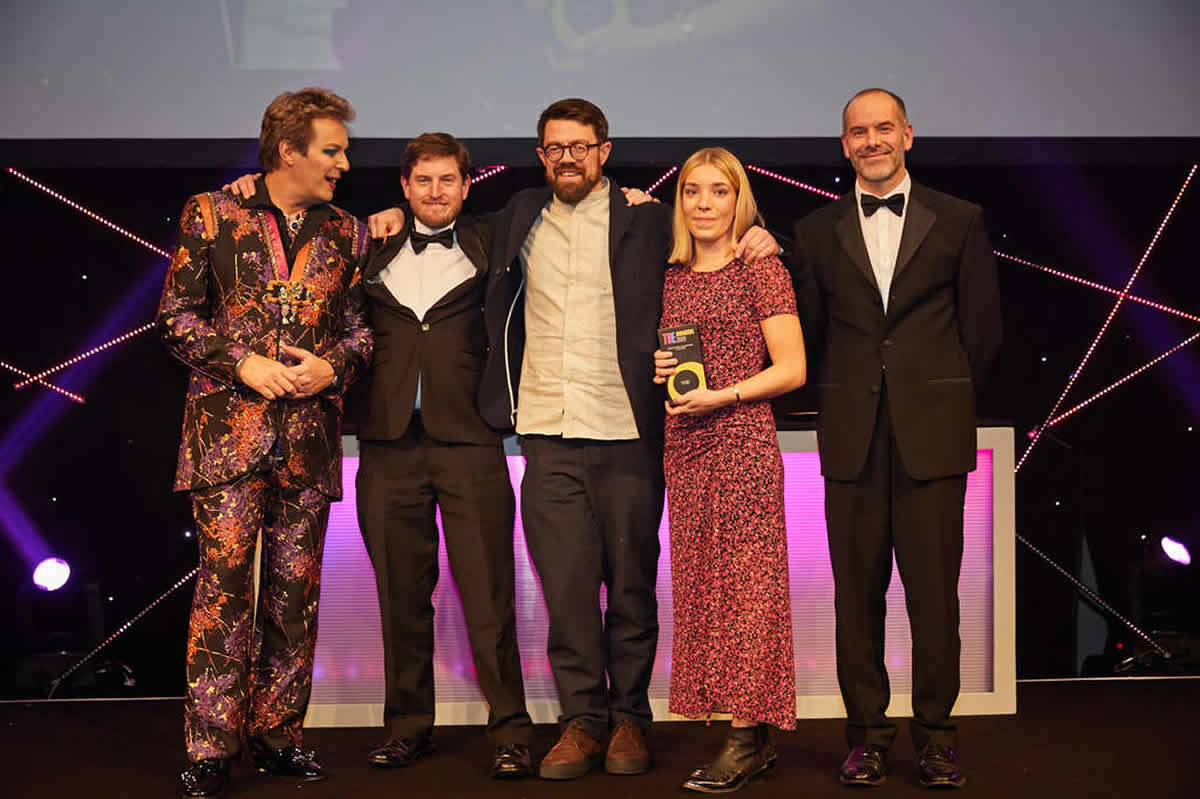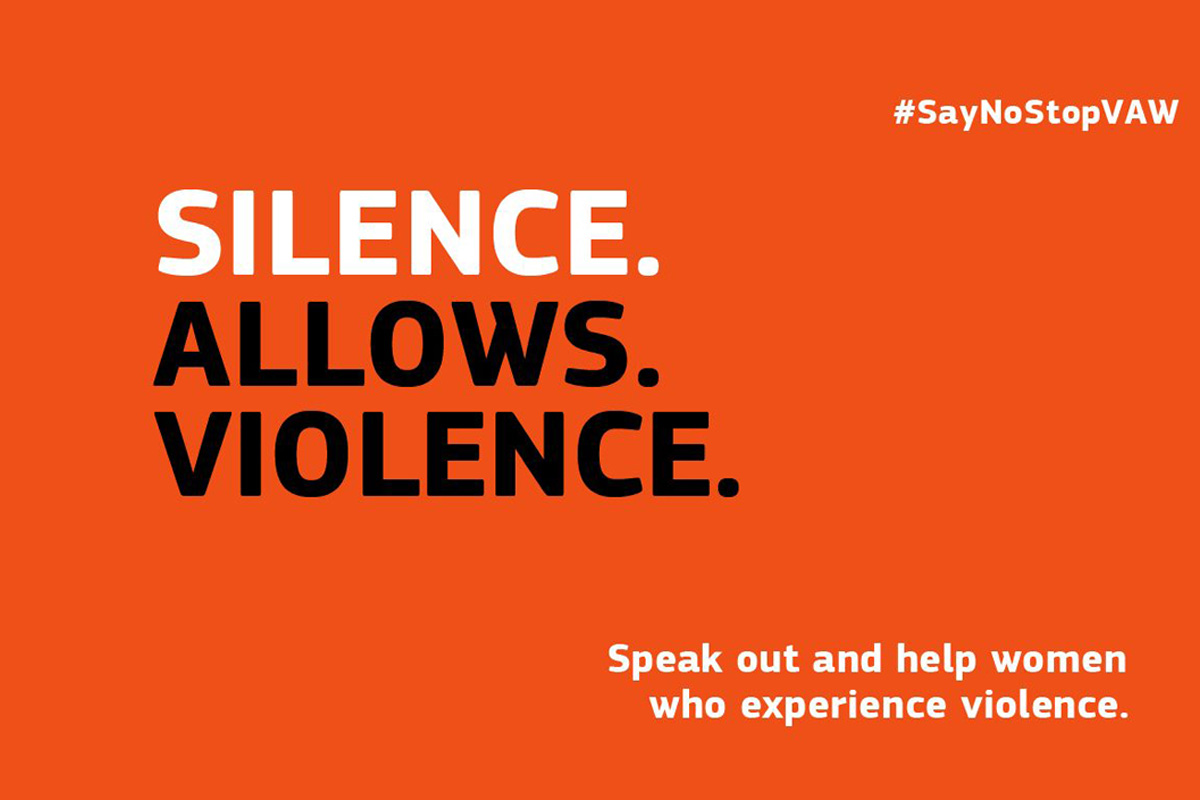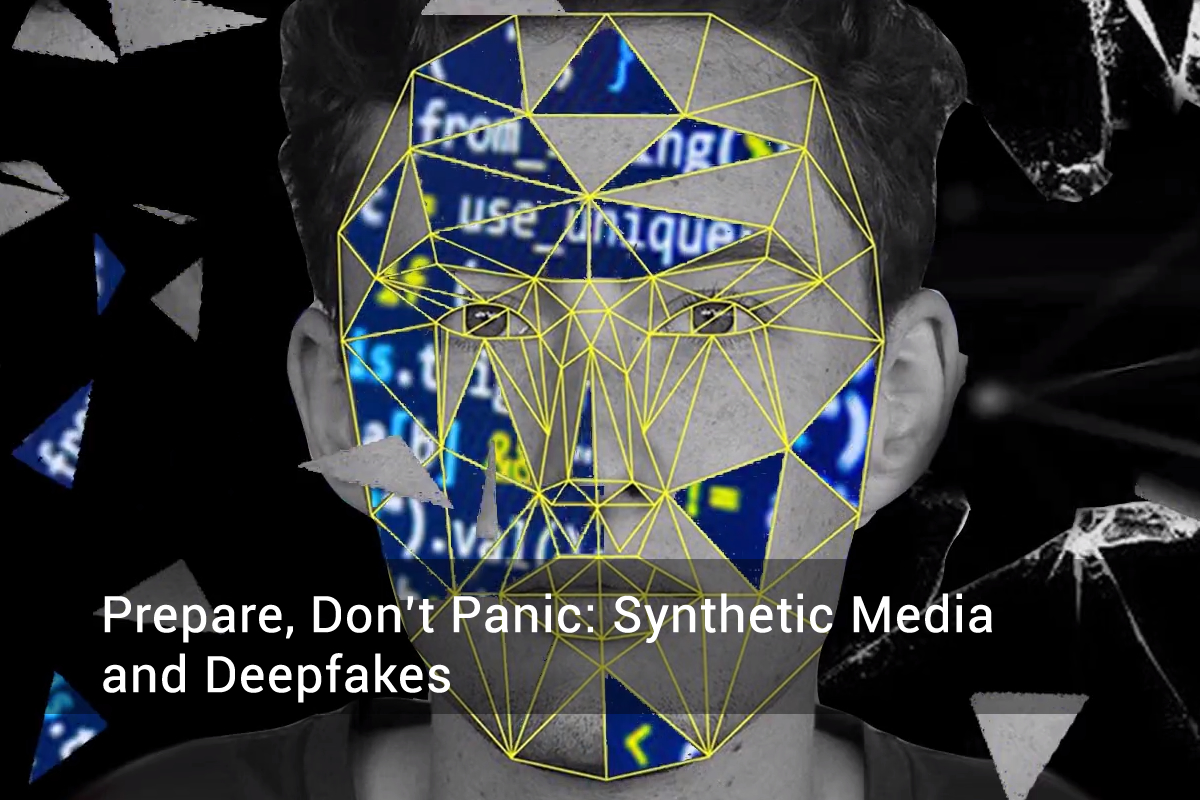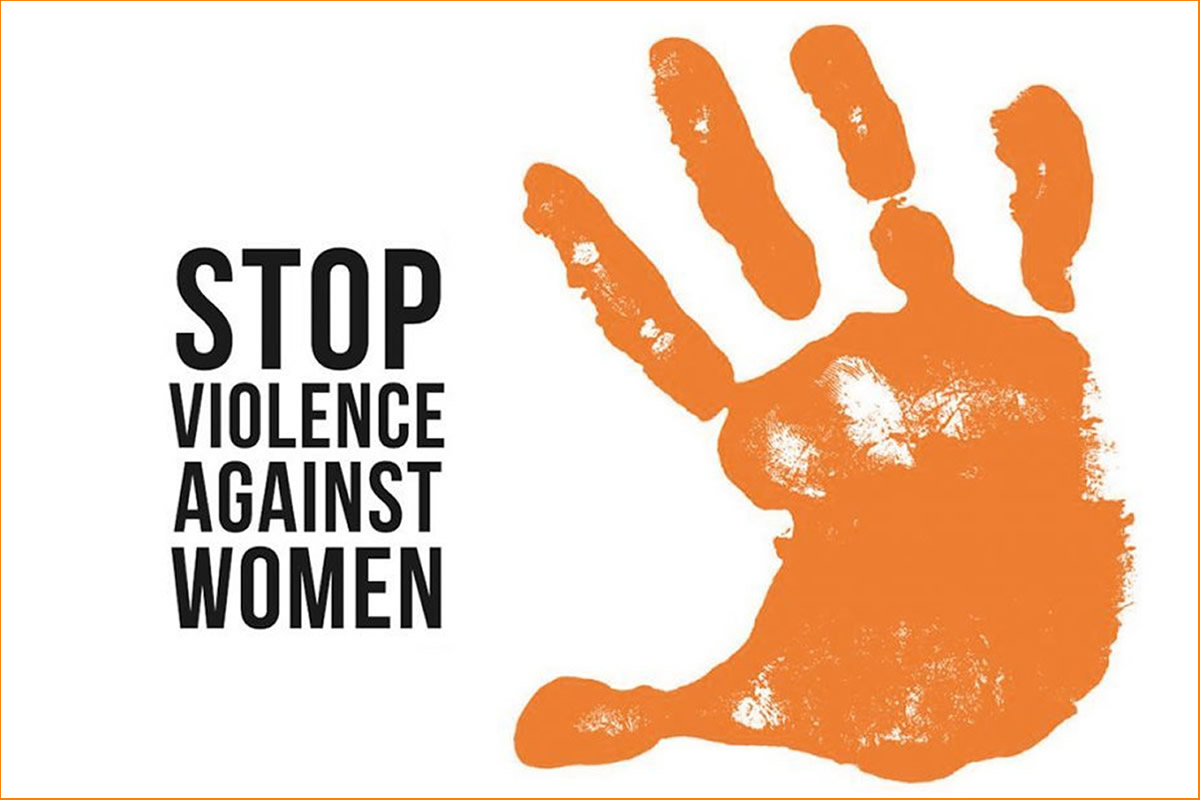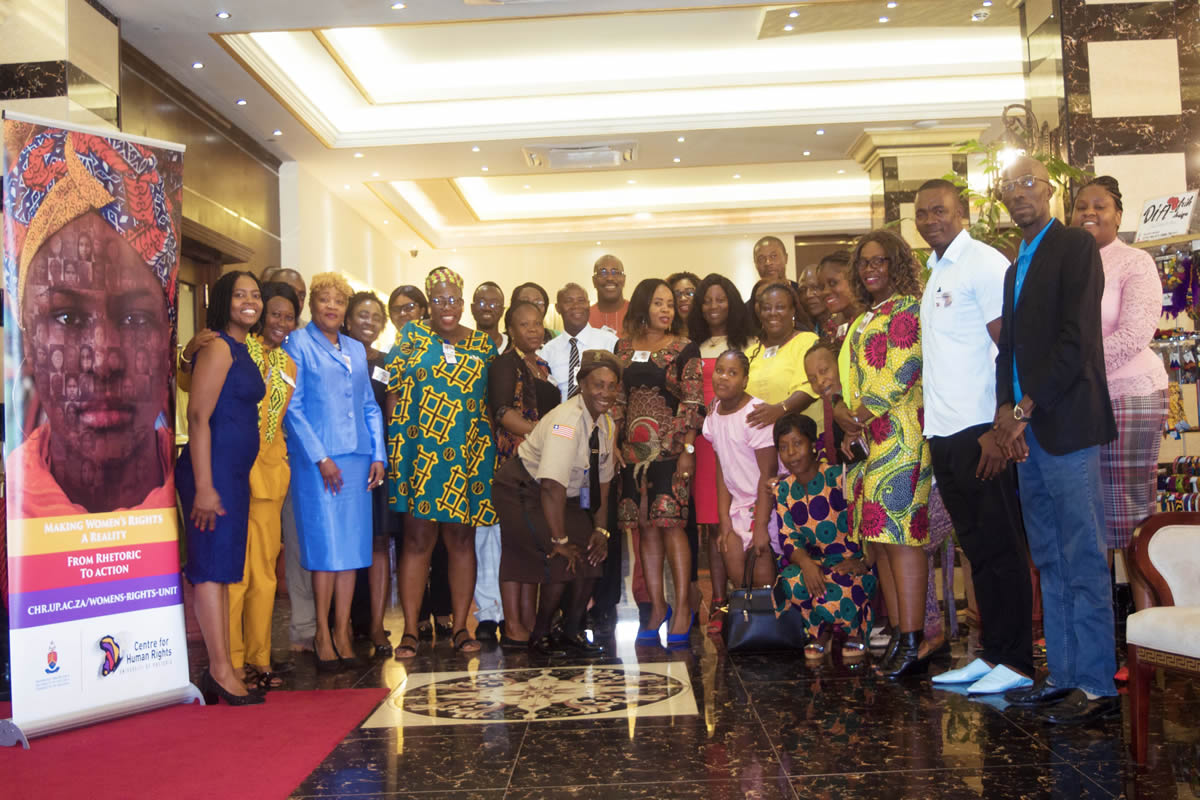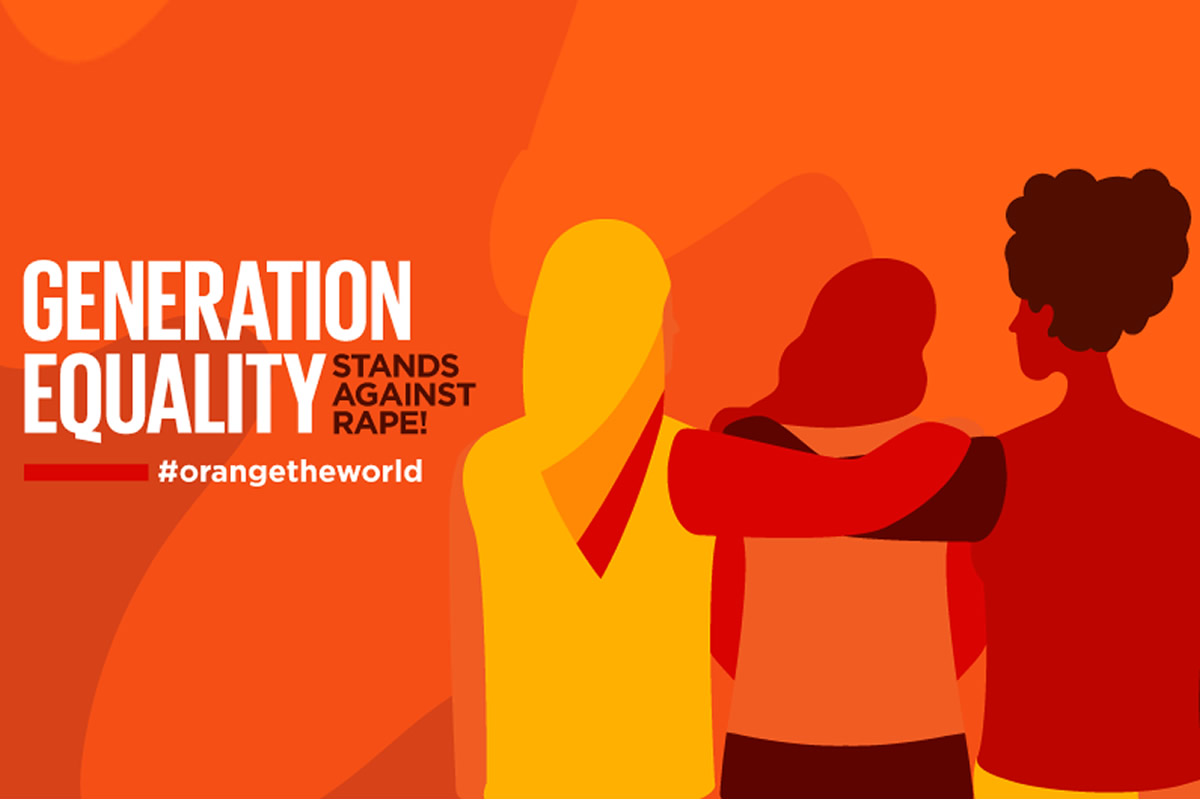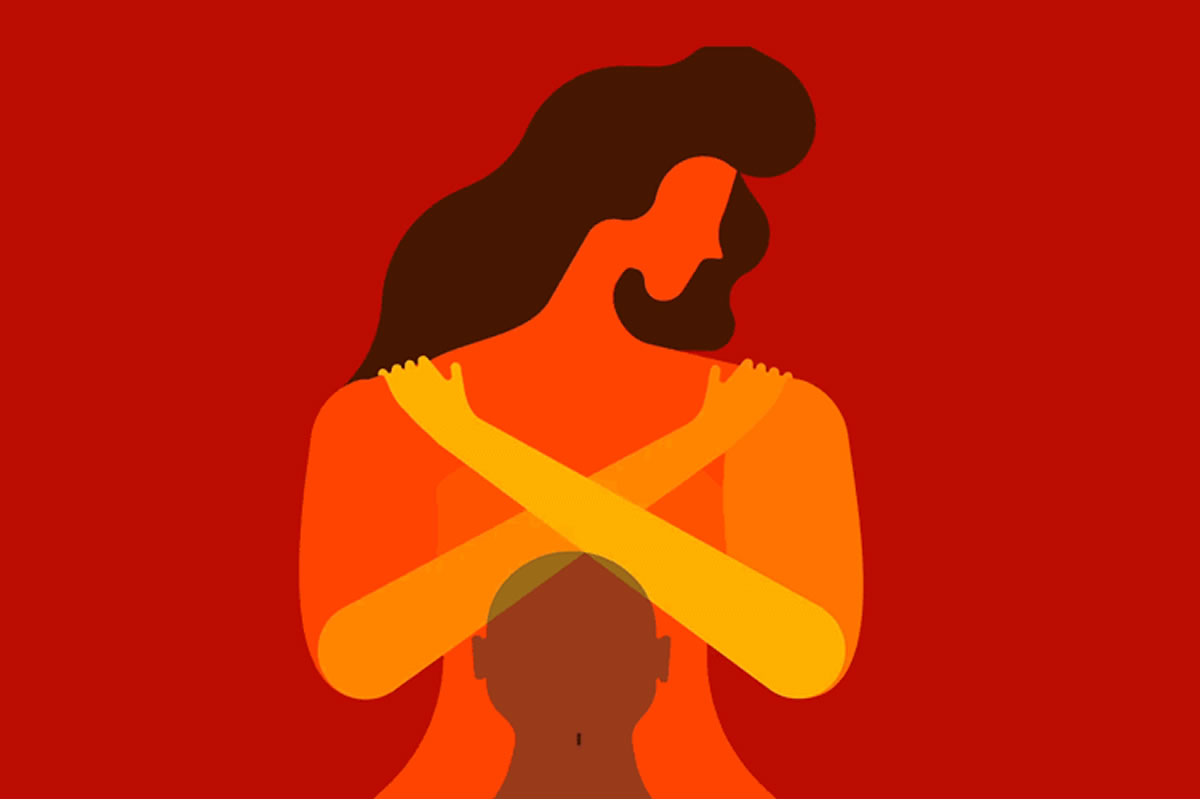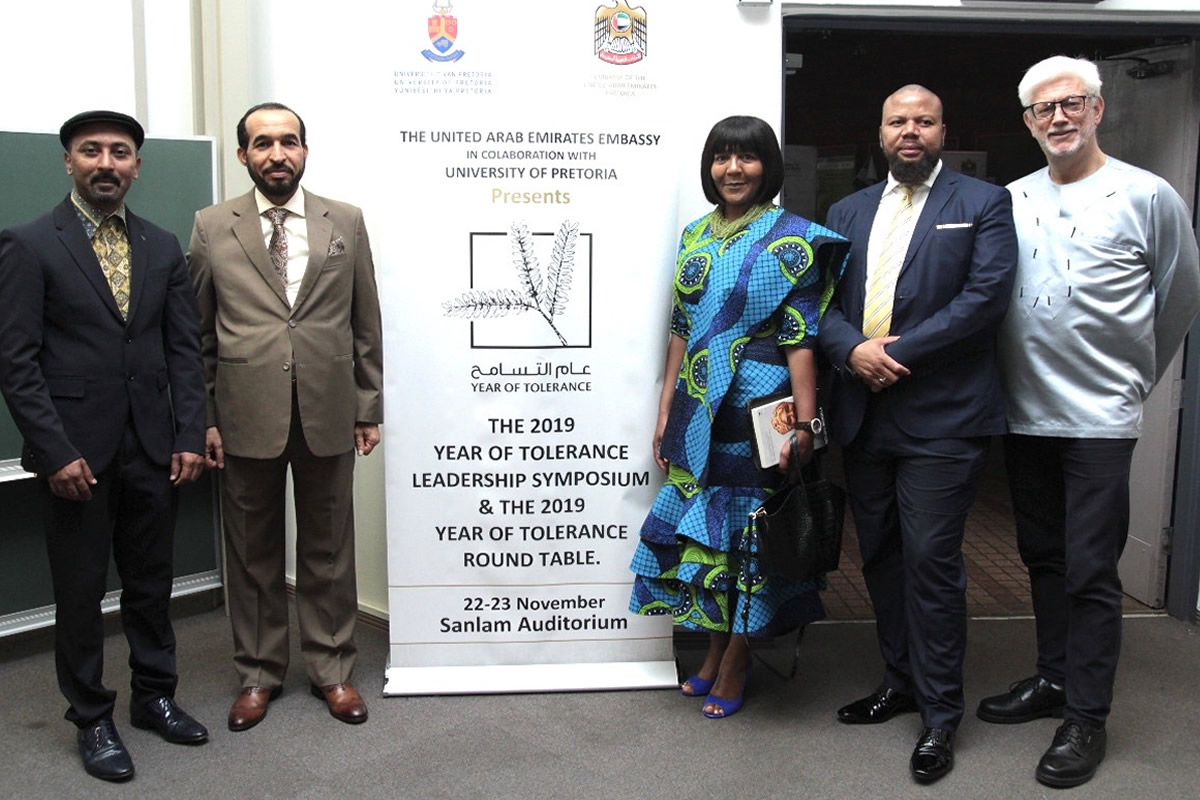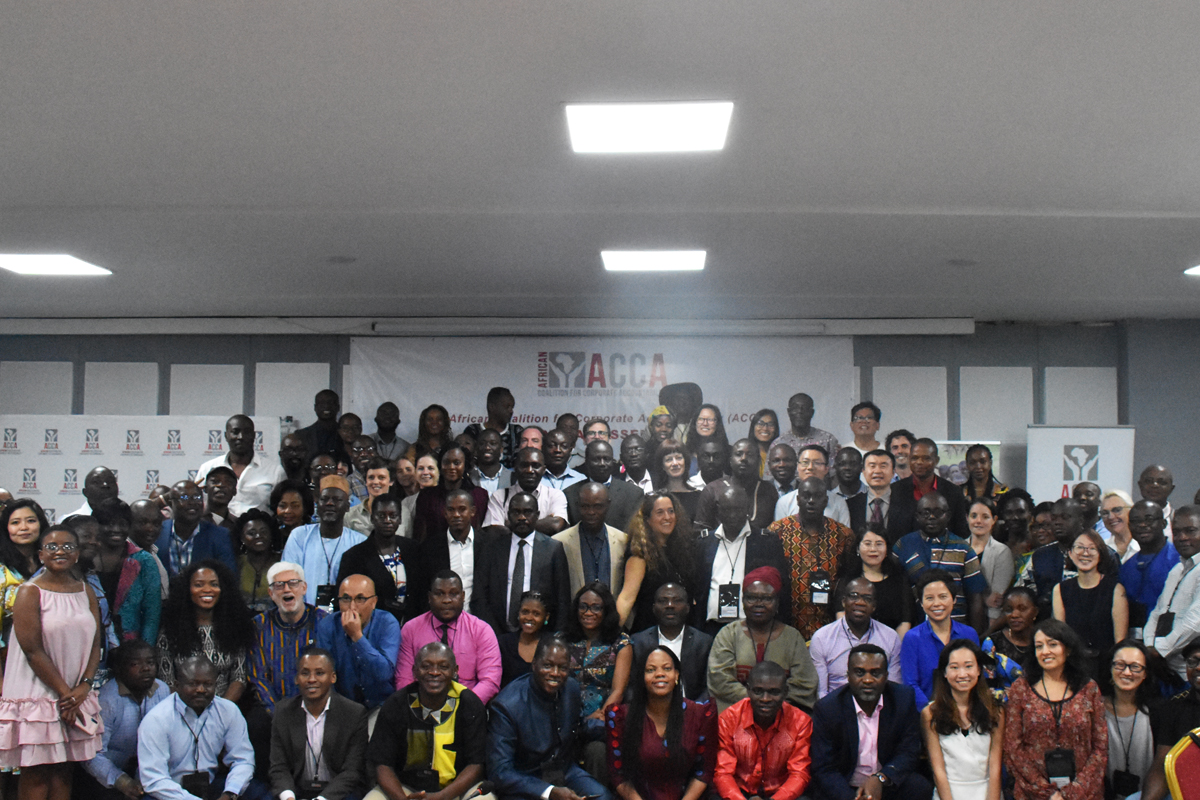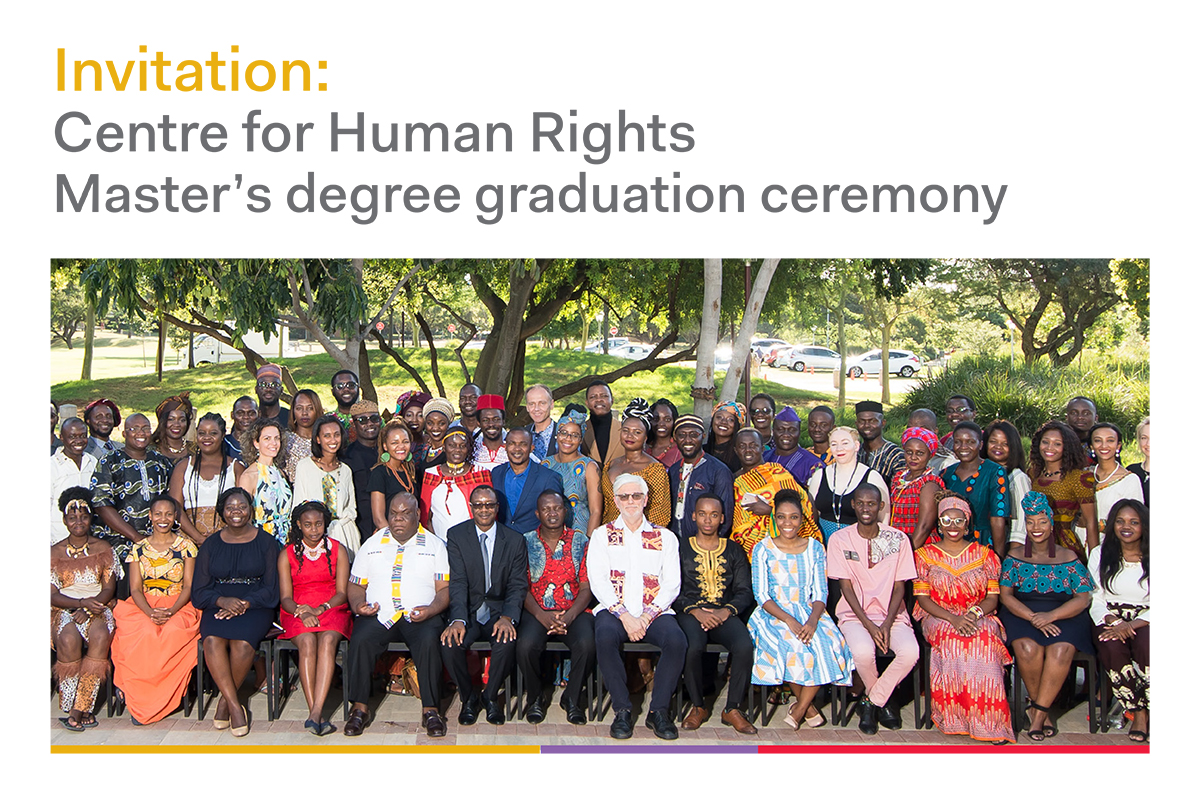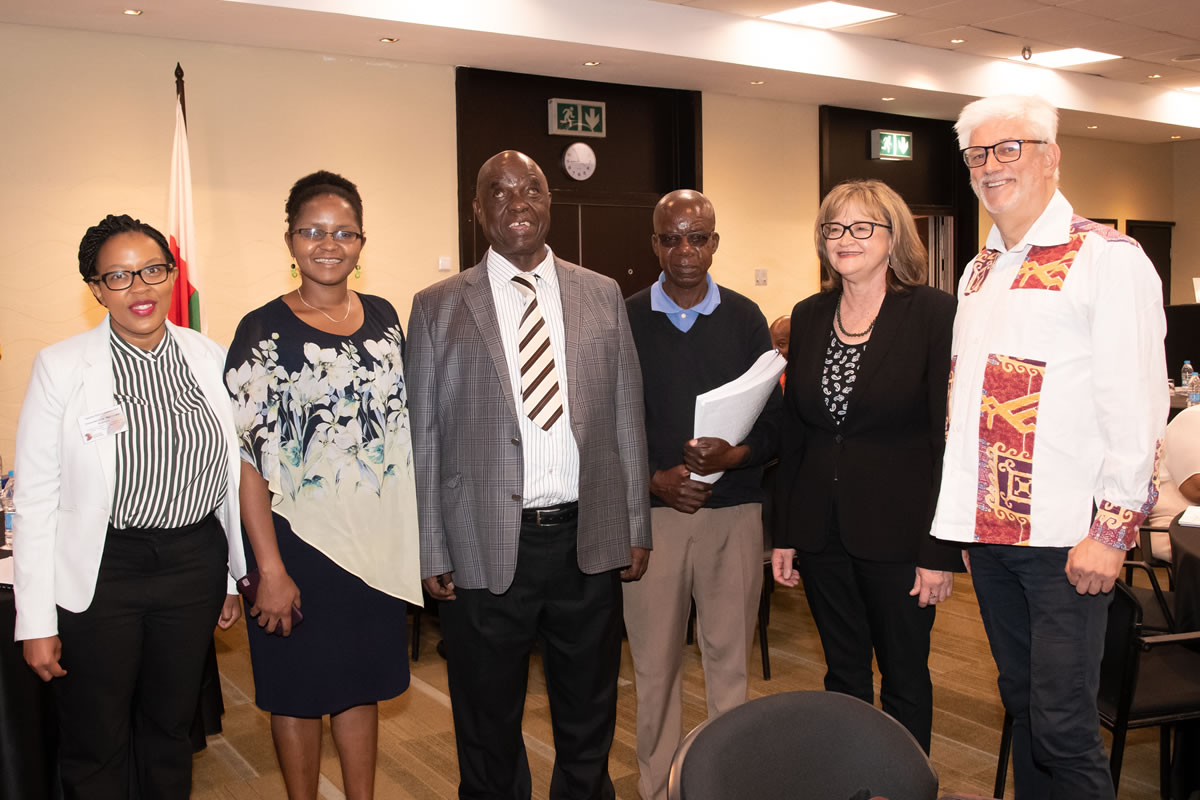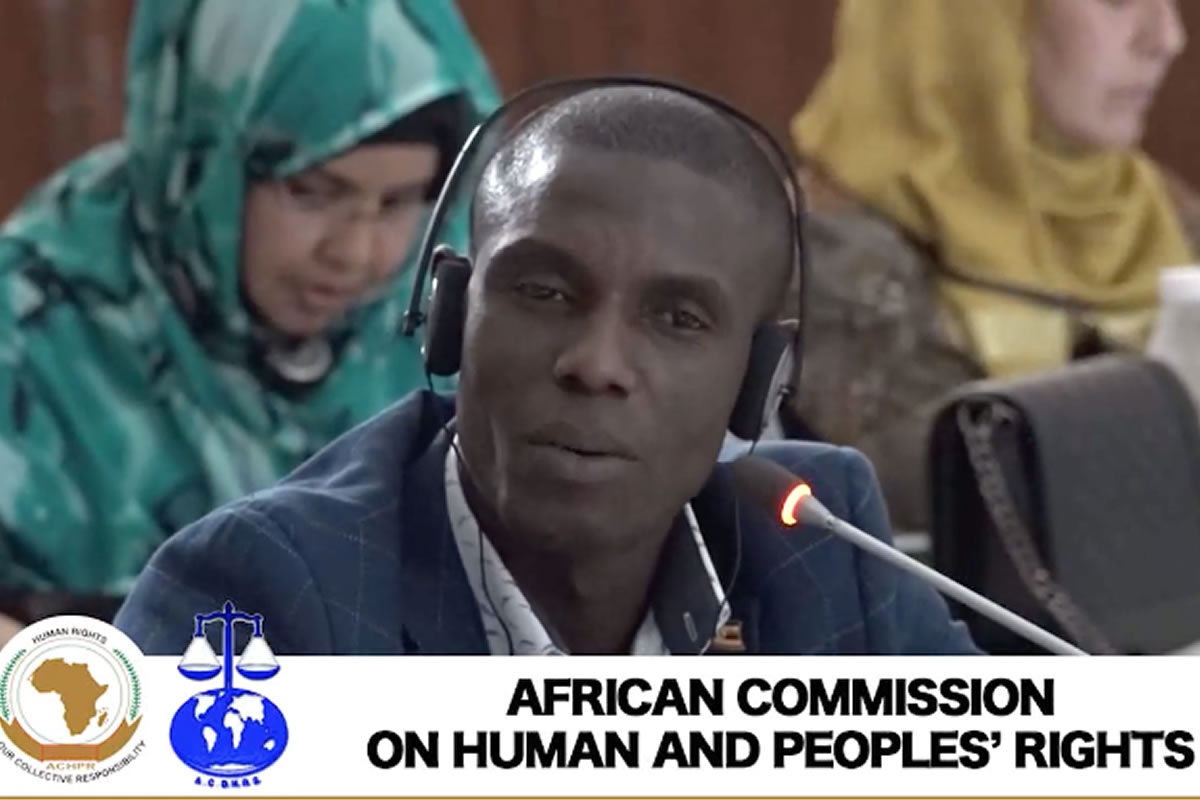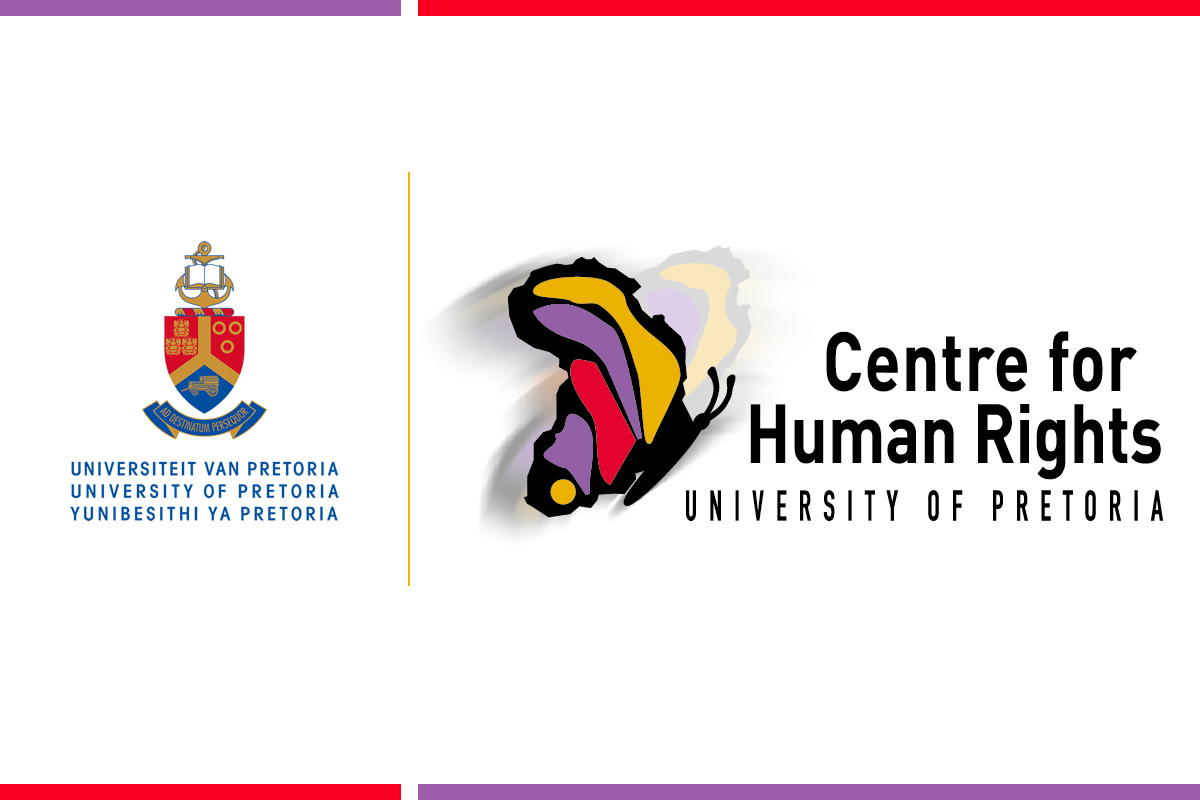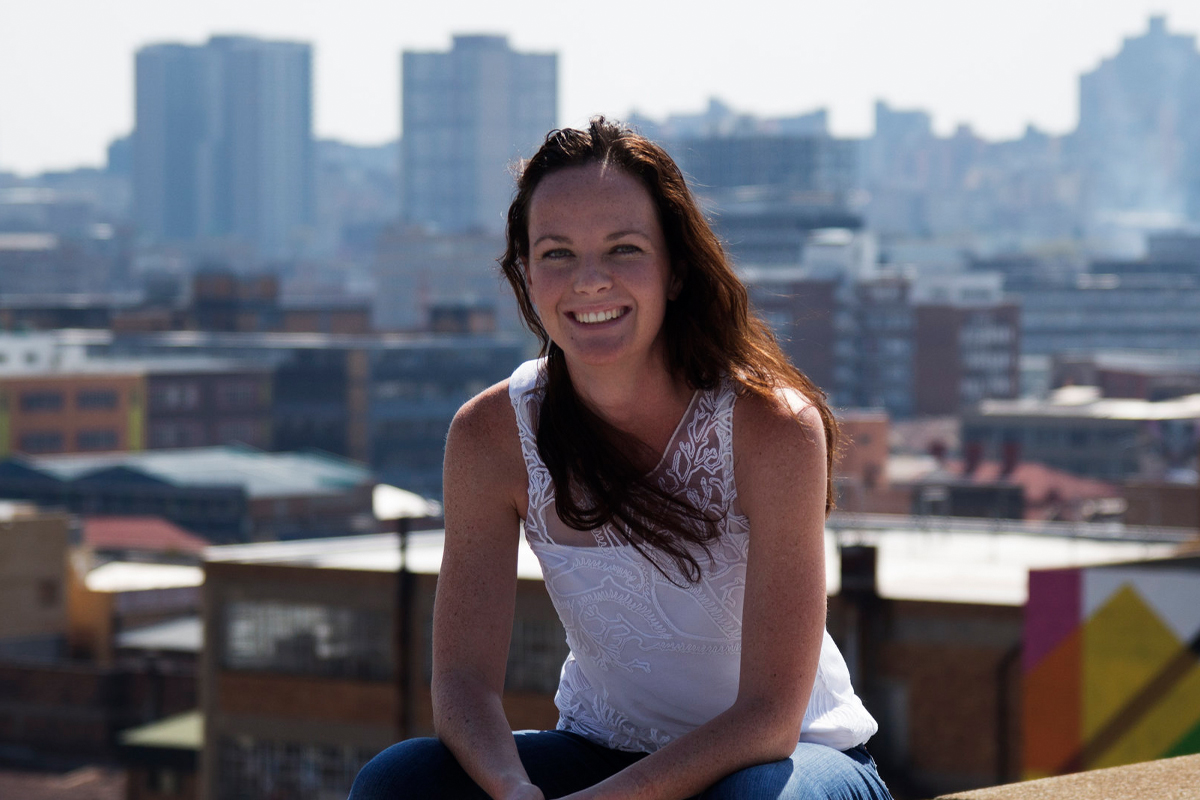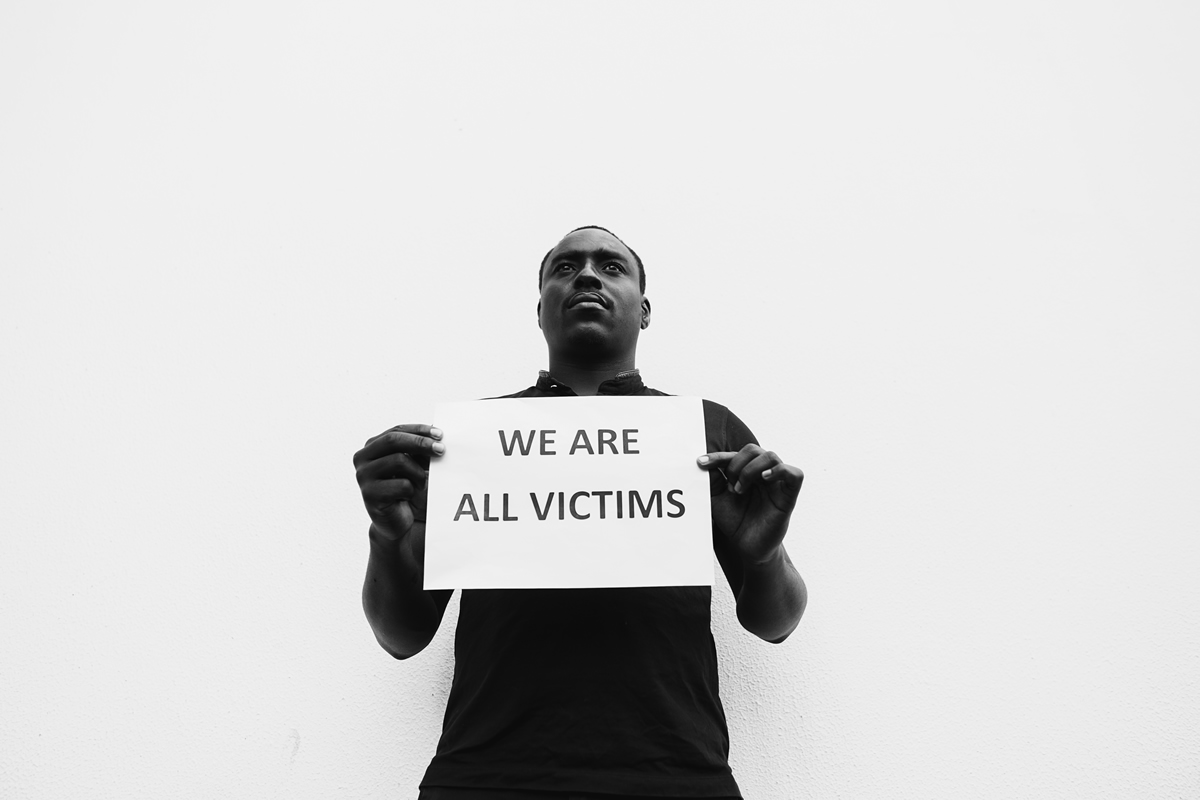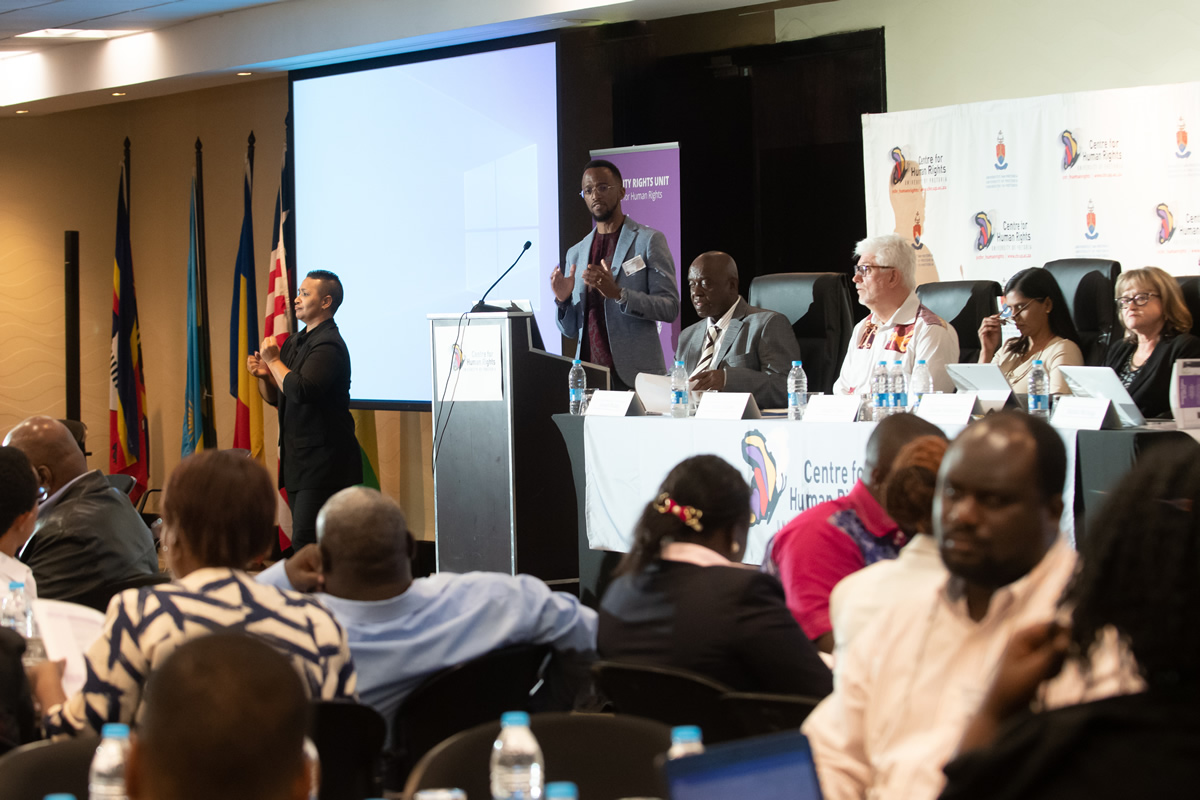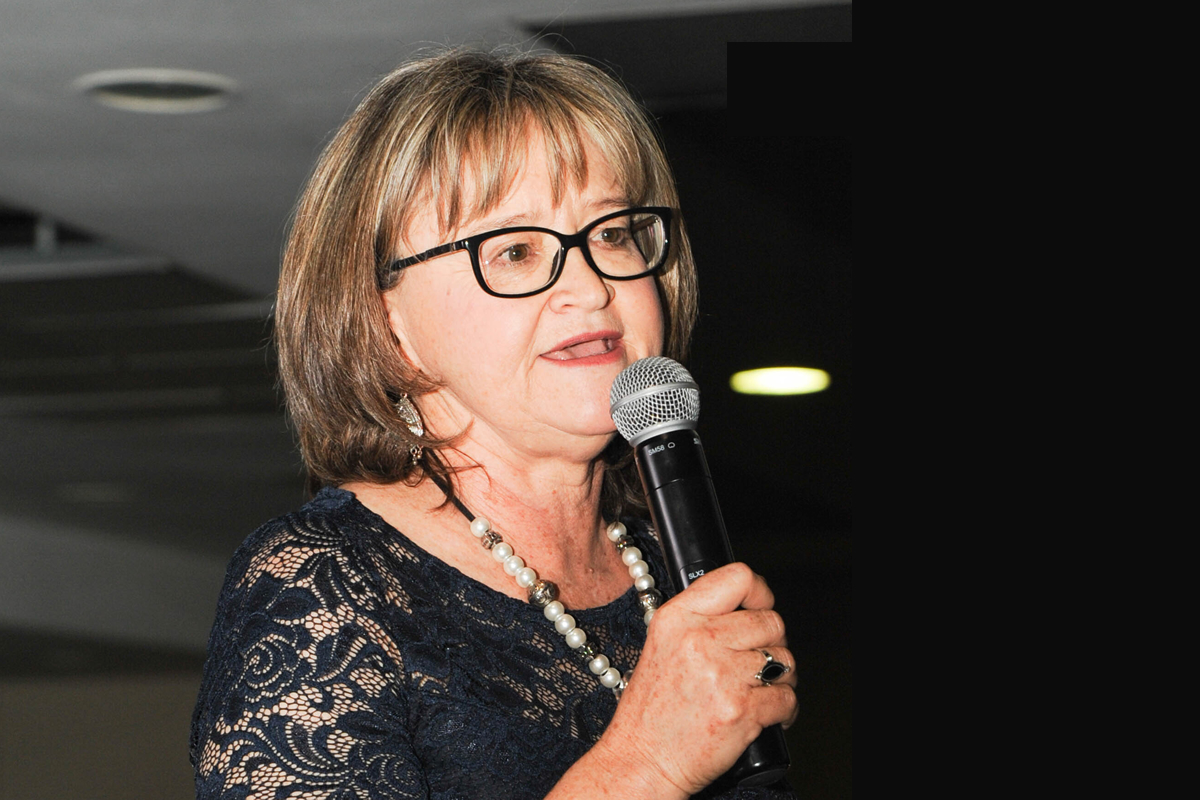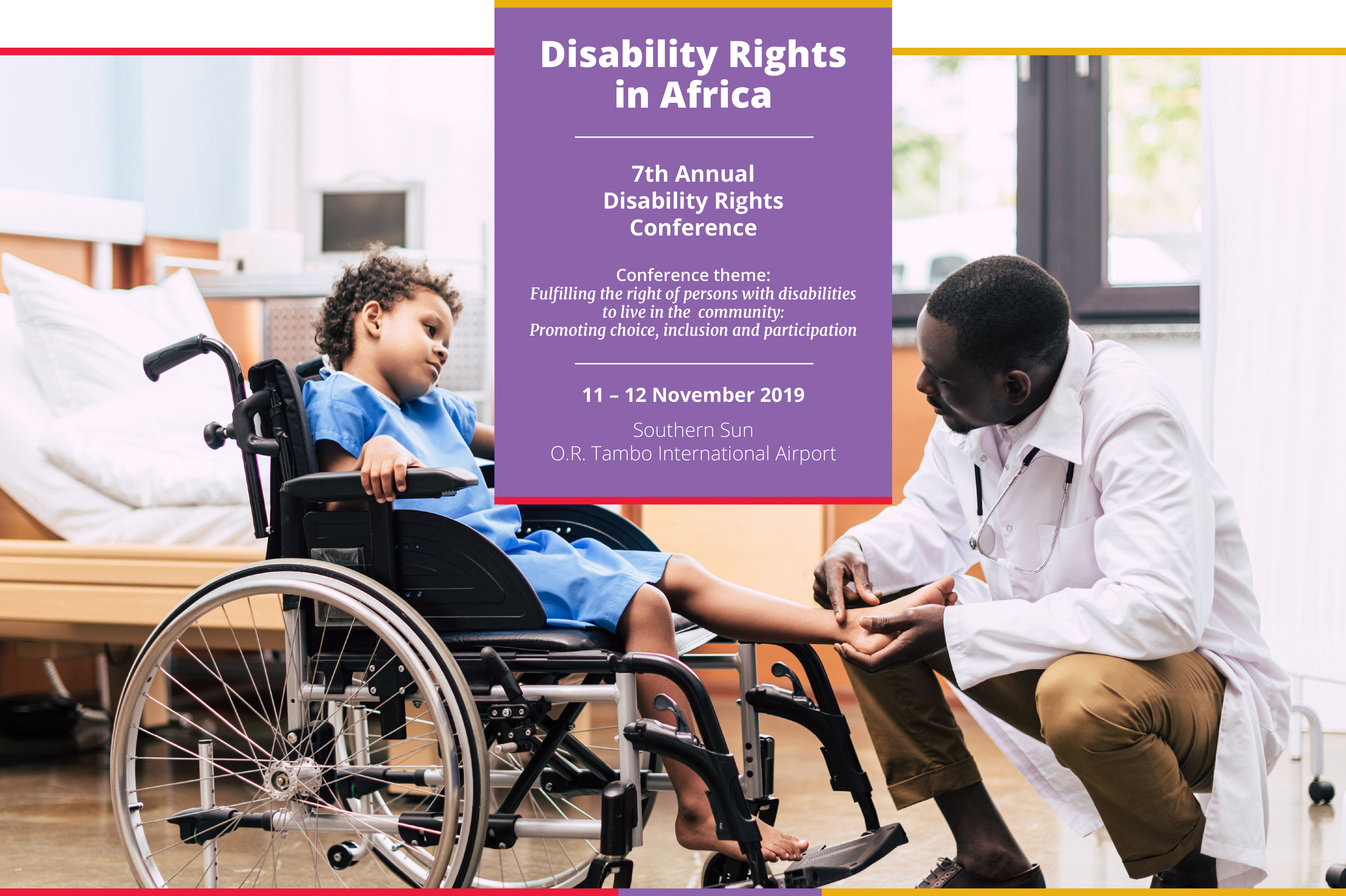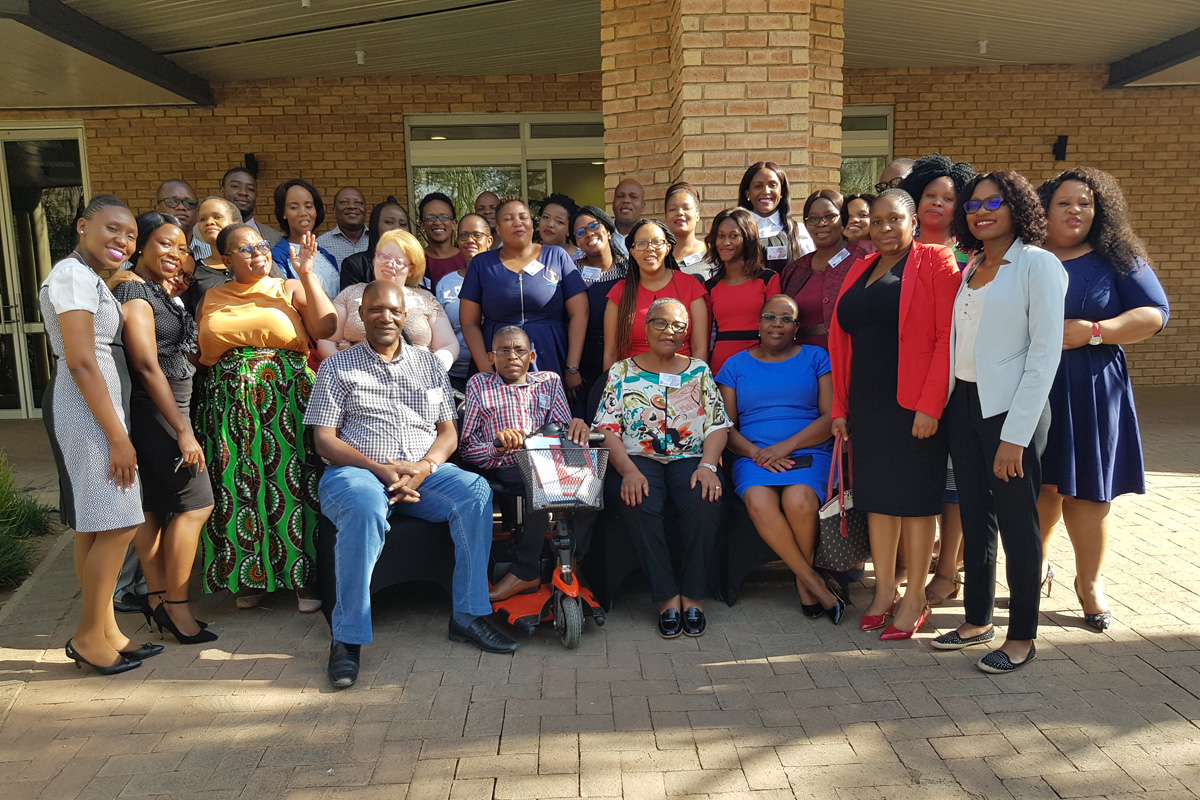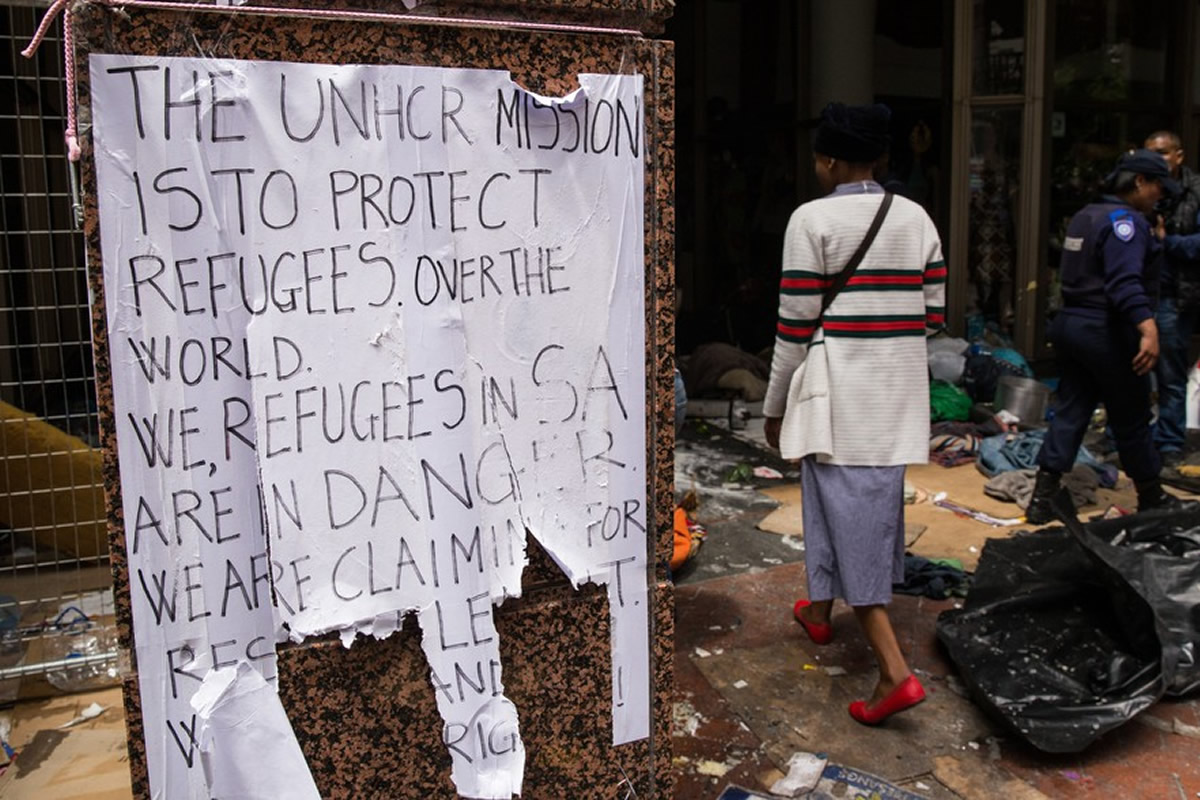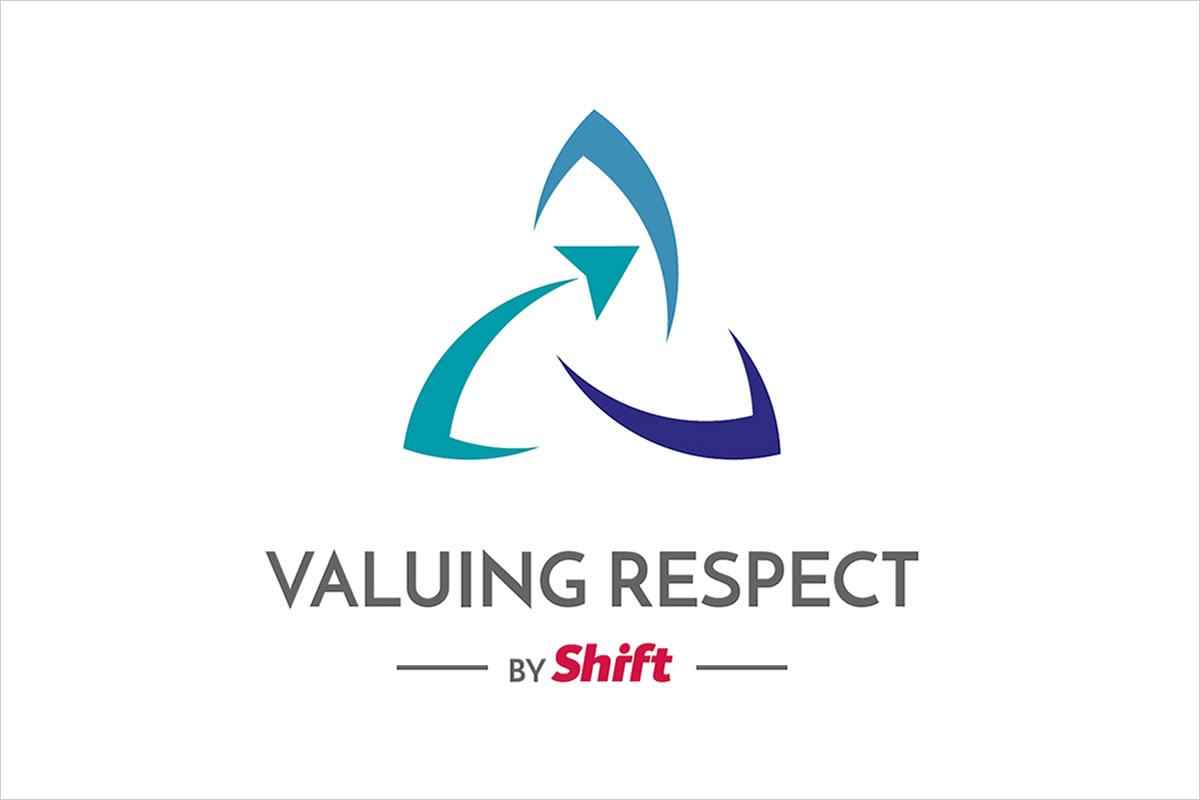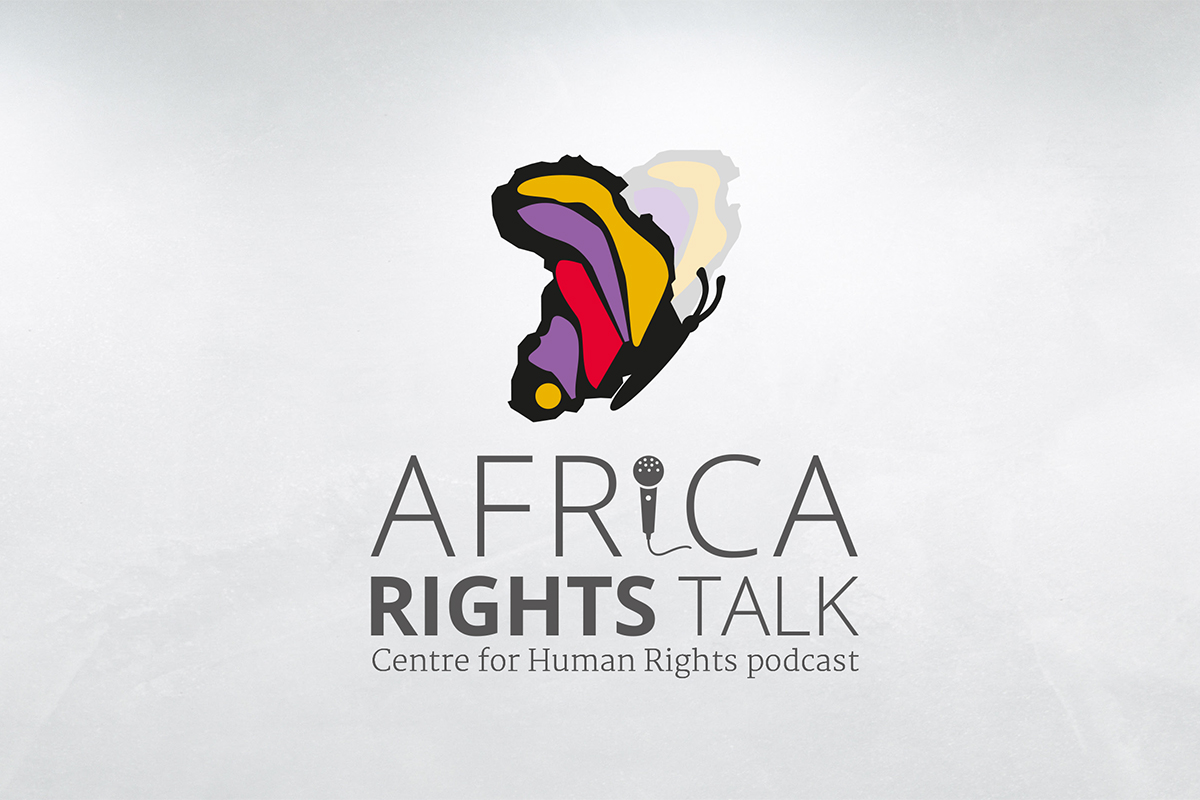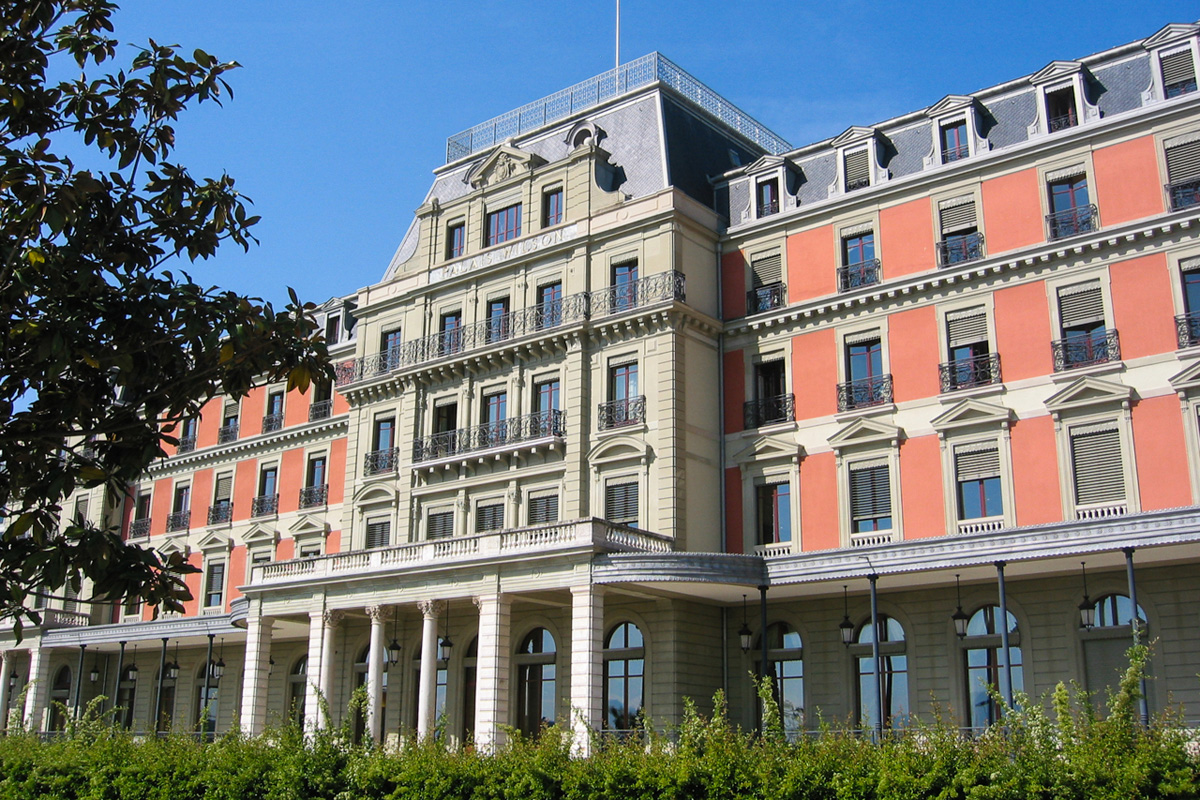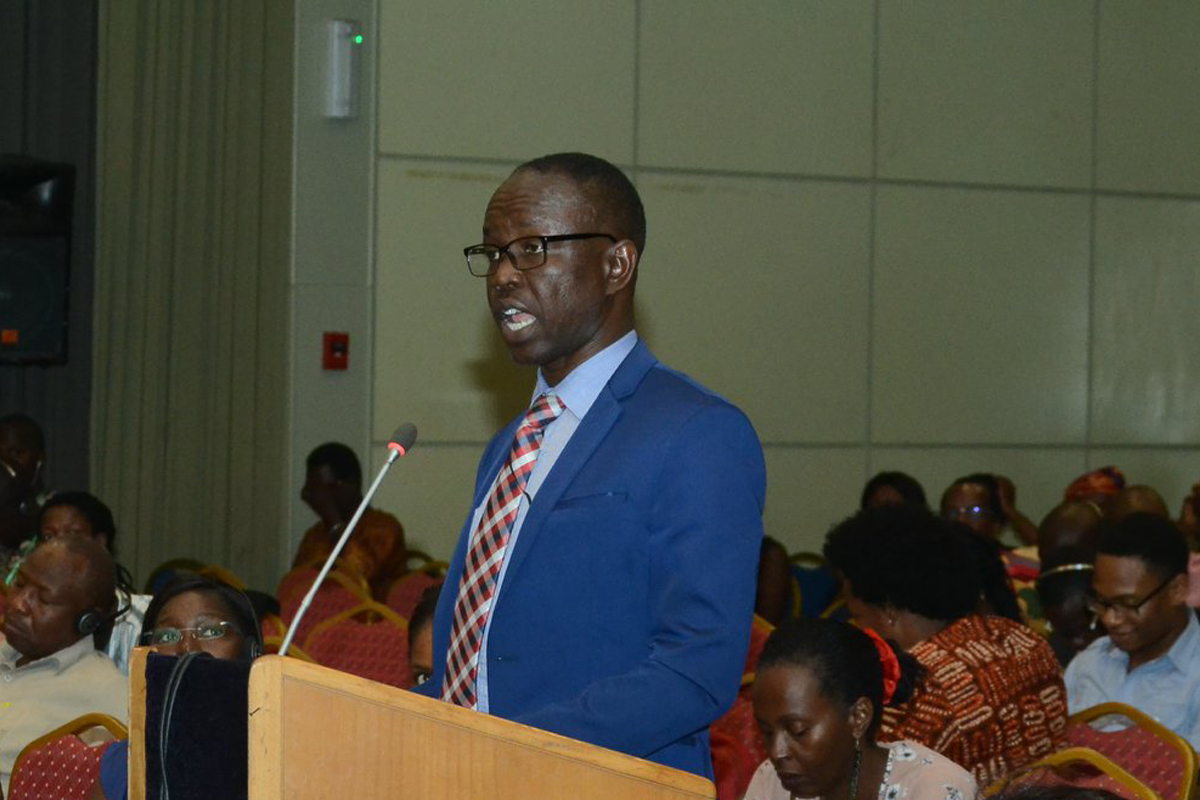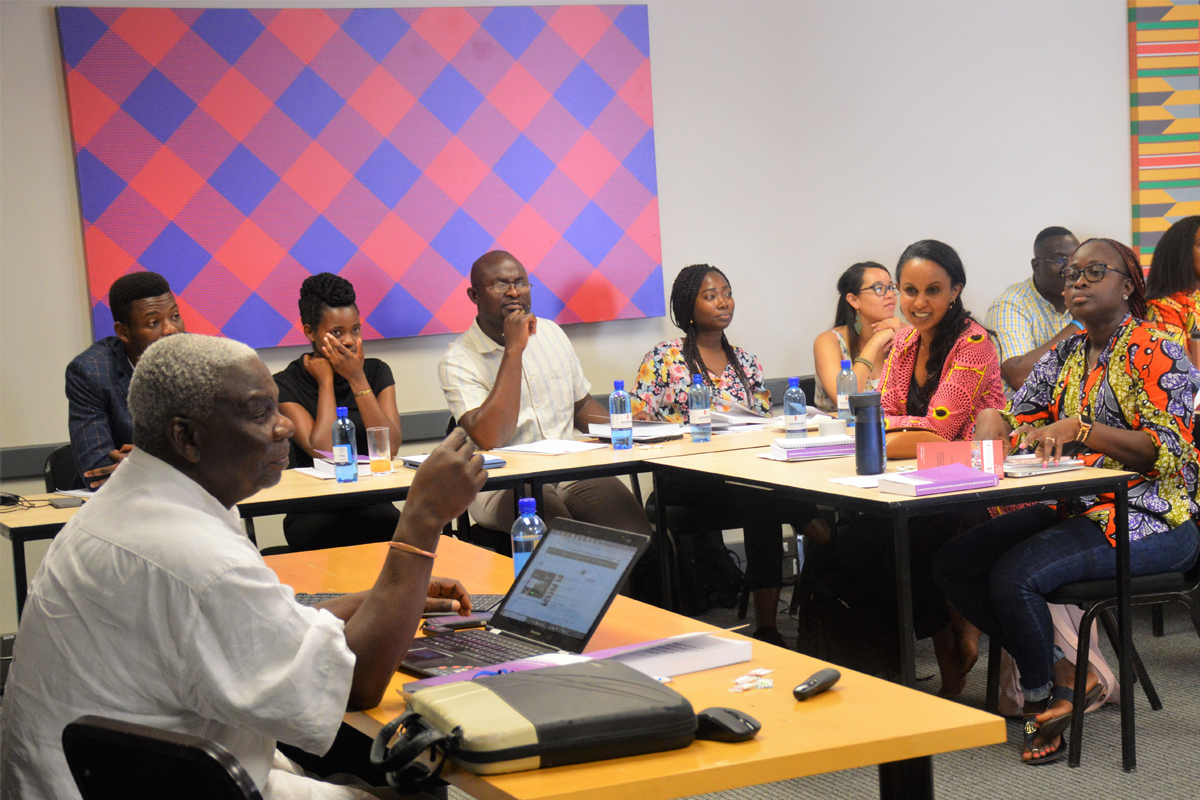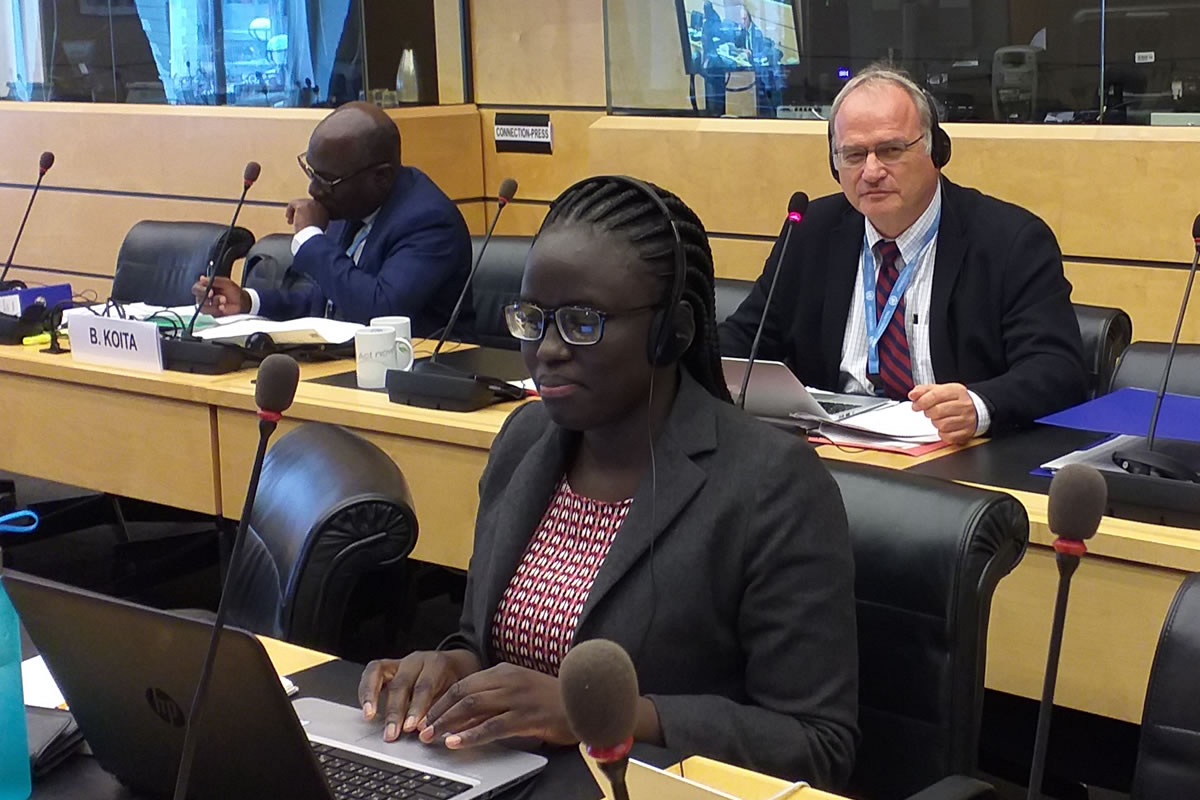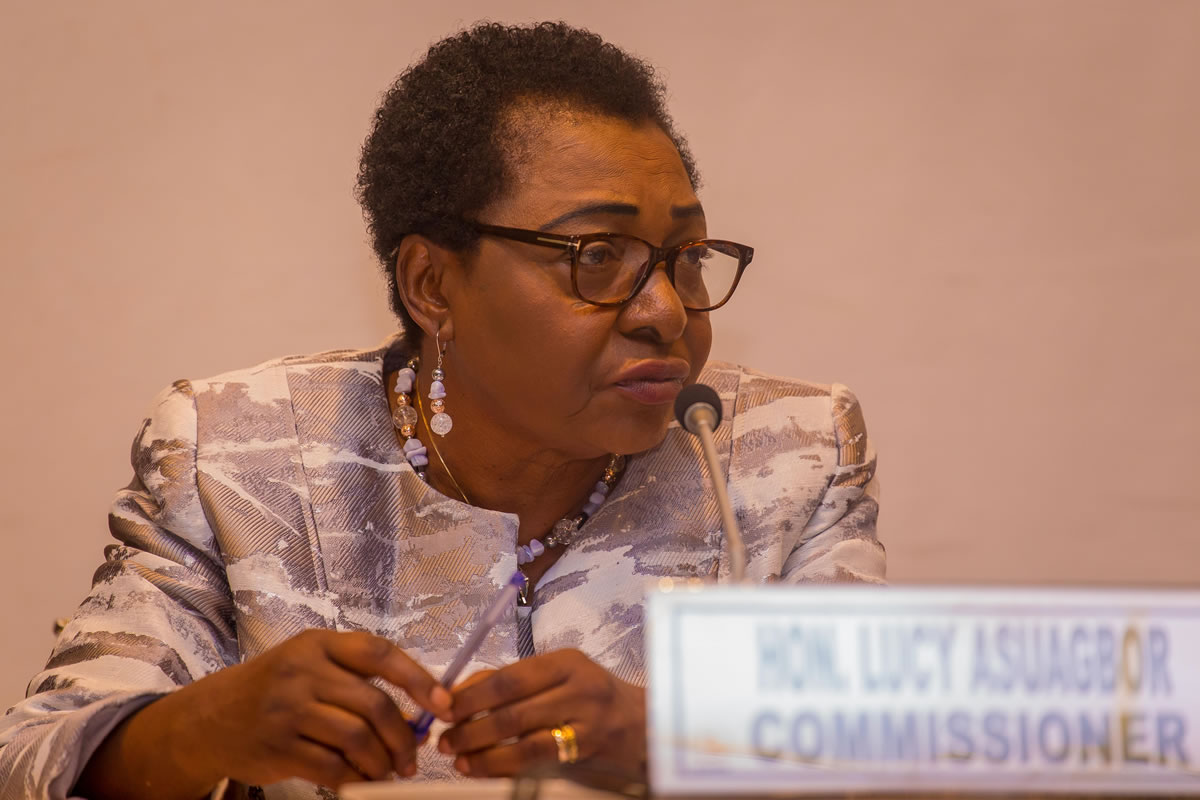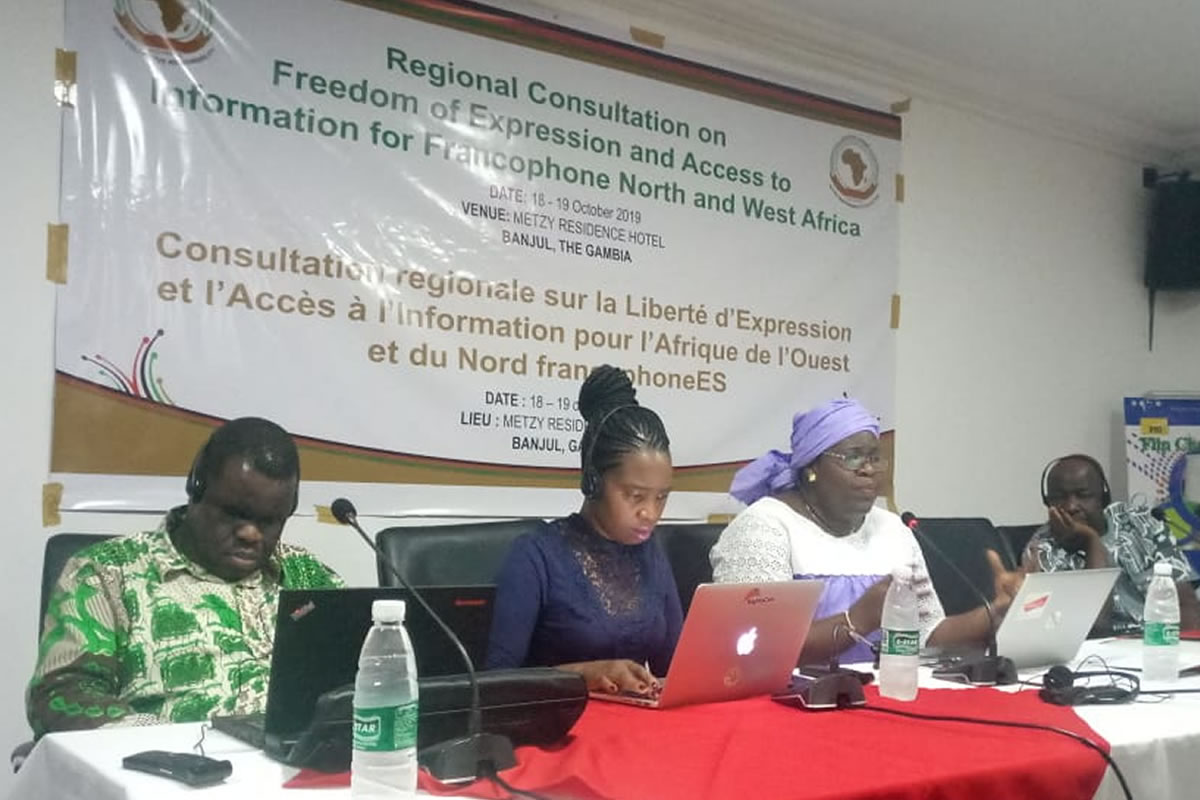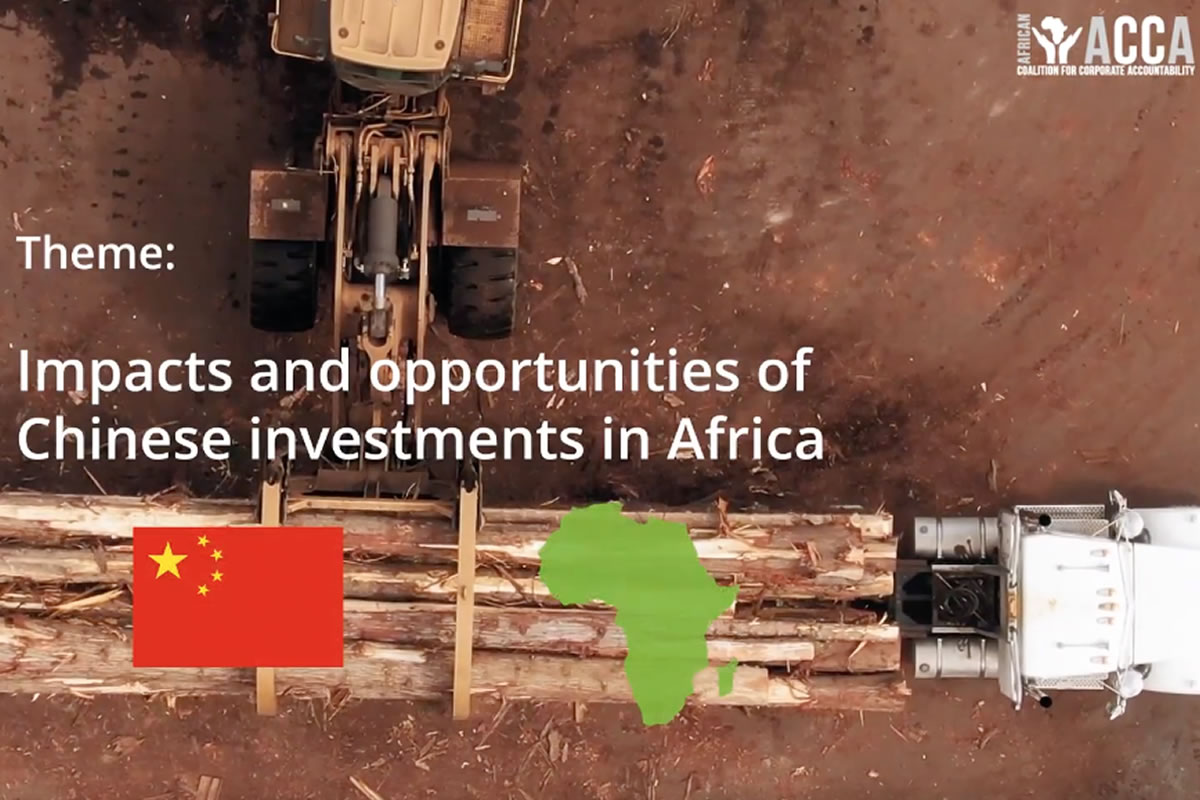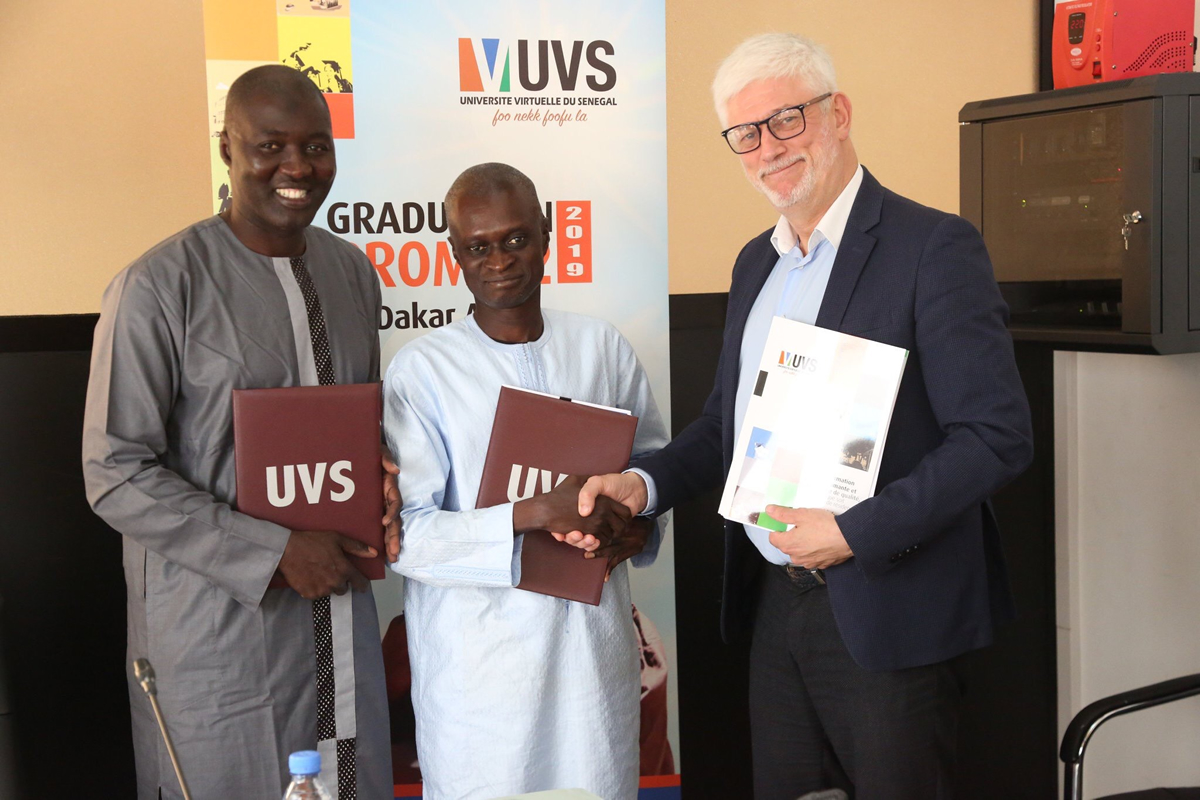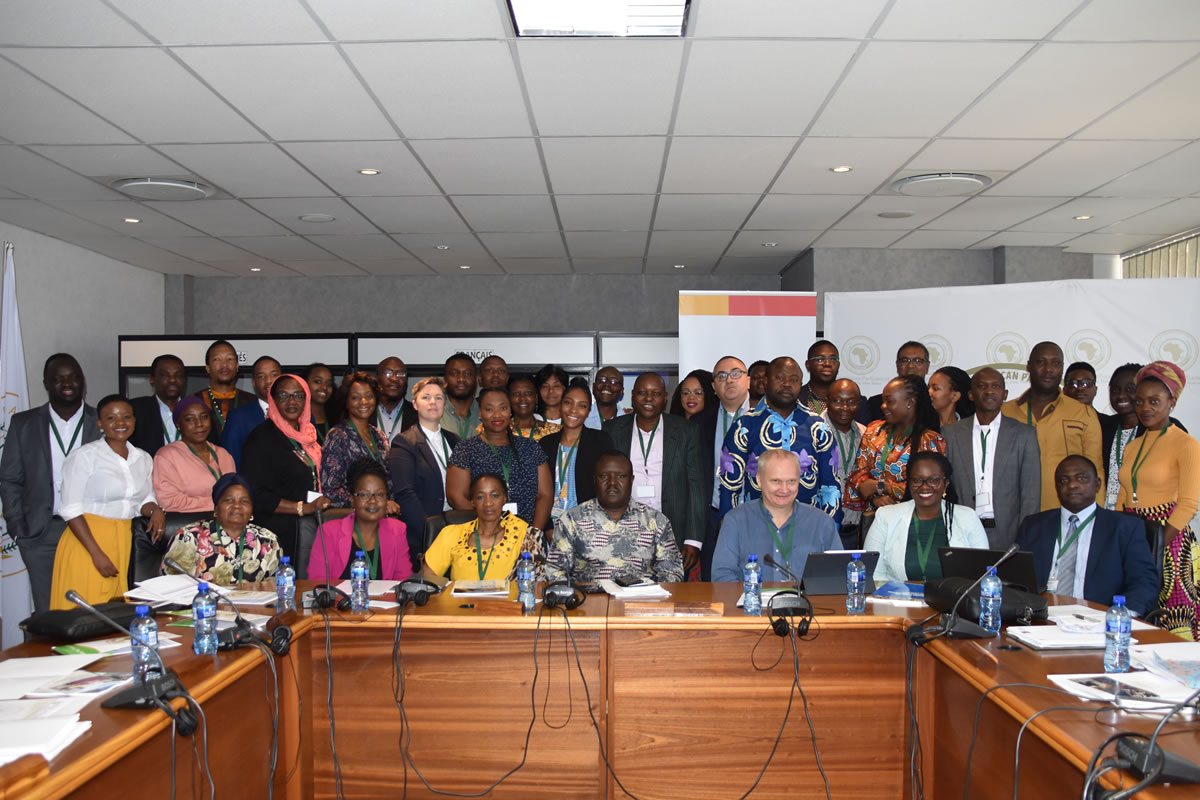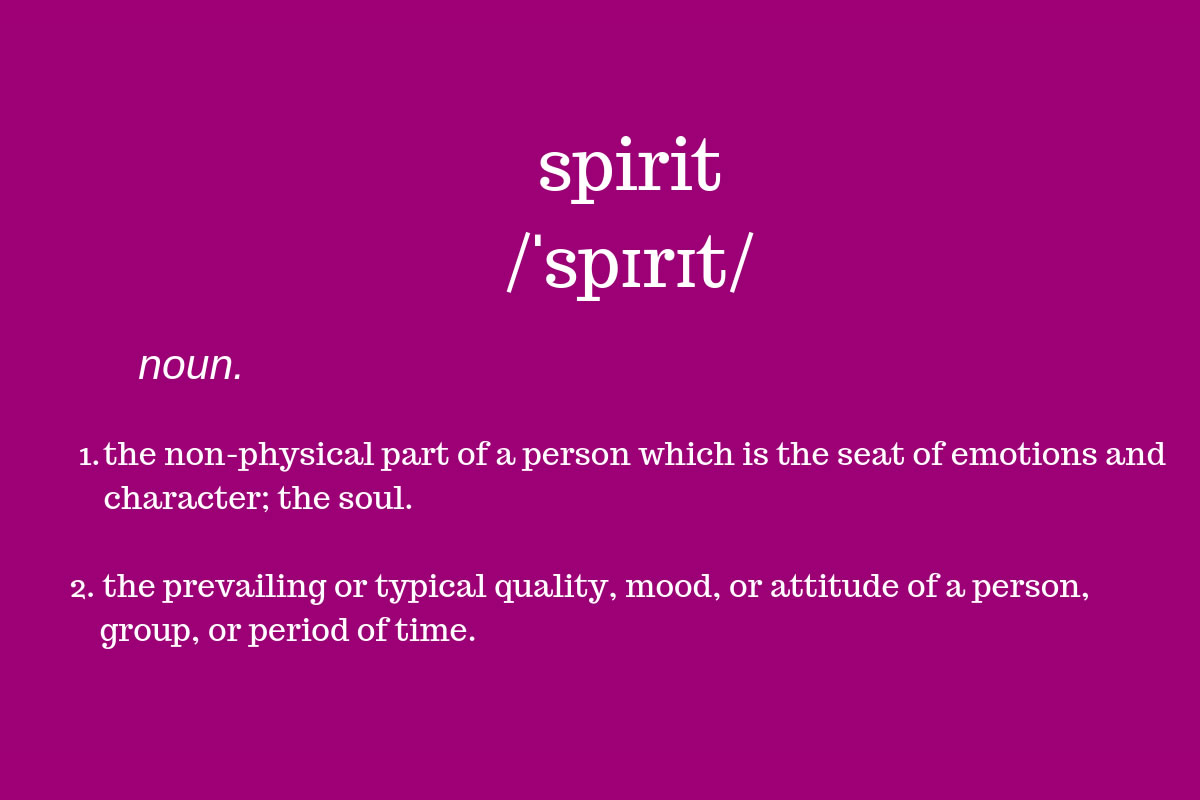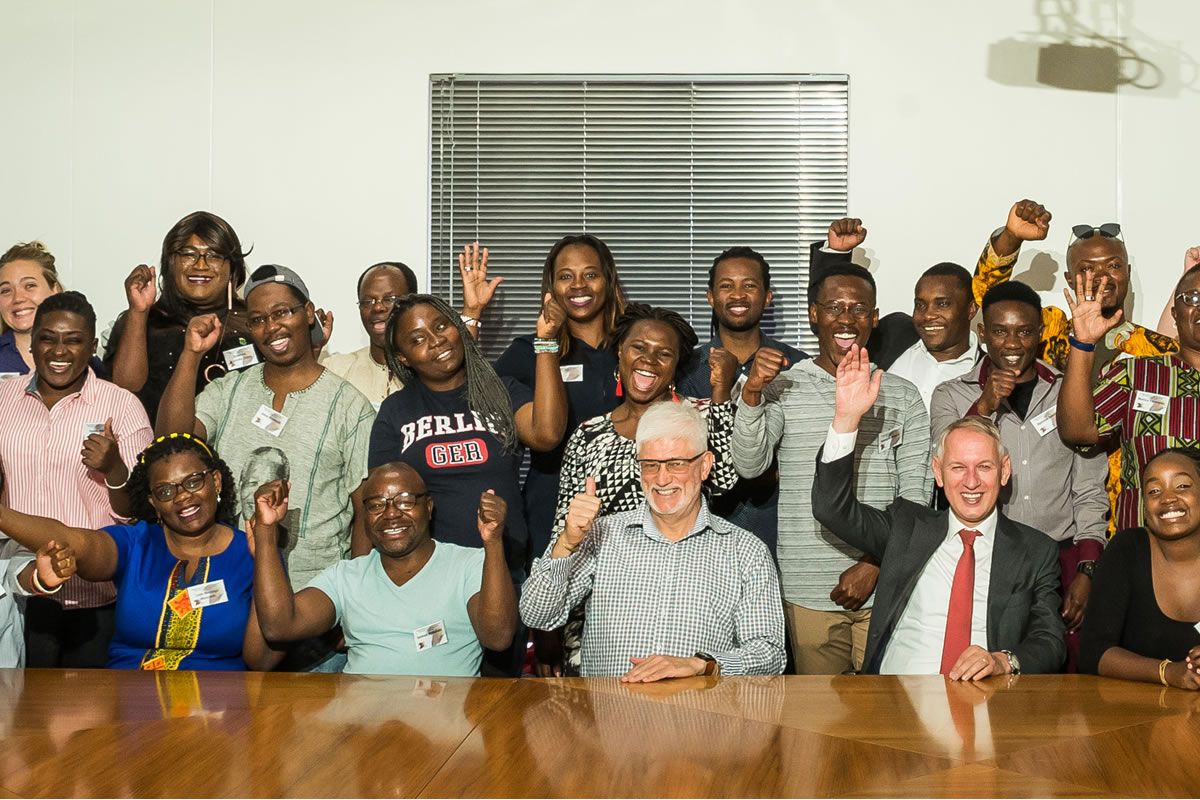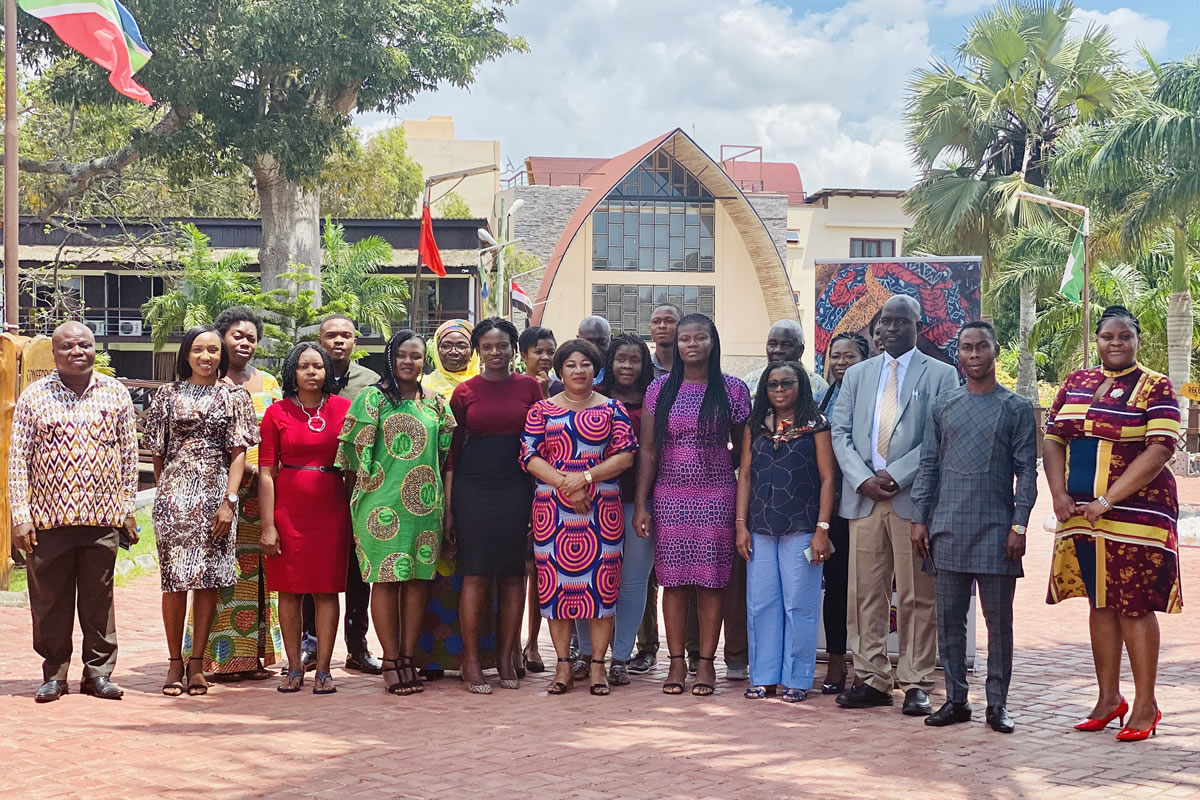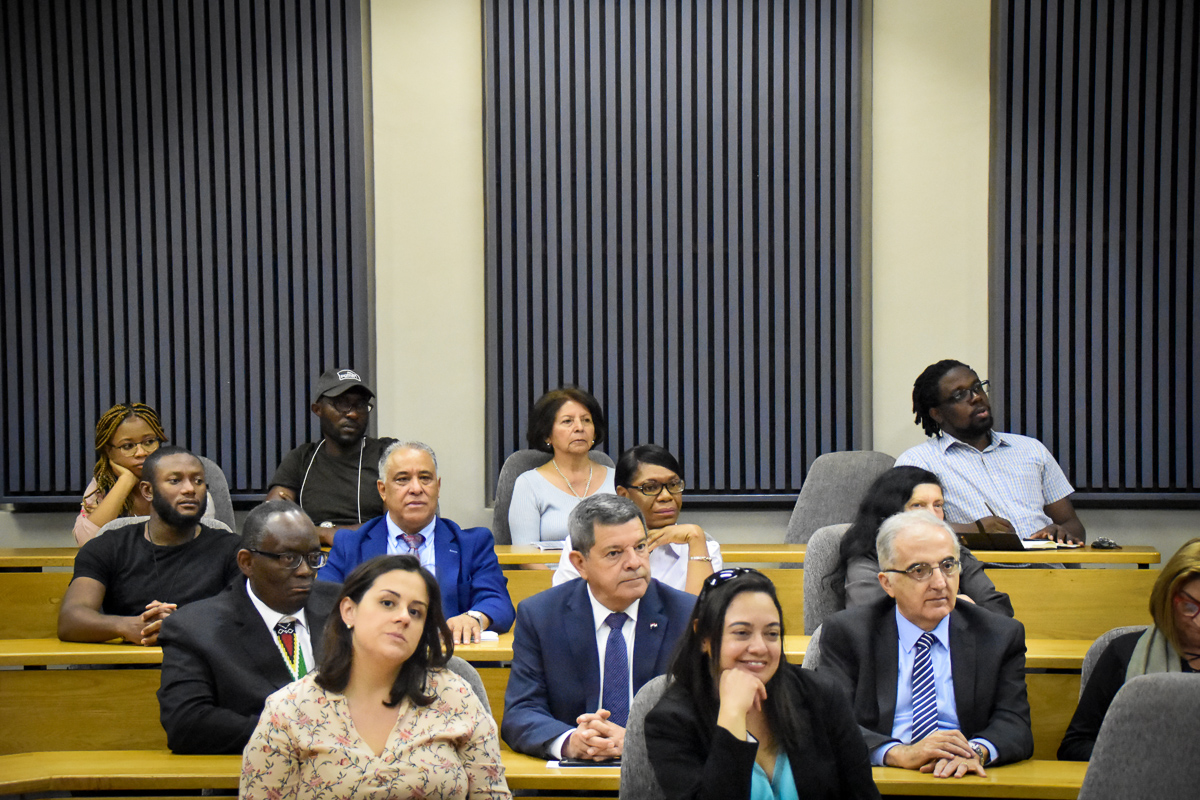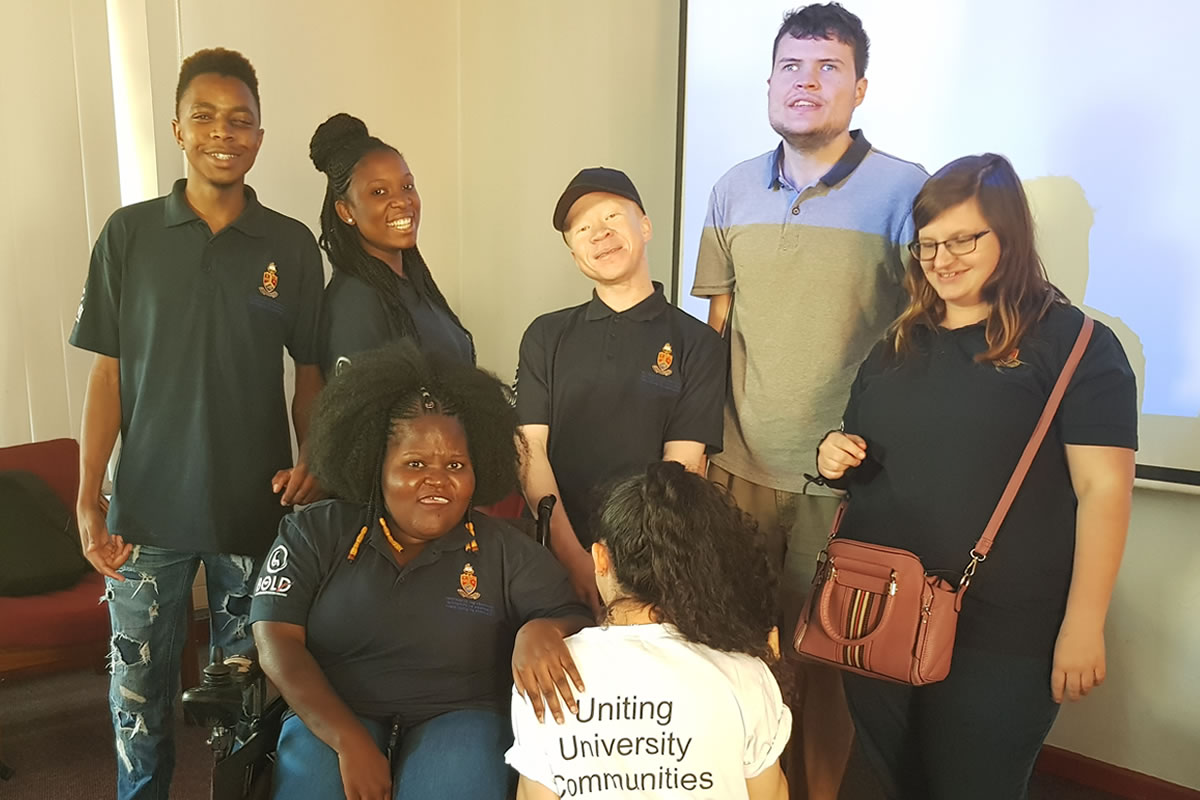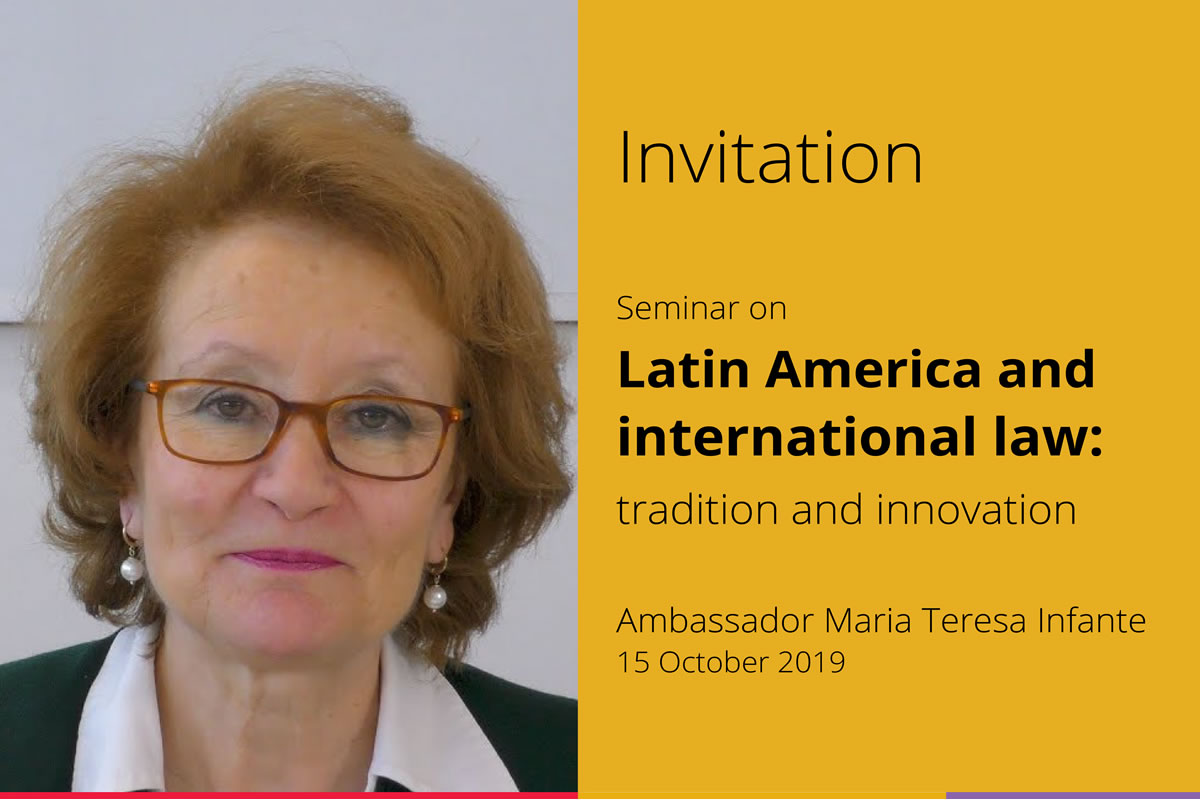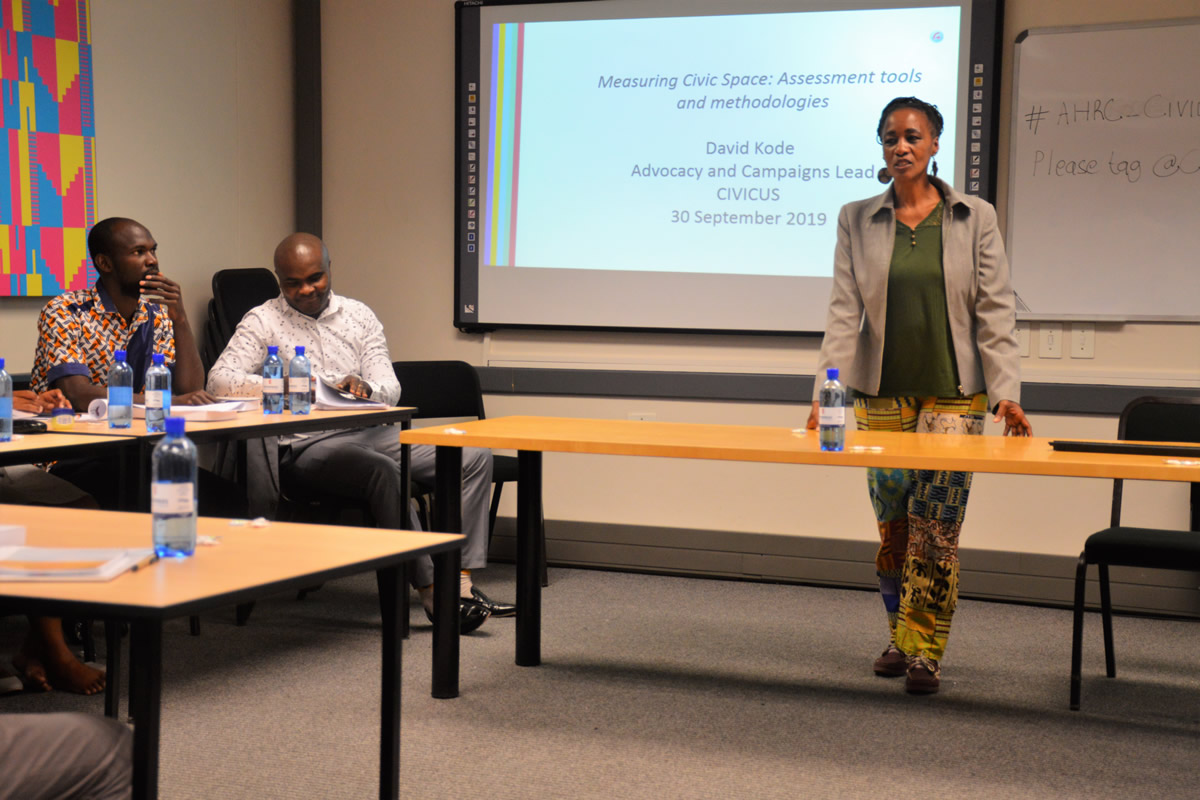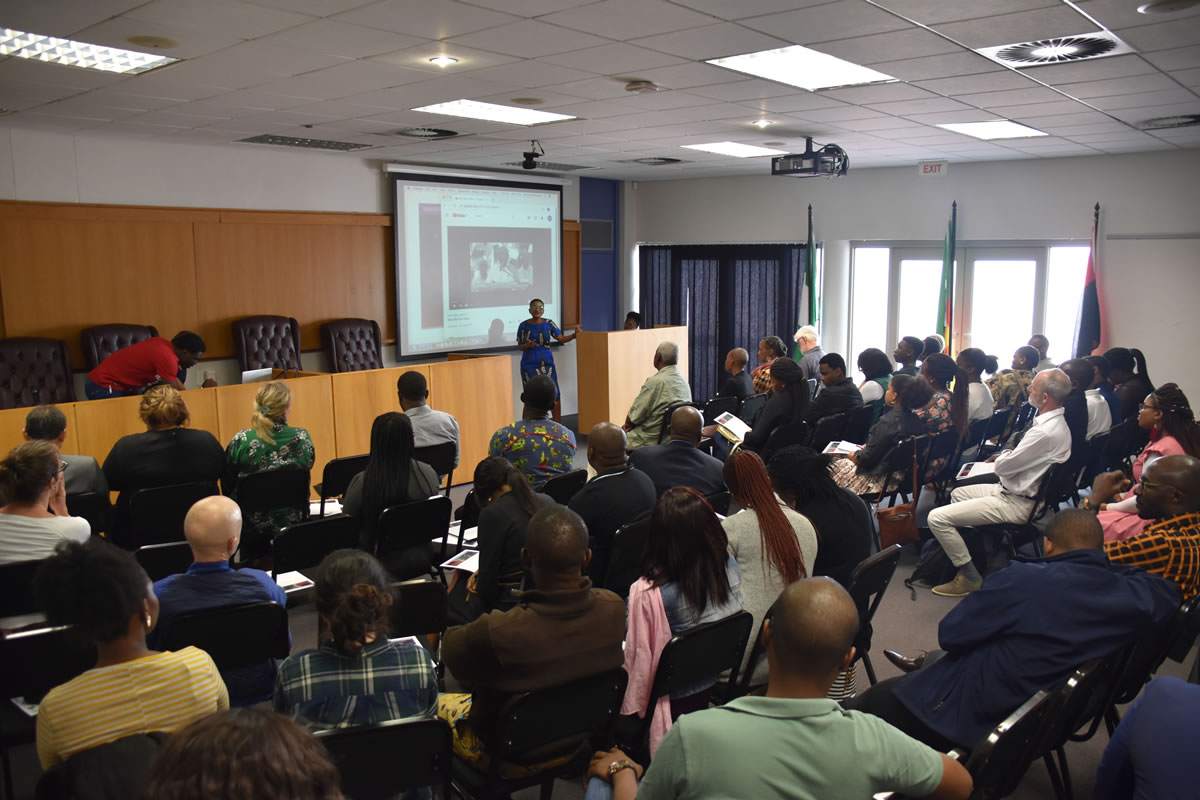- Details
The Centre for Human Rights, Faculty of Law, University of Pretoria, South Africa, is calling for applications for the Master's degree (LLM/MPhil) in Disability Rights in Africa (DRIA) for the Class of 2021. The DRIA programme was launched in 2018 and is the first master’s degree programme in Africa focusing specifically on the rights of persons with disabilities in Africa.
- Details
The Centre for Human Rights, Faculty of Law, University of Pretoria, South Africa, is calling for applications for the Master's degree (LLM/MPhil) in Sexual & Reproductive Rights in Africa (SRRA) for the Class of 2021. The SRRA degree is a unique degree, offered as a blended learning programme, to which 15 individuals from African countries are admitted.
- Details
The Centre for Human Rights, Faculty of Law, University of Pretoria, South Africa, is calling for applications for the Master's degree (LLM) in International Trade and Investment Law in Africa (TILA) for the Class of 2021. The TILA degree is a unique programme to which 25 to 30 individuals from African countries with a degree allowing access to the legal profession (e.g. LLB or licence en Droit) and preferably experience in the field of trade and investment law are admitted.
- Details
Due to the impact of the COVID-19, the oral rounds of the Nelson Mandela World Human Rights Moot Court Competition will now be held in December 2020, and no longer in July. The Competition will be scheduled around Human Rights Day (10 December), with participating teams and judges traveling to Geneva, Switzerland, for the oral rounds. If this would not be possible, the oral rounds, probably in an adjusted and scaled down version, will be held on-line. Either way, the 2020 Competition will still be held.
- Details
The African Coalition for Corporate Accountability (ACCA) wishes to inform its members, partners and other stakeholders of the suspension, until further notice, of the Southern and Central Africa capacity building trainings, as well as the side event scheduled to take place during the 66th ordinary session of the African Commission on Human and Peoples’ Rights.
- Details
The South African government announced a 21-day lockdown of the country starting on 27 March 2020, as part of measures to address the COVID-19 pandemic. Following the national directive, the University of Pretoria took the decision to close down until 16 April 2020. Being based in South Africa, and the University of Pretoria in particular, the Centre for Human Rights is directly affected by these measures.
The COVID-19 pandemic and the resulting restrictions on movement has generated considerable anxiety and uncertainty for us. We support and embrace these measures for unmistakably serving the public good, but we are also aware of their disruptive effect on our regular mode of academic and programmatic work. We have therefore made efforts to ensure continuity as far as possible, and to minimise disruption where possible. Our commitment is driven by the long-term goal of ensuring the advancement of the protection of human rights through education, research and advocacy on the African continent.
- Details
We live in uncertain times. Around the world, severe measures have been put in place to protect public health and avoid the collapse of health care systems. Many countries are in lock down and international travel has all but ceased. South Africa will be in lock down for 21 days from midnight on 26 March.
- Details
As South Africa continues to evolve nearly 26 years into its democratic era, special occasions such as Human Rights Day on 21 March are a sobering reminder of the struggle and sacrifice that so many undertook for the benefit of all.
Human Rights Day memorialises the 69 people killed and 180 injured during the Sharpeville Massacre in 1960, which followed a march by ordinary people demonstrating against unjust pass laws which infringed on their right to freedom of movement.
- Details
Following President Cyril Ramaphosa's speech on 15 March 2020, the Executive Management of the University of Pretoria has decided to suspend contact classes, graduation ceremonies, conferences, mass gatherings and events.
- Details
The Advanced Human Rights Courses (AHRC), in collaboration with the Disability Rights Unit of the Centre for Human Rights, University of Pretoria (UP), recently hosted the annual short course on Disability Rights in an African Context, from 9 to 13 March 2020.
- Details
Background to the Yearbook
The African Court on Human and Peoples’ Rights, the African Commission on Human and Peoples’ Rights, and the African Committee of Experts on the Rights and Welfare of the Child are pleased to announce the call for papers for the Fourth Volume of the African Human Rights Yearbook (AHRY). The First Volume, which was published at the end of 2017, comprised 17 articles while the Second Volume contained a total of 23 contributions. It was published in early 2019. The Third Volume, published end of 2019, comprised 25 contributions. This joint publication, which contains contributions in English, French and Portuguese has been initiated in the framework of the complementarity relationships among the three institutions. For this Fourth Volume, we also invite abstracts in Arabic.
- Details
The Centre for Human Rights, University of Pretoria (UP) through its Advanced Human Rights Courses (AHRC) and the Disability Rights Unit is currently hosting the annual Disability Rights in an African Context course.
- Details
From 3 to 4 March 2020 the Pan-African Parliament (PAP) hosted a Joint Workshop of Committees on the 2020 African Union (AU) theme. The AU’s theme for 2020 is Silencing the Guns: Creating a conducive environment for Africa’s development. The theme is intended to ensure that Africa creates a conducive environment towards prioritising peace, security and socio-economic development.
- Details
COVID-19: Welcoming Ceremony Master's Programmes postponed
As South Africa faces the locally expanding coronavirus epidemic, the University of Pretoria’s (UP) executive management team has decided to postpone contact classes and to reschedule the academic calendar.
Therefore, the welcoming ceremony, scheduled for 20 March 2020, is postponed. Details regarding the rescheduling of the ceremony will be communicated via the Centre's website and social media channels in due course.
We urge our students, staff, friends and colleagues to stay safe as we collectively turn the tide against this pandemic.
- Details
(Op-Ed by Ade Johnson, Thiruna Naidoo & Annie Bipendu)
International Women's Day (IWD), celebrated annually on 8 March, is an opportunity to reflect on the achievement of gender equality in the world, and particularly in Africa. The commemoration of IWD provides a chance to assess the changes and progress made towards the achievement of gender equality generally and the protection of the human rights of women and girls particularly.
- Details
The Advanced Human Rights Courses (AHRC), in collaboration with the SOGIESC Unit of the Centre for Human Rights, University of Pretoria (UP), recently hosted the annual short course on Sexual Minority Rights in Africa, from 24 to the 28 February 2020. The course was attended by 58 participants from all over the world, with 20 African countries represented. This year’s participants included students on both the LLM/MPhil (Human Rights and Democratisation in Africa) and the LLM/MPhil (Sexual and Reproductive Rights in Africa) programmes. Also in attendance were doctoral researchers, judicial officers, representatives from the Network of African National Human Rights Institutions (NANHRI), members of civil society, academics and members from the South African Police Services (SAPS).
- Details
Registration for the 2020 Conference of the Association of Human Rights Institutes (AHRI) on 'The future of human rights: Socio-economic rights, equality and development' is now open!
- Details
As a country previously ravaged by a protracted civil war that killed approximately 150 000 people and left behind 200 000 refugees, Liberia is rising from the ashes of its past. In addition, it has had to deal with the Ebola virus that also wiped out thousands more from its population, yet the country continues to strive to improve its human rights record. This was demonstrated by the commitment that the government of Liberia has made to the drafting of a state party report to the African Commission on Human and Peoples’ Rights (African Commission) under the African Charter on Human and Peoples’ Rights (African Charter) and the Protocol to the African Charter on Human and Peoples’ Rights on the Rights of Women in Africa (Maputo Protocol).
- Details
COVID-19: Public Lecture postponed
As South Africa faces the locally expanding coronavirus epidemic, the University of Pretoria’s (UP) executive management team has decided to postpone contact classes and to reschedule the academic calendar.
Therefore, the public lecturey, scheduled for 24 March 2020, is postponed. Details regarding the rescheduling of the lecture will be communicated via the Centre's website and social media channels in due course.
We urge our students, staff, friends and colleagues to stay safe as we collectively turn the tide against this pandemic.
- Details
Registration for the 29th African Human Rights Moot Court Competition is now open. The competition will be held from 3 - 8 August 2020 in Dakar, Senegal.
- Details
The UN Independent Expert on foreign debt and human rights, Dr Juan Pablo Bohoslavsky, developed the Guiding Principles on Human Rights Impact Assessments of Economic Reforms (A/HRC/40/57) to help governments understand how to use human rights impact assessments (HRIAs) to promote human rights compliant economic reform policies.
- Details
On 6 February 2020, the Centre for Human Rights, University of Pretoria (UP), collaborated with Belgian artist Koen Vanmechelen to host the second African edition of Cosmocafe. The Cosmocafe concept is part of the Human Rights Pavilion project conceived by Vanmechelen. It entails real conversations on human rights issues, referred to as SoTO Dialogues (Survival of the Other), that discusses the possibility of a universal human rights concept and the role of human rights in development. Previously, Cosmocafes have been held in 19 locations worldwide including Harare, Zimbabwe.
- Details
The Centre for Human Rights, University of Pretoria through its Advanced Human Rights Courses (AHRC) and the SOGIESC Unit, is currently hosting the annual Sexual Minority Rights in Africa course.
- Details
The political exclusion of refugees was discussed at a recent lecture hosted on 18 February 2020 by the Centre for Human Rights, University of Pretoria. The theme of the lecture was on the voting rights of refugees. Students on the Master’s programmes in Human Rights and Democratisation in Africa (HRDA) and Multidisciplinary Human Rights (MDHR) were also in attendance.
- Details
The Centre for Human Rights, University of Pretoria, is presenting a massive open online course (MOOC) on nthe African human rights system. Enrolment is free and the course runs from 17 February to 9 March 202. This is the second time that this MOOC is presented.
- Details
A number of alumni of the Master’s programme in Human Rights and Democratisation in Africa (HRDA) participated in the 17th All Africa Course on International Humanitarian Law (IHL). The course was presented at the Faculty of Law, University of Pretoria, from 28 January to 6 February 2020.
- Details
The Centre for Human Rights, University of Pretoria, cordially invites you to a Brown Bag Lunch Lecture on Voting Rights of Refugees by distinguished international refugee law scholar, Dr Reuven (Ruvi) Ziegler.
- Details
The Centre for Human Rights, University of Pretoria, is seeking a Deputy Accountant. The deadline for applications is 21 February 2020.
- Details
The Centre for Human Rights, University of Pretoria, is seeking a Project Manager for its Business and Human Rights Unit. The deadline for applications is 21 February 2020.
- Details
The Centre for Human Rights, University of Pretoria, will host the 2020 Conference of the Association of Human Rights Institutes (AHRI) on 'The future of human rights: Socio-economic rights, equality and development'. The conference will be held from 4 to 5 September 2020 at Future Africa.
- Details
On 23 and 24 January 2020, the Centre for Human Rights, Faculty of Law, University of Pretoria, convened a colloquium on developing responses to the persistence of unsafe abortion in the African region. The colloquium was convened by the Centre’s Sexual and Reproductive Rights in Africa (SRRA) programme. The focus of the colloquium was two-fold: critically exploring laws, policies and practices that serve as barriers to access to safe abortion in the African region; and suggesting reforms to overcome the barriers in ways that respect, protect, promote and fulfil women’s human rights.
- Details
The Centre for Human Rights, University of Pretoria and the Centre for Applied Legal Studies (CALS), cordially invites you to a side-event on Civil Society Engagement with the Pan-African Parliament (PAP). This event will be held on the sidelines of the upcoming Alternative Mining Indaba in Cape Town, South Africa.
- Details
Registration for the 12th Nelson Mandela World Human Rights Moot Court Competition is now open. The competition will be held from13 to 17 July 2020 at the Palais des Nations in Geneva, Switzerland.
- Details
The year 2019 was quite momentous for us in the Centre for Human Rights, both in the Centre’s capacity as an academic institution and as an NGO.
As an academic department of the Faculty of Law, we celebrated 20 years of the Master’s programme in Human Rights and Democratisation in Africa (HRDA). We had a number of events with alumni and we were so fortunate to reflect on the great achievements of many of them and the significant roles they have been playing on the African continent. We also marked the introduction of another Master’s programme, one in Disability Rights in Africa last year and we saw a number of students graduating in our Master’s programme in International Trade and Investment Law in Africa (TILA).
- Details
The African Disability Rights Yearbook (ADRY) is calling for papers for consideration for publication in Section A of the ADRY in 2020. The ADRY publishes once a year with a focus on disability rights issues and developments of contemporary concern to persons with disabilities on the African continent. The ADRY is published by the Pretoria University Law Press (PULP) and is published as a peer-reviewed open-access journal.
- Details
On 10 December 2019, the Centre for Human Rights held its annual graduation ceremony on International Human Rights Day at the Aula, University of Pretoria. On this occasion, Justice Zak Yacoob, retired judge from the Constitutional Court of South Africa, was awarded an honorary doctorate degree. It was the first human rights graduation ceremony presided over by UP’s Vice-Chancellor and Principal, Professor Tawana Kupe. It was also the first University of Pretoria law graduation ceremony as Dean by the recently elected Dean of the Faculty of Law, Professor Elsabe Schoeman.
- Details
Justice Zak Yacoob, retired judge of the Constitutional Court of South Africa was awarded an honorary doctorate at the University of Pretoria’s Centre for Human Rights Graduation Ceremony on International Human Rights Day.
- Details
More than seven million children are deprived of liberty worldwide. This is according to the UN Global Study on Children Deprived of Liberty that was launched on Monday 9 December 2019.
The sub-regional launch of the Global Study study took place at the Future Africa Campus of the University of Pretoria (UP) on Monday and was hosted by the University’s Centre for Human Rights in collaboration with the South African Department of International Relations and Cooperation (DIRCO) and the Global Campus of Human Rights. The aim of the launch was for Southern African states to reflect on ways in which they can take on board and provide national measures to give effect to the recommendations in the Global Study.
- Details
The Master’s degree graduation ceremony of the Centre for Human Rights, Faculty of Law, University of Pretoria, is held annually on International Human Rights Day on 10 December. The event will be live streamed on YouTube.
- Details
The Centre for Human Rights, University of Pretoria, is proud to announce the winners of this year’s FACES African Student Cellphone Film Competition on 10 December, which is International Human Rights Day. The purpose of the competition is to encourage students from Africa to express themselves and to engage with human rights issues of relevance to Africa, using available cellphone technology.
We thank every participant that took time to submit an entry for FACES 2019.
- Details
On 8 December 2019, following an Alumni Symposium held at the University of Pretoria's Future Africa Campus, the Centre for Human Rights launched its 20-year edition of the Alumni Diaries.
- Details
On 8 December 2019, the Centre for Human Rights hosted its #HRDA20Years Alumni Symposium at the Future Africa Campus, University of Pretoria. The Symposium was part of a number of events recently hosted by the Centre for Human Rights, celebrating 20 years of the existence of its Master’s programme in Human Rights and Democratisation in Africa (HRDA).
- Details
On 7 December 2019, the Centre for Human Rights, University of Pretoria, welcomed back around 60 alumni from its Master’s programme in Human Rights and Democratisation in Africa (HRDA). Students of the HRDA Class of 2019 and alumni from across the continent and from different graduating classes congregated at the Centre to kick-off the #HRDA20Years celebrations.
- Details
The 2020 African Human Rights Moot Court Competition was officially launched on 6 December 2019, when the Vice-Chancellor and Principal of the University of Pretoria, Prof Tawana Kupe, signed the Memorandum of Understanding (MOU) between the three partner universities.
- Details
The Master's programme in Human Rights and Democratisation in Africa (HRDA) is an academic and practical programme on human rights hosted by the Centre for Human Rights. The programme, established in 2000, focuses on human rights in Africa but with a global footprint. Taught by eminent scholars and practitioners in the field of human rights and international development around the world, the programme is the first of its kind designed to address the gap in human rights scholarship and advocacy in Africa. Now, with an alumni strength of 537 and counting, HRDA has become a beacon of hope for human rights development in Africa and in the world. The original mandate of HRDA to strengthen human rights debate on the continent has been largely achieved in the last twenty years with its alumni spread in almost all sectors including legal practice, inter-governmental organisations, national judiciaries, academic institutions, governments, philanthropy and many more in and out of Africa.
- Details
The Women’s Rights Unit at the Centre for Human Rights, University of Pretoria, has intensified its call for the ratification of the Protocol to African Charter on Human and Peoples’ Rights on the Rights of Older Persons in Africa (Older Persons Protocol) through a series of advocacy initiatives targeting African Union member states.
- Details
The Sub-Regional Launch of the UN Global Study on Children Deprived of Liberty will take place on 9 December 2019 at the seat of the Global Campus Africa which is the Centre for Human Rightsm University of Pretoria, South Africa. The launch will be held at Future Africa Campus in Hillcrest, Pretoria. The focus of this conference is on how to effectively implement the recommendations of the UN Global Study on Children Deprived of Liberty from a regional perspective.
- Details
December 5, 2019
The Centre for Human Rights, University of Pretoria, is deeply concerned about the recent decision of the Government of the United Republic of Tanzania to withdraw its declaration made under article 34(6) of the Protocol of the African Charter on the Establishment of an African Court on Human and Peoples’ Rights allowing individuals and NGOs to take cases directly to the African Court.
- Details
Men and boys should be socialised from a young age that they do not need to assert their power over women. Statements that promote toxic masculinity should not be said to young boys. 'Boys dont cry' is a statement that teaches men to suppress their emotions and risk instilling in them toxic and violent behaviour. Lets deal with VAW at its root cause.
- Details
Information is power. The topic of violence against women should not be taboo. Open and frank discussions in communities should be held in order to inform and engage would be perpetrators on the devastating effects of violence against women to the whole society.
- Details
(By Geoffrey Ogwaro)
As South Africa commemorated World Aids Day on December 1, the country pledged to renew, rejuvenate and recommit itself to the fight to end HIV. There are nascent plans and frameworks in place, such as the national strategic plan on HIV, sexually transmitted infections (STIs) and tuberculosis (TB) and the national LGBTI HIV plan.
The theme for this year is “ending the HIV/Aids epidemic: community by community”, and the United Nations Programme on HIV and Aids is emphasising the role of communities in ending the epidemic once and for all.
- Details
Today marks just over a year since the Committee on the Rights of Persons with Disabilities (the Committee) issued its concluding observations on the initial state report of South Africa. Article 35 of the Convention on the Rights of Persons with Disabilities (CRPD) requires states that have ratified the Convention to submit a comprehensive report on measures taken to ensure that the rights guaranteed under the CRPD are enjoyed by persons with disabilities in their countries. State parties are required to submit their first report within two years of ratifying the CRPD, and subsequent reports every four years. South Africa became a signatory to the CRPD in 2008. The country’s initial report was due for submission on 3 June 2010 but was only submitted to the Committee on 26 November 2014.
- Details
Violence against women prevents women and girls from reaching their full potential. Education for women and girls is therefore important in efforts to end gender based violence.
- Details
Violence against women and girls is prevalent and widespread, it cuts across age, education, marital socio-economic and financial status.
- Details
In speaking out against violence against women and girls, we need to challenge dominant stereotypical norms that excuse and rationalise VAW. For example, we need to begin to teach our children that doing house chores such as cooking and cleaning is a skill and therefore not gender specific.
- Details
A global research partnership, which uses technology to deliver ground-breaking human rights investigations, has been recognised with a nomination at the prestigious Times Higher Education Awards. Amnesty’s Digital Verification Corps, in partnership with the University of Essex and five other global universities, which includes the University of Pretoria through its Centre for Human Rights, has been awarded the 2019 Times Higher Education award for international collaboration, for the joint work that went into our comprehensive investigation into civilian casualties in Raqqa earlier this year.
- Details
We need to have open, frank and important conversations on violence against women and girls. These conversations would bring about the much needed attention to the issue of VAW as a global and national crisis. It would empower women and girls find their voices, challenge stereotypical notions, break and demystify the culture of silence that surrounds violations such as rape, sexual harassment and intimate partner violence.
- Details
On 26 November 2019, WITNESS and the Centre for Human Rights, University of Pretoria, hosted an expert meeting in Pretoria, South Africa. The workshop was on the emerging threats posed by deepfakes and other forms of AI-enabled synthetic media.
- Details
There is a need to create safe spaces for women and girls. Our homes, workplaces, schools and streets should be safe spaces. Most times, perpetrators of rape and sexual harassment are known to victims and survivors.
- Details
The Republic of Liberia ratified the African Charter on Human and Peoples’ Rights in 1982 and its supplement instrument, the Protocol to the African Charter on Human and Peoples Rights on the Rights of Women in Africa (Maputo Protocol), in 2007. By virtue of its ratification of these instruments, Liberia is bound by the reporting obligations as prescribed under Article 62 of the African Charter and Article 26(1) of the Maputo Protocol. However, despite these commitments, the last time Liberia reported to the African Commission on Human and Peoples Rights (African Commission) on the African Charter was in 2012 and the country is yet to report on the Maputo Protocol.
- Details
There are no blurred lines when it comes to consent. Consent involves an active affirmation. No means no! Consent is compulsory, all the time, with no exceptions. Just because a woman is friendly with a man, doesn’t mean she has consented to have sexual relations with him.
Lets put an end to rape. Lets stop victim shaming #enoughisenough #standagainstrape #consentisassimpleastea
- Details
Gender-based violence is the violence targeted at individuals or groups on the basis of gender. Examples include rape, femicide and intimate partner violence. Globally, one in three women and girls have experienced one form of violence in their homes, schools, workplaces and on the streets because of the perpetuation of patriarchy.
We need to start seeing change. Let us create safe spaces for women and girls. #EnoughIsEnough
- Details
On 22 and 23 November 2019, the United Arab Emirates (UAE) Embassy in collaboration with the Centre for Human Rights, University of Pretoria (UP), held a leadership colloquium at the Sanlam Auditorium on the UP Hatfield Campus. The theme of the colloquium was 'UAE’s Year of Tolerance: Prospects for Peace and Stability in Africa'. The colloquium was held under the backdrop of the activities of the UAE’s Presidency on promoting tolerance and as a way to address rampant forms of discrimination taking place in the UAE and the rest of the world. Its aim was to emphasise tolerance and acceptance of difference of social, political, ethnic, cultural or religious backgrounds.
- Details
The Centre for Human Rights, University of Pretoria today joins the world to mark the start of 16 Days of Activism against Gender-Based Violence for 2019. It runs under the global theme of ‘Orange the World: Generation Equality Stands Against Rape’. South Africa brings it closer to home with an additional theme of: ‘Enough is Enough: Together fast-tracking implementation to end gender-based violence’. As the Centre for Human Rights, we raise our voices to say indeed enough is enough; it is time to end all forms of violence against women and gender-based violence all over the world.
- Details
The African Coalition for Corporate Accountability (ACCA) is a coalition of 123 African organisations addressing corporate-related human rights infringements on the African continent. The theme of the 2019 General Assembly (GA) meeting was “Impacts, Opportunities and Accountability in the context of Chinese Investments in Africa.” The proliferation of Chinese firms in Africa has similarly led to the exponential increase of corporate-related human rights encroachments, thus making discussion on and around this issue topical and pertinent. In responding to the need for discourse, ACCA, in partnership with Groupe de Recherche et de Plaidoyer sur les Industries Extractives (GRPIE), hosted its 6th general assembly on 6-8 November 2019.
- Details
The Centre for Human Rights, Faculty of Law, University of Pretoria, cordially invites you to its Master’s degree graduation ceremony. This graduation coincides annually with International Human Rights Day on 10 December.
- Details
The Centre for Human Rights hosted the 7th Annual Disability Rights Conference from 11 to 12 November 2019 at the Southern Sun Hotel, OR Tambo International Airport. This year’s conference theme was ‘Fulfilling the right of persons with disabilities to live in the community: Promoting choice, inclusion, and participation.’
- Details
South Africa has a history of violence and intolerance towards fellow Africans. Fast forward 25 years and not much has changed in the era of human rights and democracy.
- Details
The Disability Rights Scholarship Program offers awards to individuals from the Czech Republic and select countries in Africa and Eurasia for a one-year Master of Laws (LLM) degree. The program’s objective is to provide disability rights advocates and lawyers with the necessary expertise to develop new legislation, jurisprudence, policy, research, and scholarship to harness the innovations and opportunities offered by the United Nations Convention on the Rights of Persons with Disabilities (CRPD). The CRPD, which entered into force in May 2008, presents a paradigm shift in the field of disability rights and provides a framework for promoting the inclusion and full participation of persons with disabilities in their communities.
- Details
The Centre for Human Rights, Faculty of Law, University of Pretoria, calls for applications for a full-time doctoral scholarship in the field of children’s rights. The successful candidate will be based within the Centre, and will be expected to contribute to the work of the Centre’s Children’s Rights Unit (for 25 hours per week), while attending to her/his LLD/DPhil work.
- Details
The Centre for Human Rights, Faculty of Law, University of Pretoria, calls for applications for a full-time doctoral scholarship in the field of disability rights. The successful candidate will be based within the Centre, and will be expected to contribute to the work of the Centre’s Disability Rights Unit (for 25 hours per week) while attending to her/his LLD/DPhil work.
- Details
30 years have passed since world leaders adopted the UN Convention on the Rights of the Child. Many alumni from the Global Campus Alumni network dedicated their professional lives to transform children’s lives around the world.
- Details
November 12, 2019
Honourable Emmanuel Macron
President of the Republic of France
Palais de l’Elysée, rue du Faubourg Saint-Honoré
75008 Paris, FRANCE
Dear President Macron:
We, the undersigned scholars, writers, and human rights advocates, write to plead with France to up its engagement in resolving Cameroon’s Anglophone Crisis, described by some analysts as “Rwanda in slow motion”.
Specifically, we respectfully urge France to use its considerable influence with the government of President Paul Biya to encourage Cameroon to openly embrace the Swiss-led peace talks, as a means of ending the killings and atrocities being committed in the North West and South-West regions of the country. A lasting solution must come from a mediated process that includes Anglophone armed-separatist groups and non-violent civil-society leaders.
- Details
The Centre for Human Rights, University of Pretoria (UP), is currently hosting the annual disability rights in Africa conference at Southern Sun Hotel, OR Tambo International Airport. More than 250 scholars, disability rights activists, lawyers, policymakers and self-advocates from various African countries are converging to exchange experiences and knowledge on the right of persons with disabilities to live in the community.
- Details
The Centre for Human Rights wishes to congratulate Prof Elsabe Schoeman on her appointment as Dean of the Faculty of Law at the University of Pretoria, for the period 1 November 2019 to 31 October 2023. We are pleased to note that Prof Schoeman is also the first woman to be appointed in this position in the Faculty’s history of more than 100 years.
- Details
The Centre for Human Rights, University of Pretoria, will be hosting a regional conference titled ‘Fulfilling the right of persons with disabilities to live in the community: Promoting choice, inclusion and participation’. The 7th Annual Disability Rights Conference will be held on 11 and 12 November 2019 in Johannesburg.
- Details
The Centre for Human Rights, University of Pretoria, held a two-day training workshop on access to justice for persons with disabilities in Gaborone, Botswana from 29 to 30 October 2019. This was the fourth training on access to justice conducted by the Centre in 2019. The first training took place in Lusaka, Zambia in July 2019, and this was followed by the second training in Okahanja, Namibia and the third training in Pretoria, South Africa, which were both held in September 2019.
- Details
The Centre for Human Rights, University of Pretoria, is deeply concerned about the eviction of refugees and asylum seekers who were holding a sit-in at the United Nations High Commissioner for Refugees (UNHCR) office in Cape Town, South Africa. The evictions were carried out by the South African Police Service on 30 October 2019.
The evictions were conducted in a violent manner, violating the dignity of those affected. Furthermore, scenes of children being forcibly separated from their parents are especially concerning, taking into account the standards dealing with the protection of the rights of children that South Africa has committed itself to.
- Details
The Centre for Human Rights, University of Pretoria (UP), in collaboration with Shift, will be hosting a two-day multi-stakeholder meeting of experts concerning the Valuing Respect project - a project aimed at evaluating how companies understand and give effect to their responsibility to respect human rights. The consultation will take place on 30 and 31 October 2019.
- Details
Mental health as a human right
In conversation with Dr Linda Blokland
- Details
A number of Univeristy of Pretoria researchers have been arguing that the United Nations human rights system will be more effecitive - with more visibility and greater global ownership - if the bodies monitoring human rights compliance by states meet not only in Geneva, but also in other parts of the world when monitoring compliance. Samoa will now be the first country to implement this proposal, when they host the Committee on the Rights of the Child there next year. According to Prof Christof Heyns, a member of the UN Human Rights Committee, this will in particualr allow countries from the South to engage more directly and on a more eqaul footing with the system.
- Details
The Centre for Human Rights presented its statement on aspects of the human rights situation in Africa, at the 65th Ordinary Session of the African Commission on Human and Peoples’ Rights, taking place in Banjul, the Gambia. It drew attention to the situation in Cameroon; raised concerns about the lack of priority by the African Commission on its protective mandate; called for the consistent implementation of Resolution 275; and urged the African Commission to develop soft-law standards on the rights of intersex persons.
- Details
The Advanced Human Rights Course on African Human Rights Systems in Comparative Perspectives was held at the University of Pretoria (UP). The course was presented by the Centre for Human Rights from 21 to 25 October 2019.
- Details
The United Nations Human Rights Committee is the body of independent experts that monitors implementation of the International Covenant on Civil and Political Rights (ICCPR) by its state parties. Prof Christof Heyns, former Director of the Centre for Human Rights and Professor of human rights law at the University of Pretoria, is one of the 18 independent experts that make up the Committee. The Committee is in the process of developing General Comment 37 on Article 21 of the ICCPR and Prof Heyns was designated as the Rapporteur for the drafting of the General Comment.
- Details
As part of the Africa Beijing+25 review, and in preparation of the commemoration of the Beijing Declaration in 2020, the African Commission on Human and Peoples’ Rights (African Commission), through the Special Rapporteur on the Rights of Women in Africa, hosted a panel during the 65th Ordinary Session of the Commission on 22 October 2019 in Banjul. The panel focused on the rights of women in Africa and was an opportunity to reflect on the strides made on the continent over the years since the adoption of the Beijing Declaration in 1995.
- Details
The Centre for Human Rights, University of Pretoria (UP), is delighted that one of its alumni has been elected as the Chairperson of the African Commission on Human and Peoples’ Rights at its 65th Ordinary Session in Banjul, The Gambia.
- Details
On 18 and 19 October 2019, the Democracy, Transparency and Digital Rights (DTDR) Unit at the Centre for Human Rights, University of Pretoria, participated in the regional consultation meeting for Francophone West Africa and North Africa on freedom of expression and access to information. The meeting was organised by the Special Rapporteur on Freedom of Expression and Access to Information in Africa, Commissioner Lawrence Mute. The consultation was aimed at discussing strategies for ensuring effective realisation of access to information; exploring how access to information may be used to support a free and fair electoral environment; and strategising on ways of ensuring freedom of expression.
- Details
The African Coalition for Corporate Accountability (ACCA) in partnership with its organisation member called: Groupe de Recherche et de Plaidoyer sur les Industries Extractives (GRPIE), are pleased to invite you to the annual General Assembly of our coalition to be held from 06 to 8 November 2019 in Abidjan (Ivory Coast), at the hotel IVOTEL.
- Details
Preparation for the 2020 African Human Rights Moot Court Competition were launched formally when the Director of the Centre for Human Rights, University of Pretoria, and the Rectors of the Virtual University of Senegal and the University Cheikh Anta Diop, on 18 October 2019 signed the Memorandum of Agreement in Dakar, Senegal.
- Details
On 12 October 2019 the Centre for Human Rights, University of Pretoria, held a Civil Society Organisation (CSO) Forum on the side-lines of the Third Ordinary Session of the Fifth Parliament of the Pan-African Parliament (PAP). The CSO Forum was attended by members of civil society and academics from across the region. Organisations represented included the Human Rights Institute of South Africa (HURISA), Lawyers for Human Rights, Scalabrini Centre of Cape Town, University of Kenya, University of Tanzania, University of Johannesburg and the Consortium for Refugees and Migrants in South Africa.
- Details
Spirit Day is an annual LGBTQ awareness day which was started in 2010 by Canadian teenager Brittany McMillan. Spirit Day was initially created in response to many widely publicised bullying-related suicides of gay school students in 2010. The Centre for Human Rights stands with LGBTQ youth this Spirit Day, and every day. We sat down with young people who have both experienced and witnessed bullying in schools to share their perspectives with us and explain why #IHaveSpirit.
- Details
The Centre for Human Rights, University of Pretoria (UP), with the support of the Embassy of the Kingdom of the Netherlands, hosted a week-long capacity building workshop on strategic litigation and advocacy for LGBTI+ human rights defenders in Africa. The workshop is an annual event organised by the Centre’s Sexual Orientation, Gender Identity and Expression, and Sex Characteristics (SOGIESC) Unit and is aimed at empowering LGBTI+ human rights defenders in Africa, with a specific focus on how to conduct strategic advocacy and litigation. This year’s edition was held from 7 to 11 October 2019.
- Details
The Women’s Rights Unit at the Centre for Human Rights, University of Pretoria, in collaboration with Moremi Initiative for Women’s Leadership in Africa, a non-profit organisation in Africa, conducted a state reporting workshop on the African Charter on Human and Peoples Rights (African Charter) and the Protocol to the African Charter on Human and Peoples Rights on the Rights of women in Africa (Maputo Protocol). The meeting took place at Aqua Safari Resort, Ghana from 9 to 11 October 2019.
- Details
The Centre for Human Rights on 15 October hosted a seminar at which Ambassador Maria Teresa Infante, who is a candidate for a seat on the International Tribunal for the Law of the Sea, provided some reflections on the contribution of Latin America to international law.
- Details
You are cordially invited by the Office of the United Nations (UN) High Commissioner for Human Rights (OHCHR), in collaboration with the Geneva Academy of International Humanitarian Law and Human Rights, the Centre for Human Rights (University of Pretoria) and the Permanent Mission of Switzerland to the UN in Geneva to the launch of the United Nations Human Rights Guidance on Less Lethal Weapons and Related Equipment in Law Enforcement.
- Details
What is Africanness?
In conversation with Prof Charles Ngwena
- Details
On 8 October 2019, the Centre for Human Rights’ Disability Rights Unit was invited by the BOLD student society to participate in an awareness event. BOLD which is an acronym for Beyond Our Limiting Disabilities is a student society for students with disabilities which aims to raise awareness on disability issues at the University.
- Details
The Centre for Human Rights, Faculty of Law, University of Pretoria, in collaboration with the Chilean Embassy, invite you to a seminar on Latin America and international law: Tradition and innovation delivered by Ambassador Maria Teresa Infante (currently a candidate for the International Tribunal for the Law of the Sea)
- Details
The Advanced Human Rights Course on Civil Society Law in Africa was held at the University of Pretoria from 30 September to 4 October 2019. The course was presented by the Centre for Human Rights in collaboration with the International Center for Not-for-Profit Law.
- Details
The Centre for Human Rights, University of Pretoria hosted a dialogue on xenophobia, nationality, and equality in South Africa. The dialogue was warranted by the recent upsurge in xenophobic incidents in South Africa and other African countries. The event was part of the University of Pretoria’s various initiatives to foster a culture of diversity. The dialogue explored the economic and historical perspectives of xenophobia. It further elaborated on intergenerational conversations and cultural and political identity. The aim of the dialogue was to critique and analyse the National Action Plan (NAP) and the extent to which it pledges to tackles issues of racism, racial discrimination, xenophobia and related forms of intolerance. The NAP also considers the roles of both state and non-state actors and their proposed countermeasures in cases involving xenophobia, and how such interventions can be conducted in a more pragmatic manner within South African borders.
- Centre for Human Rights participates in the Southern African sub-regional consultation on the revision of the draft Declaration of Principles on Freedom of Expression and Access to Information in Africa
- Invitation: 7th Annual Disability Rights Conference
- The Government of Eswatini validates the country’s state party report to the African Commission
- Centre for Human Rights commemorates International Day for Universal Access to Information (IDUAI) and joins in call for universal free access to the internet

